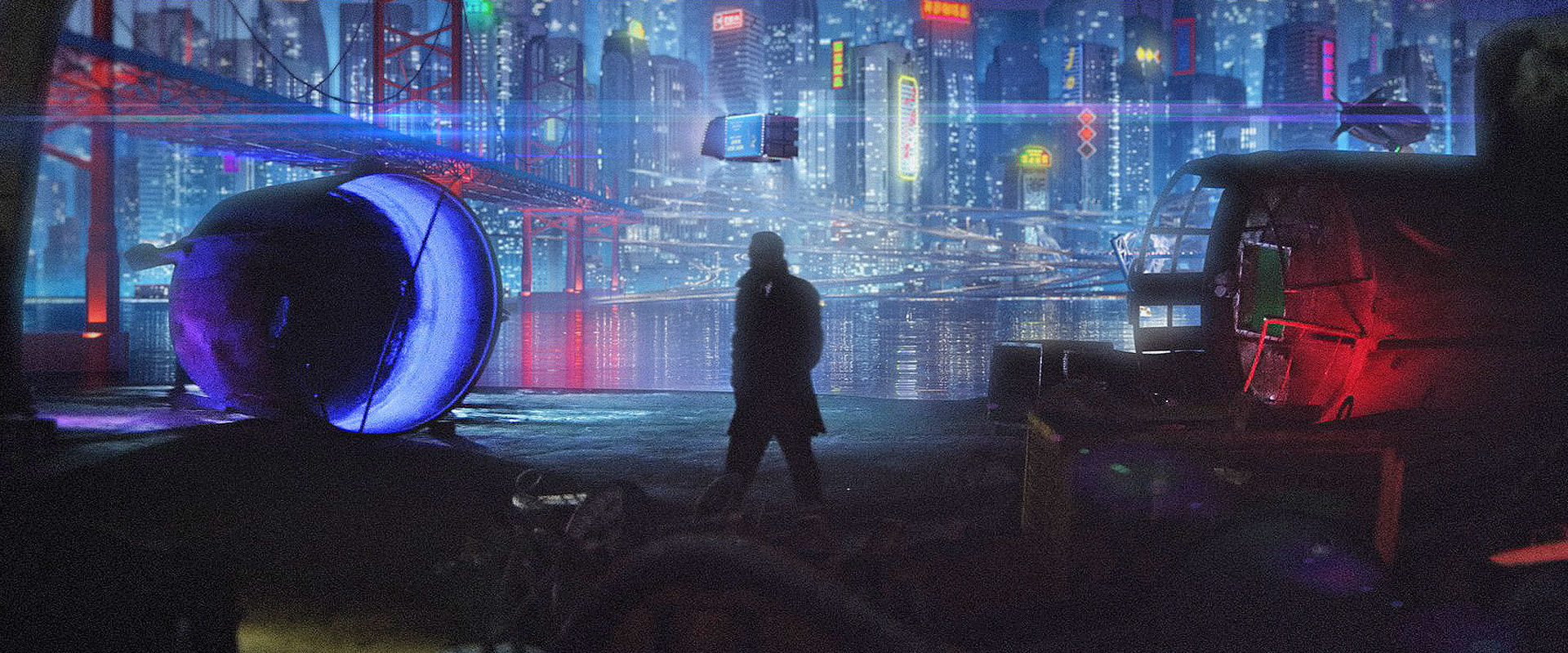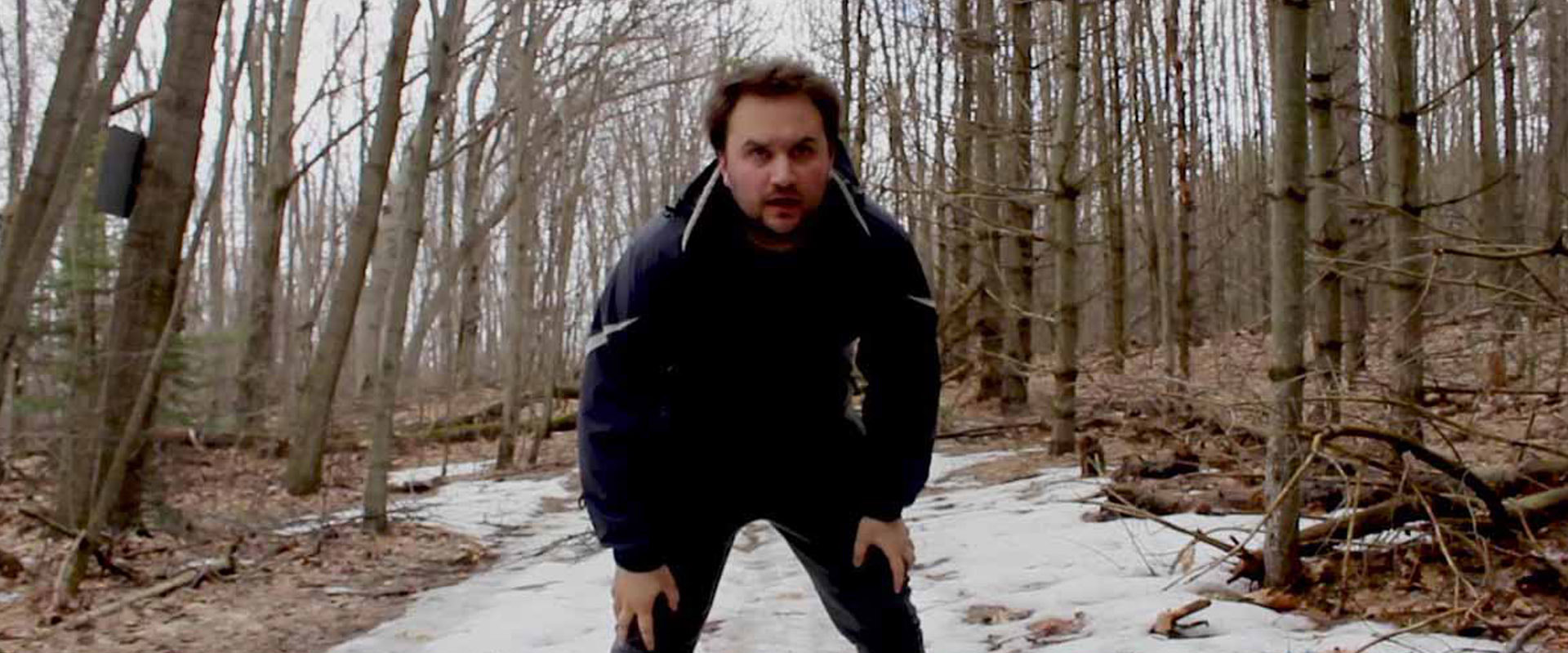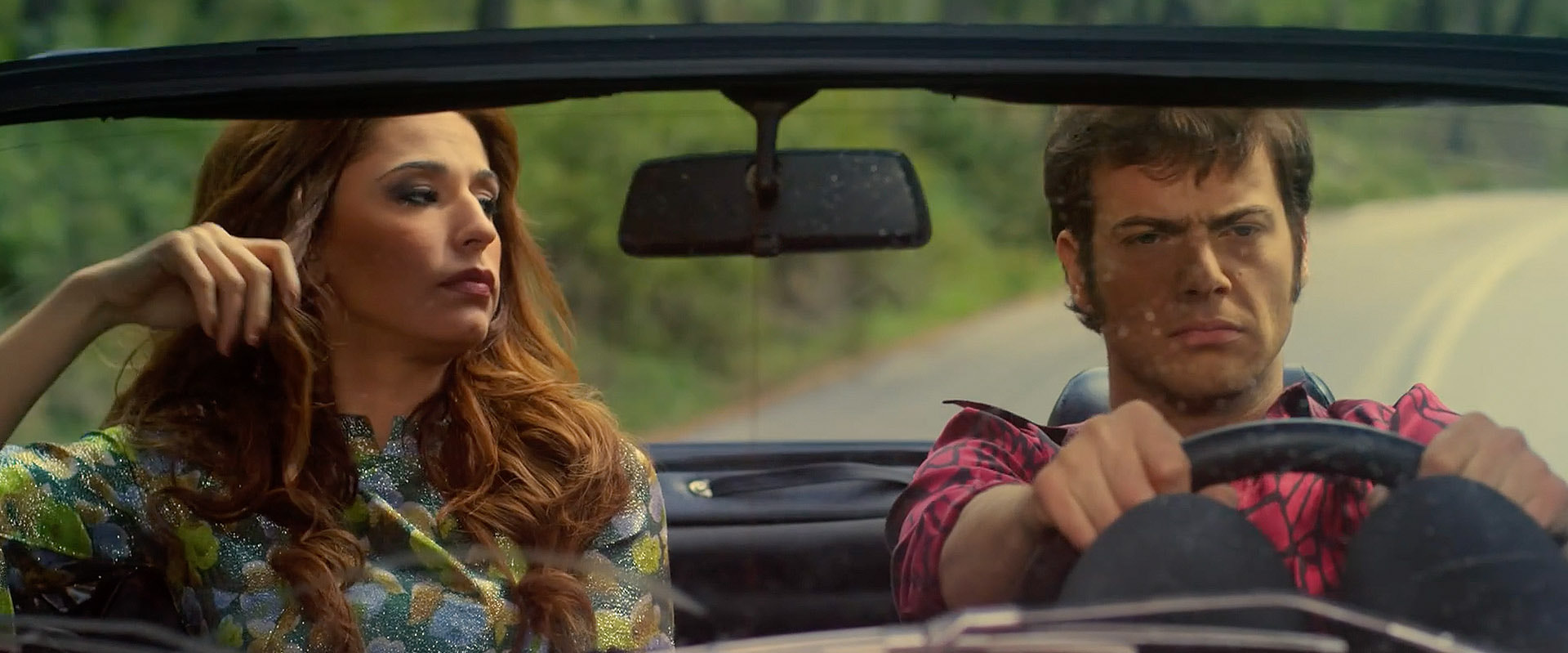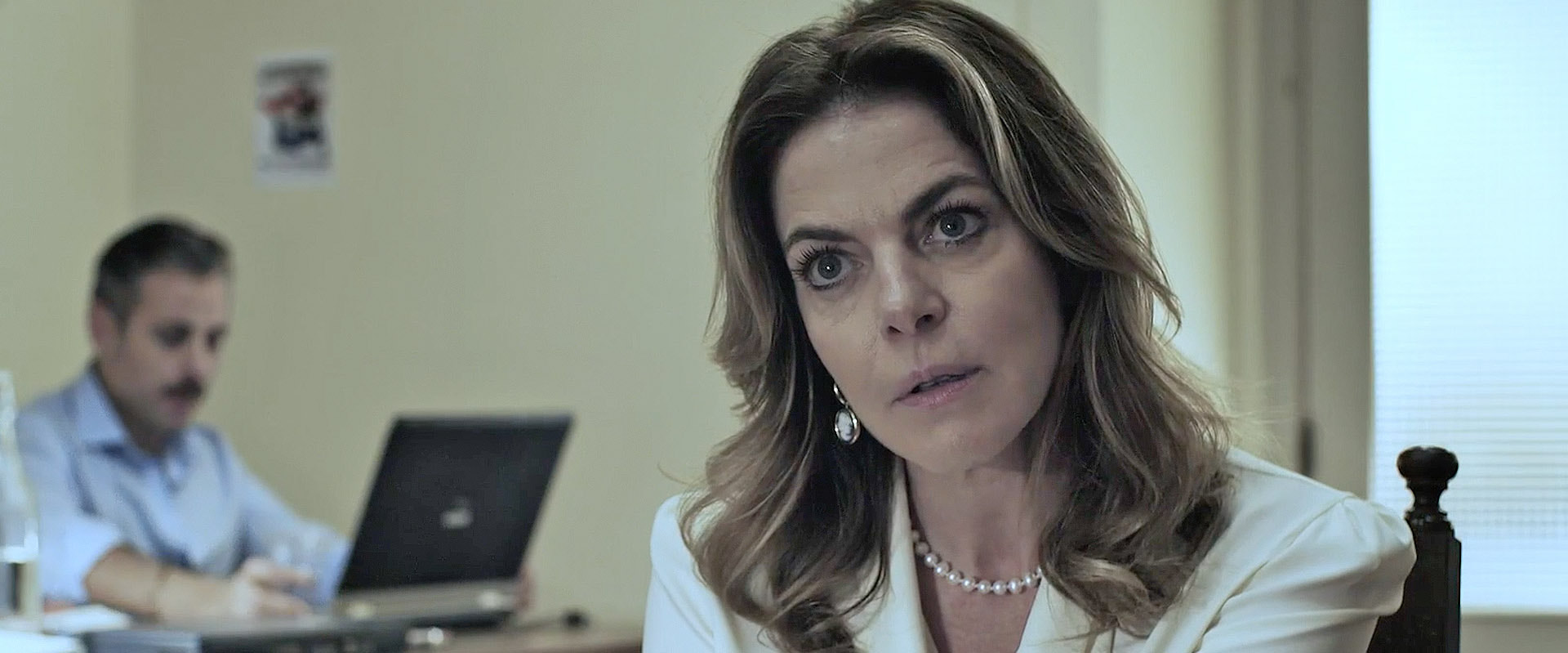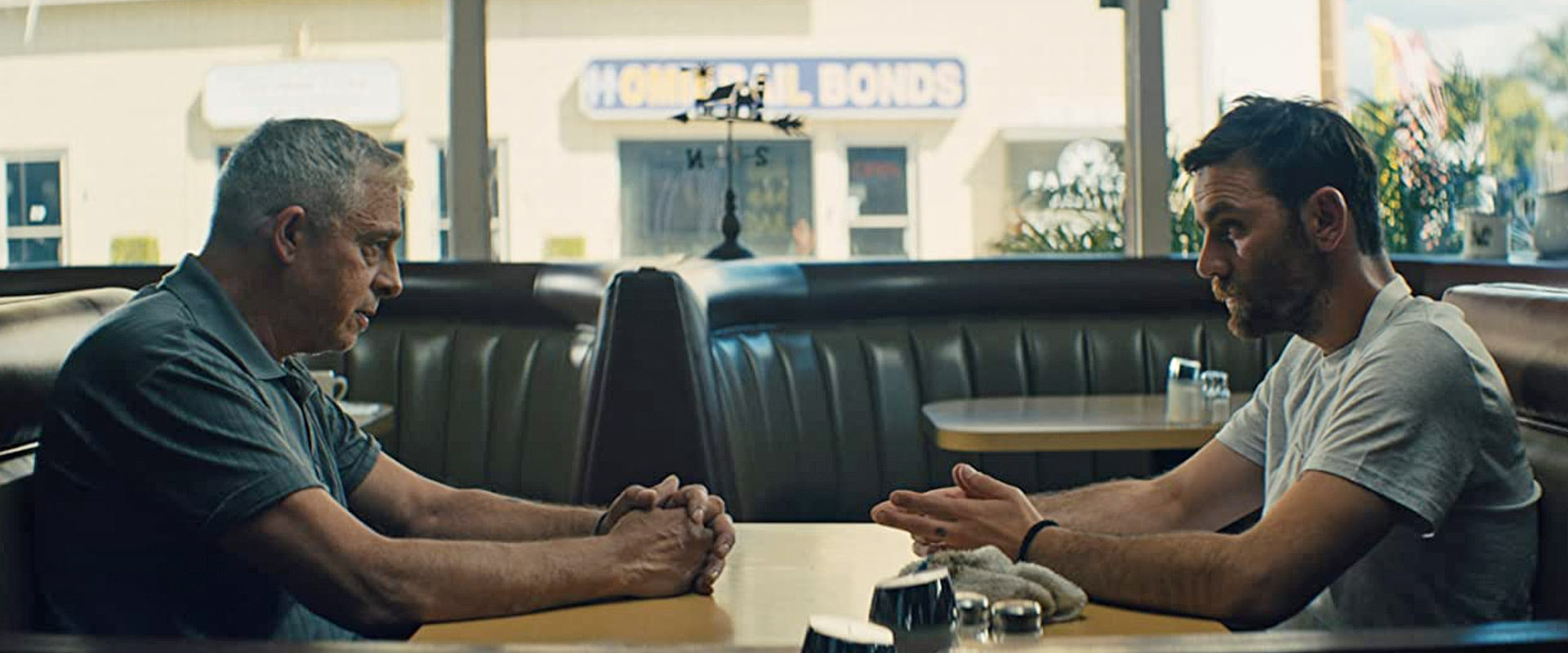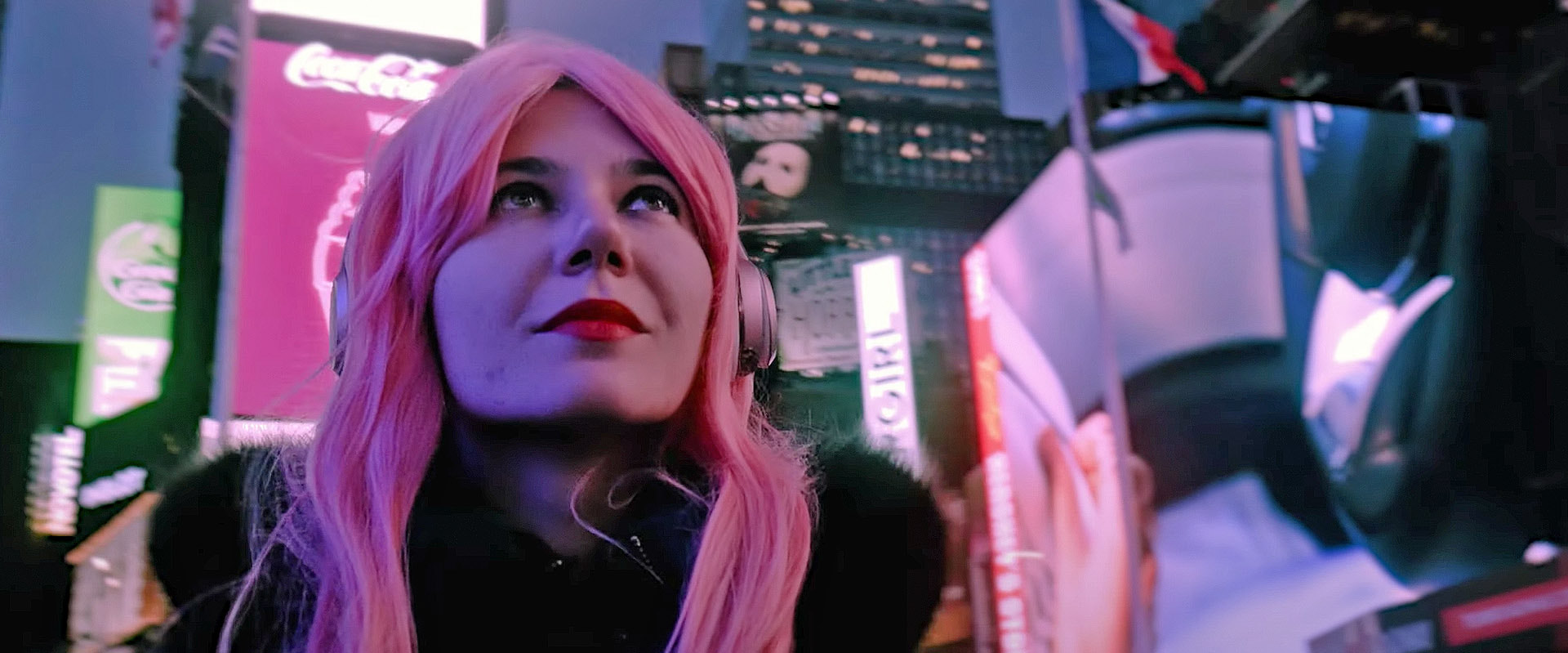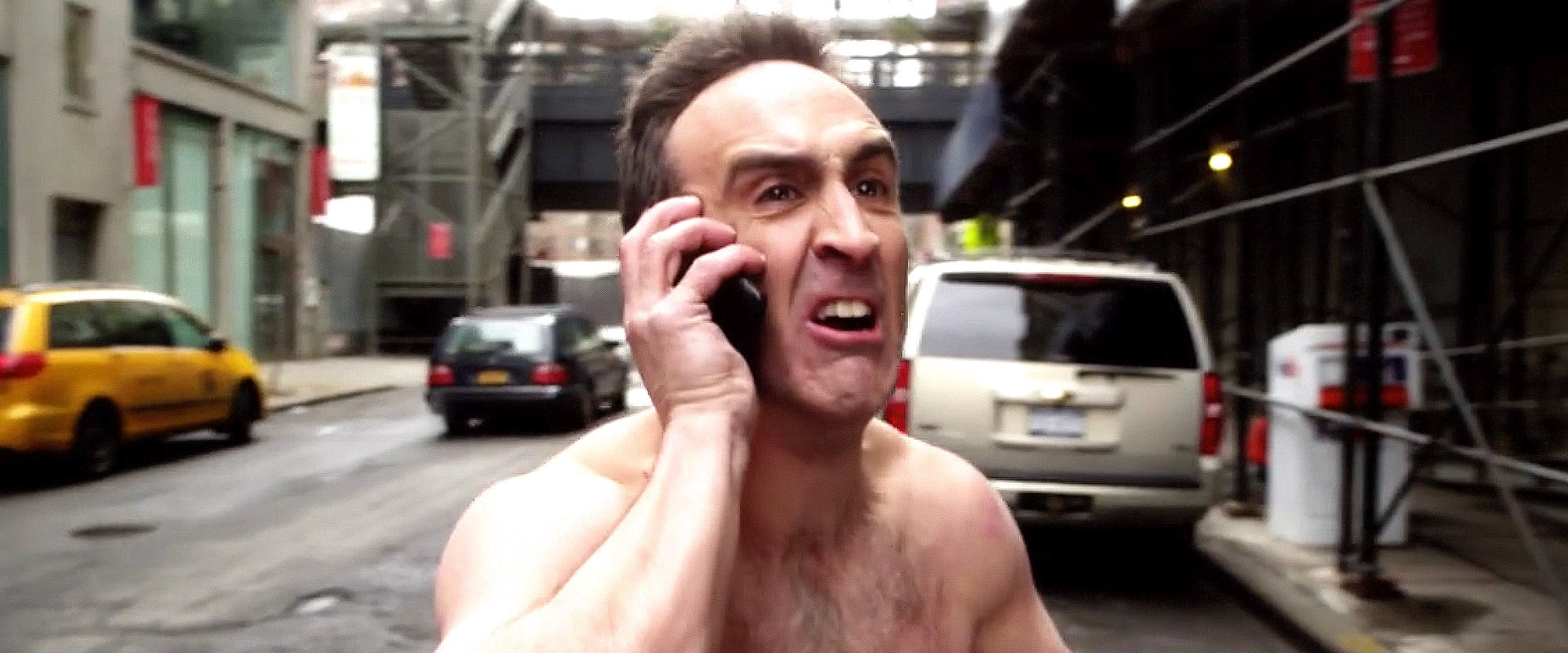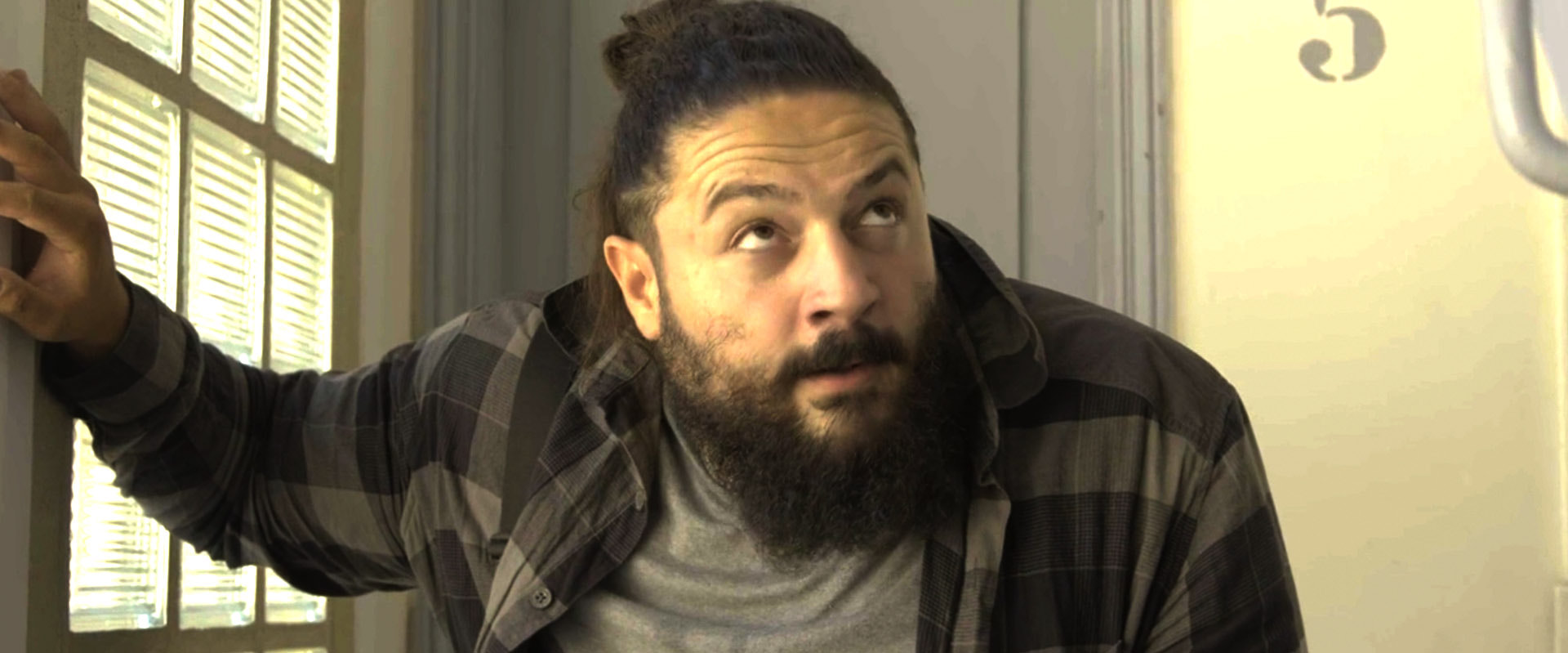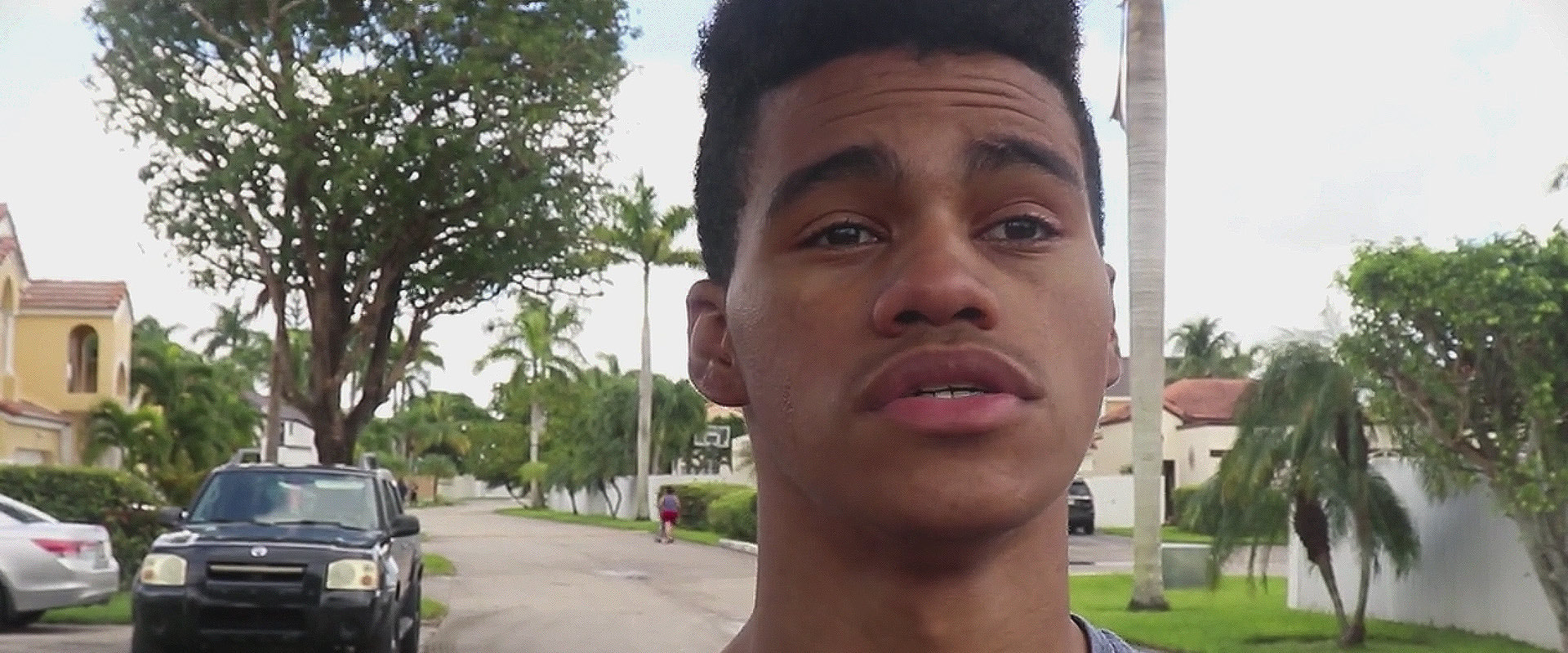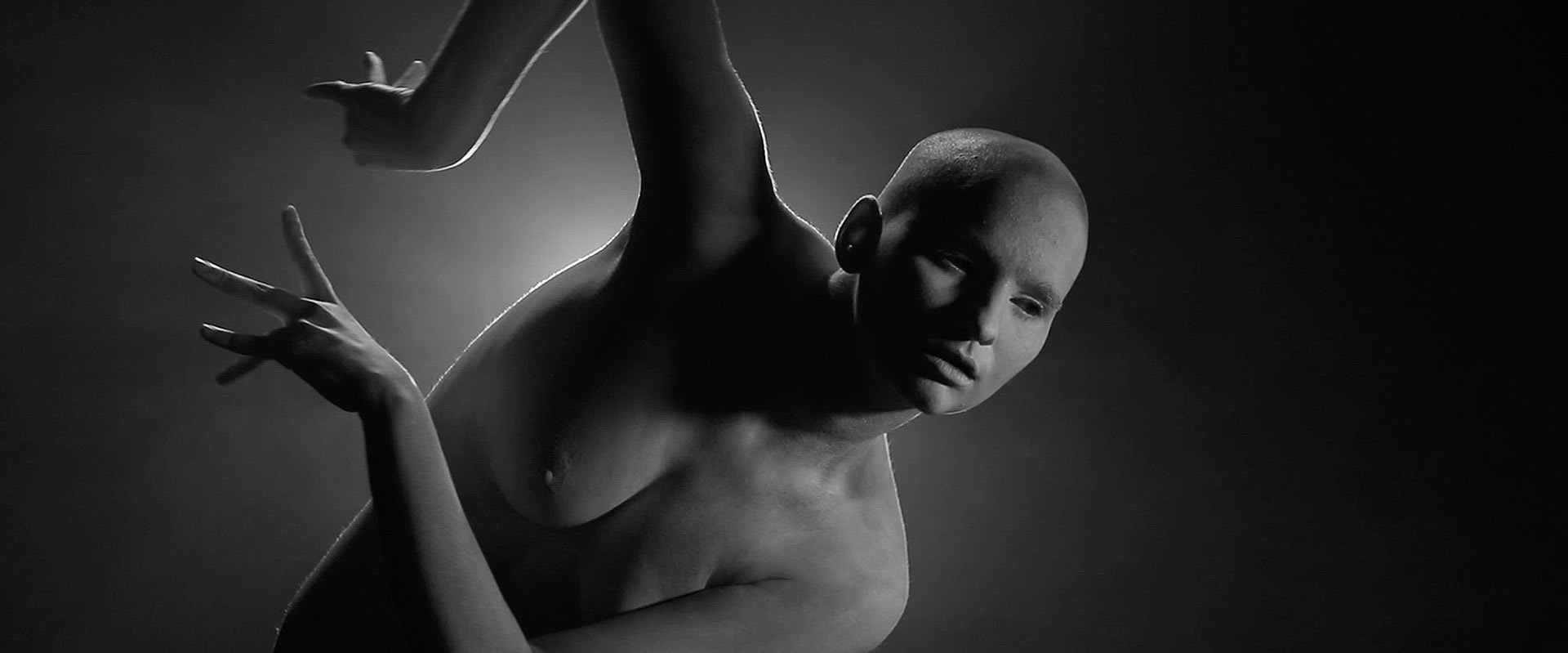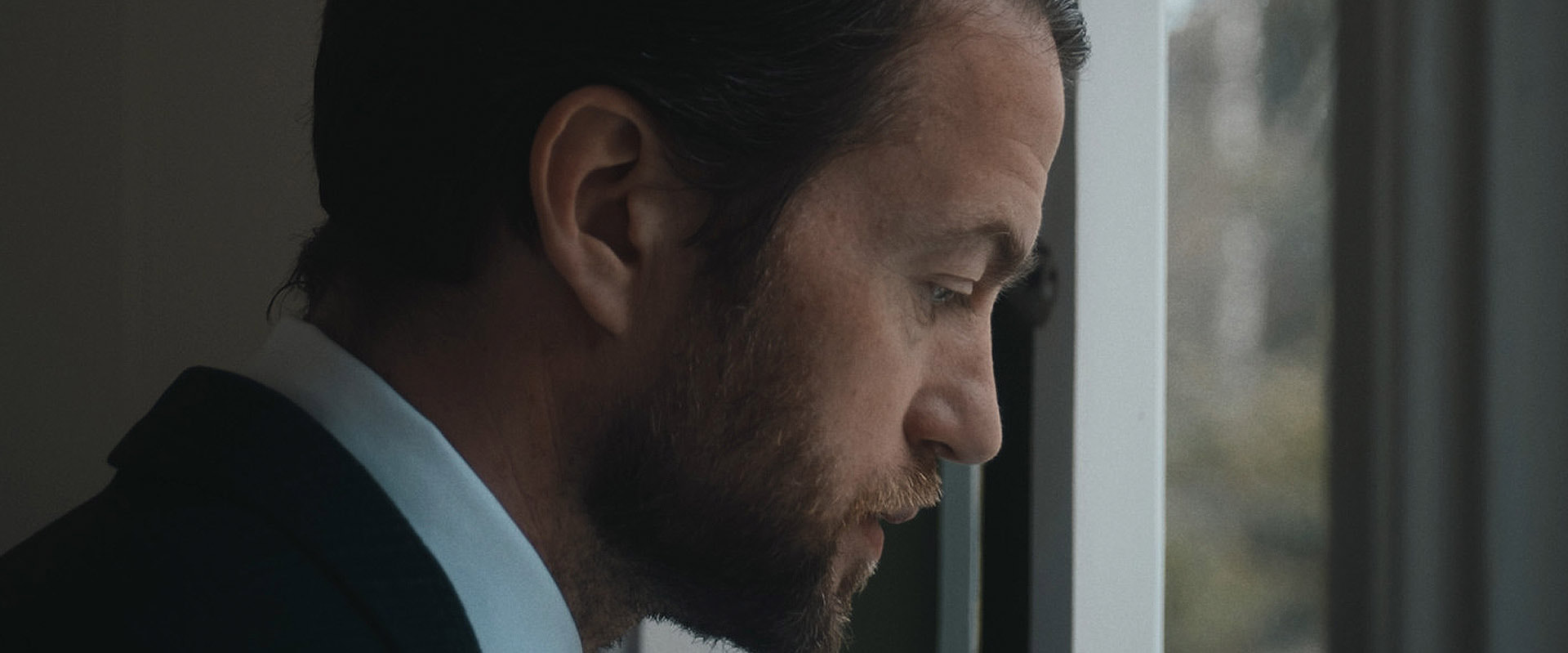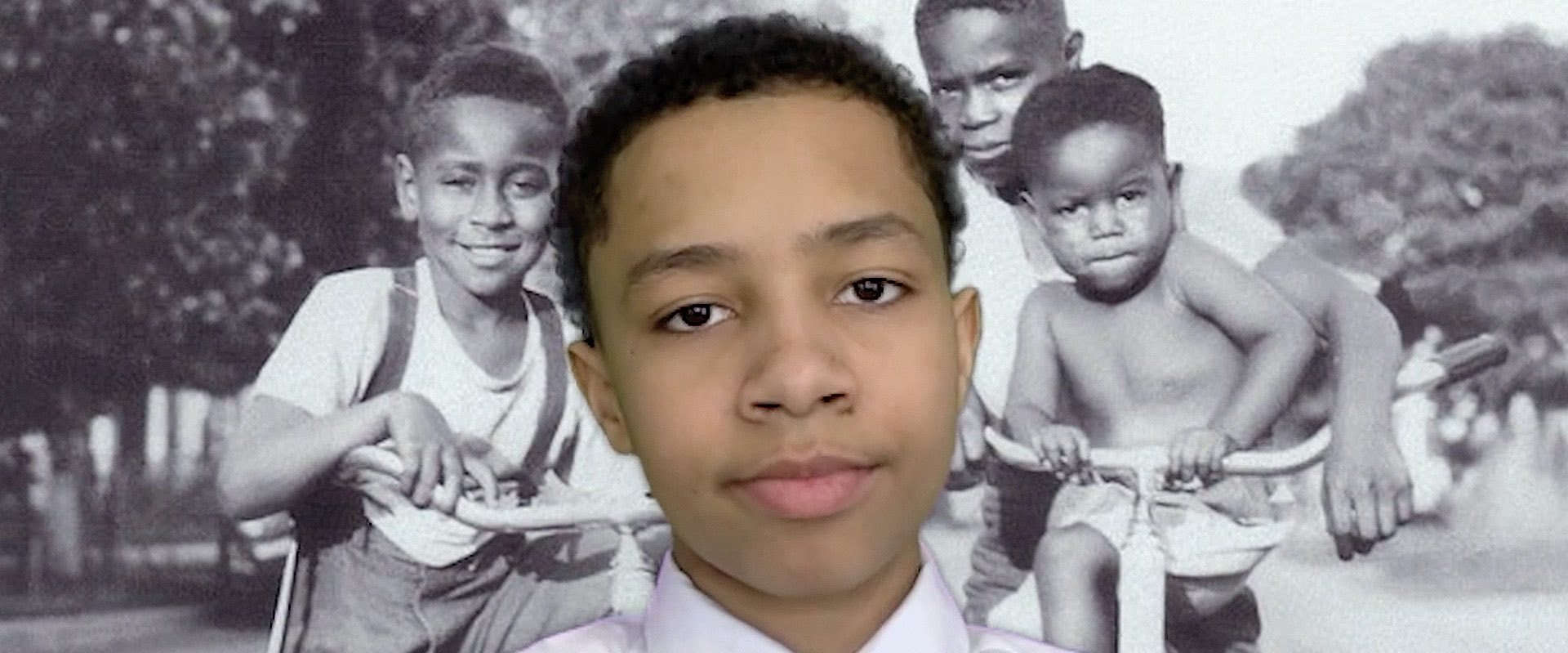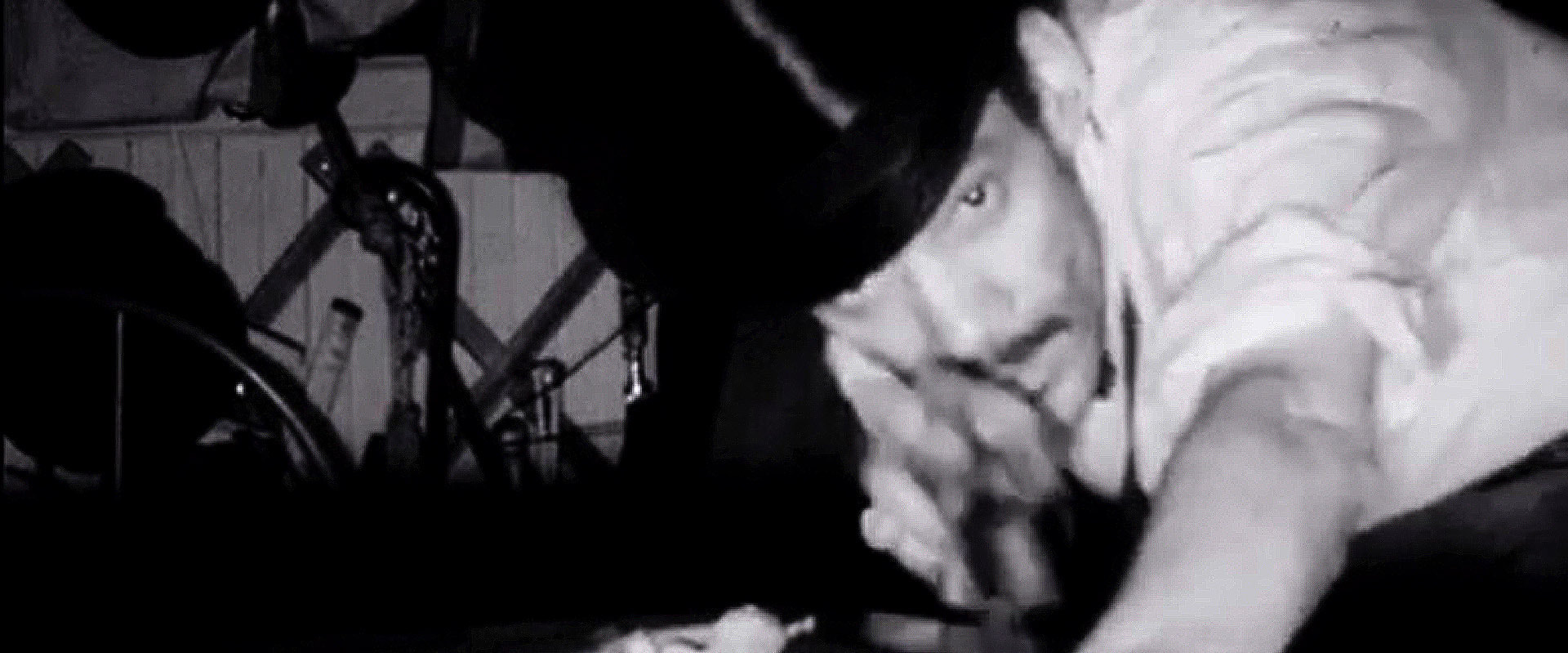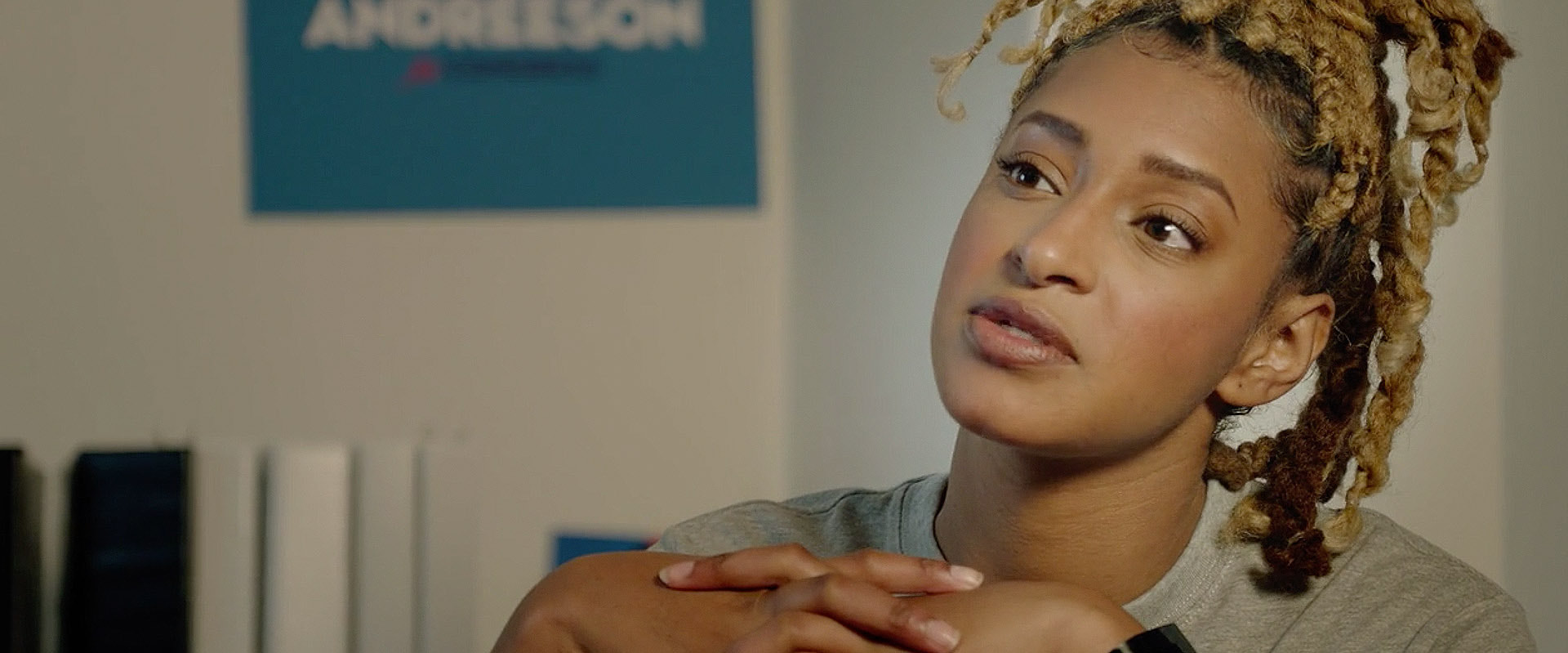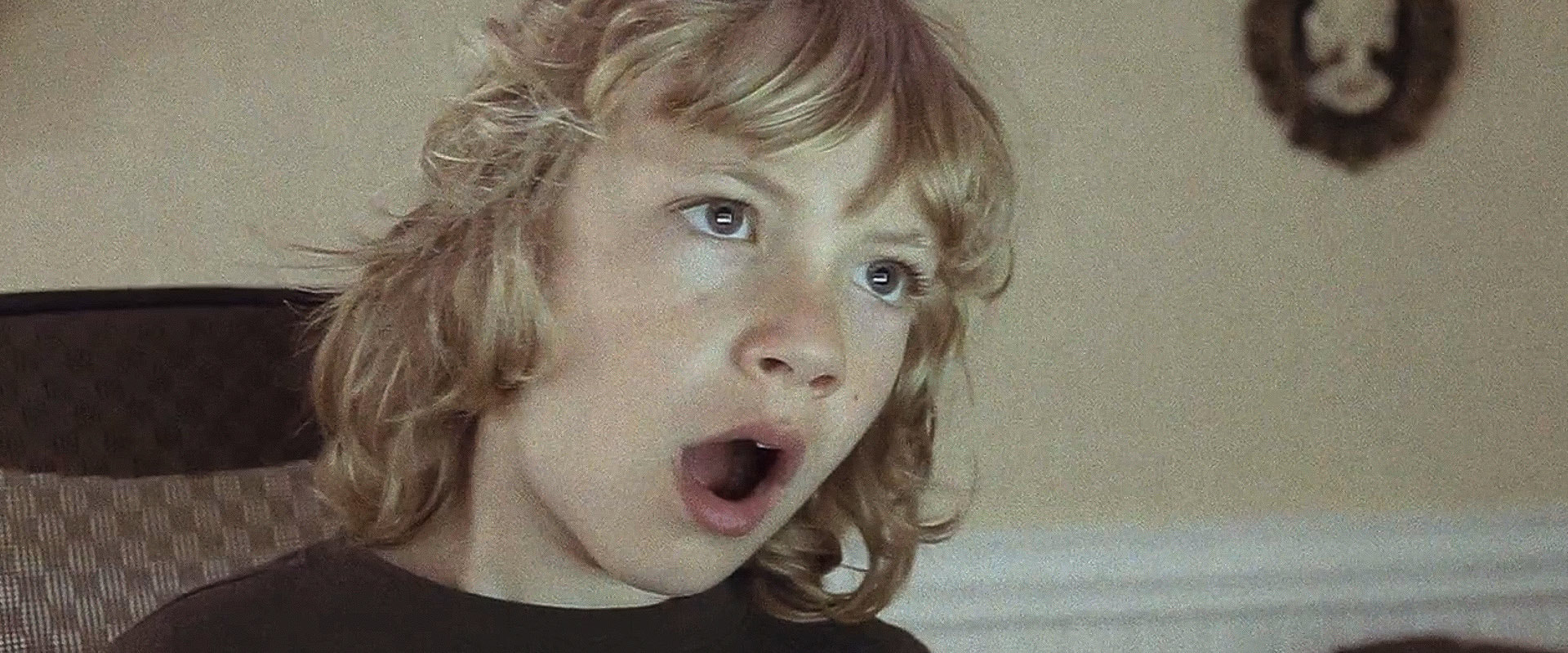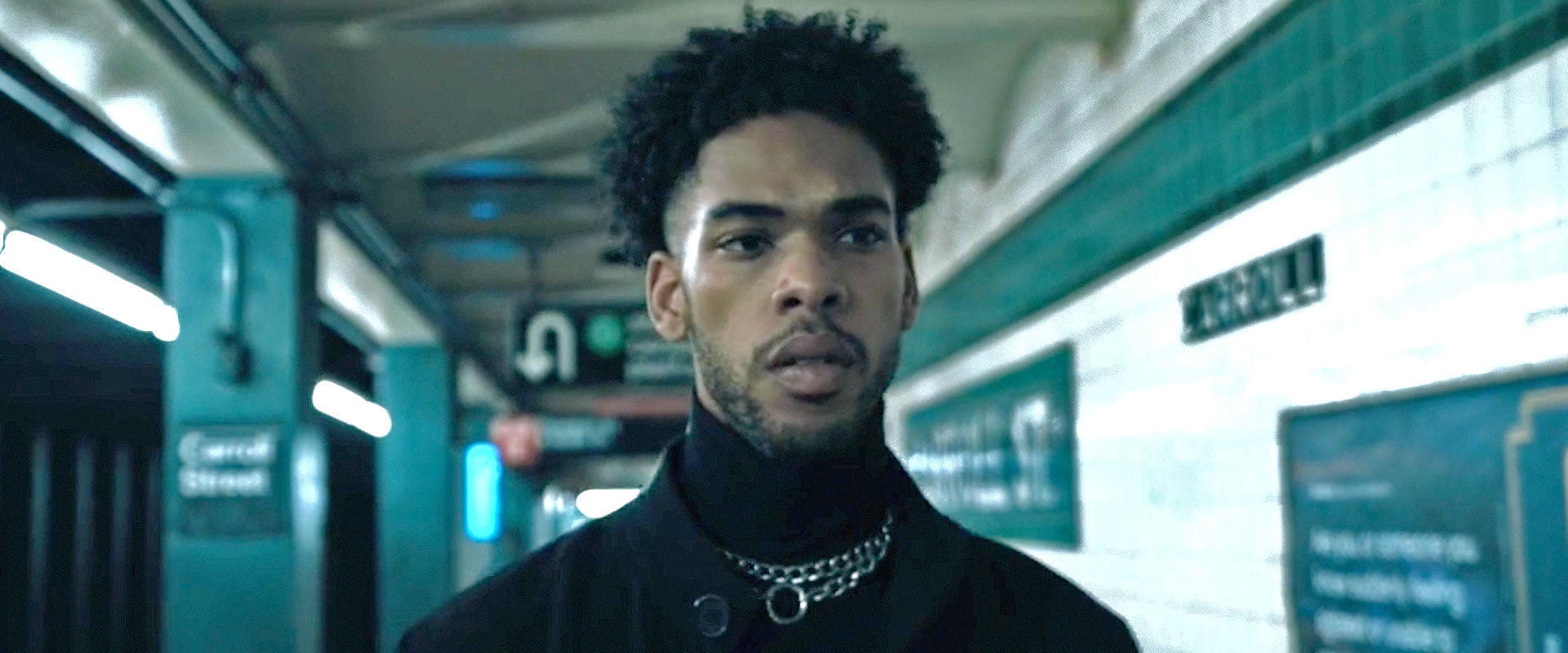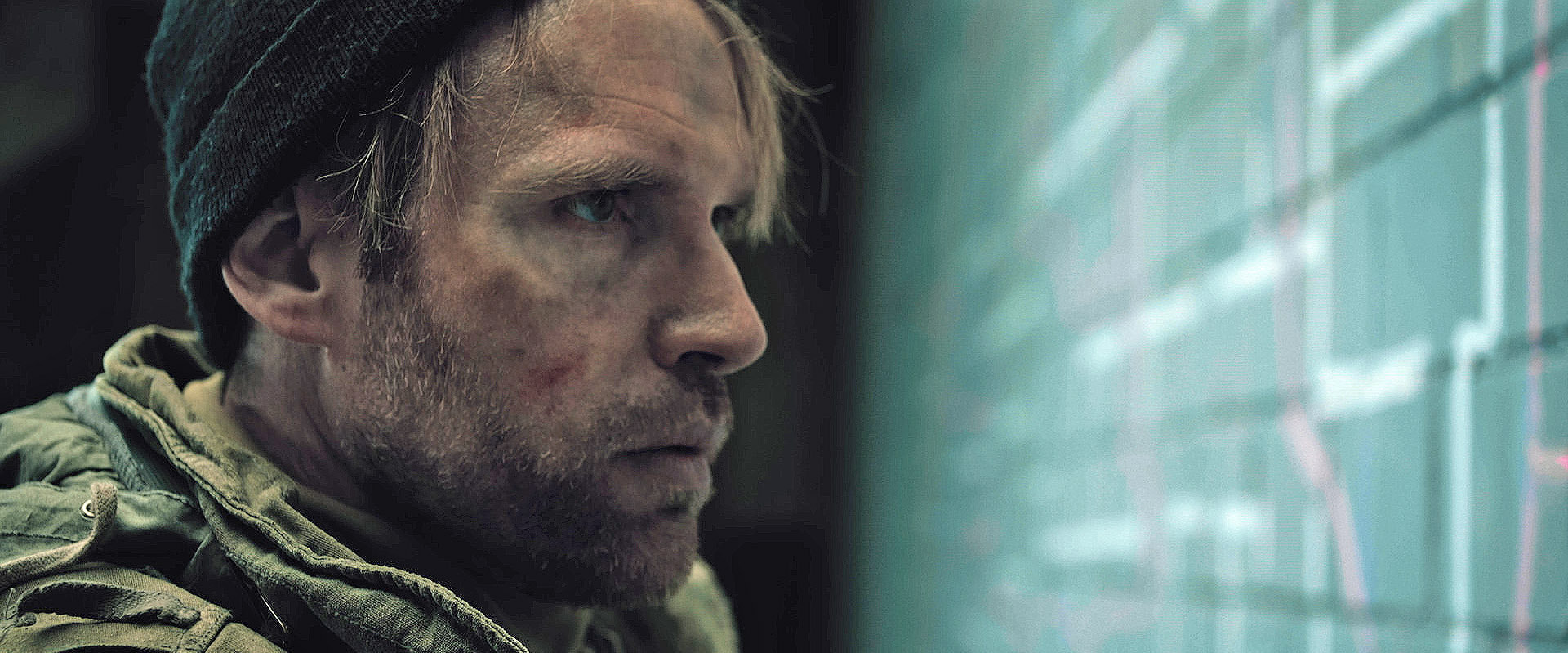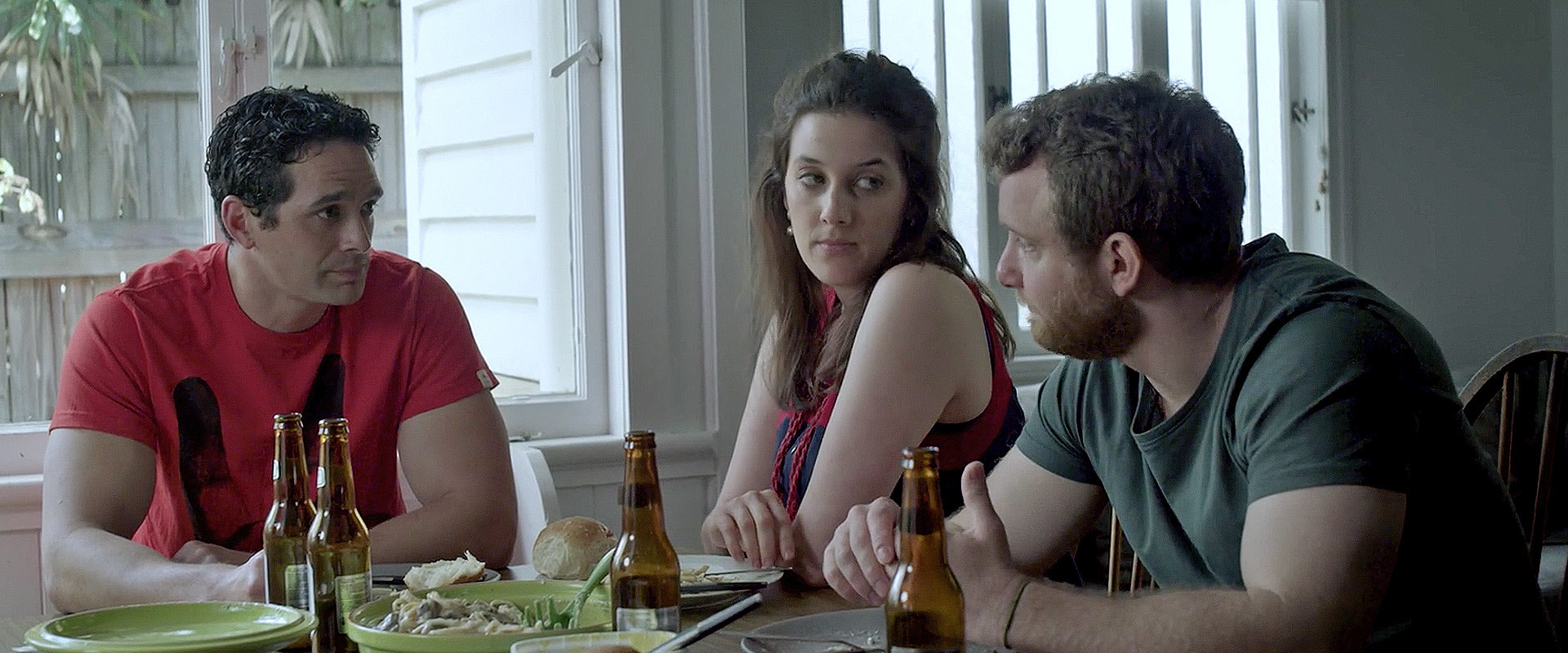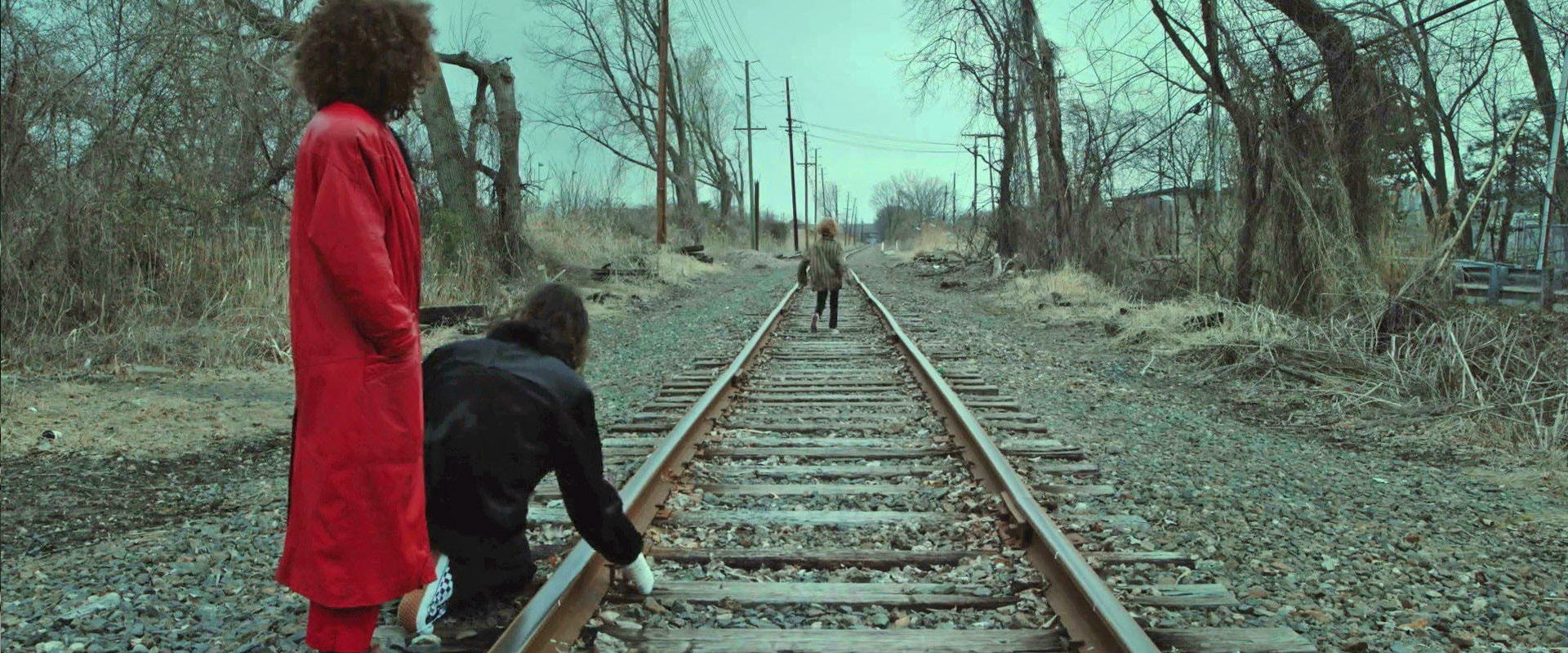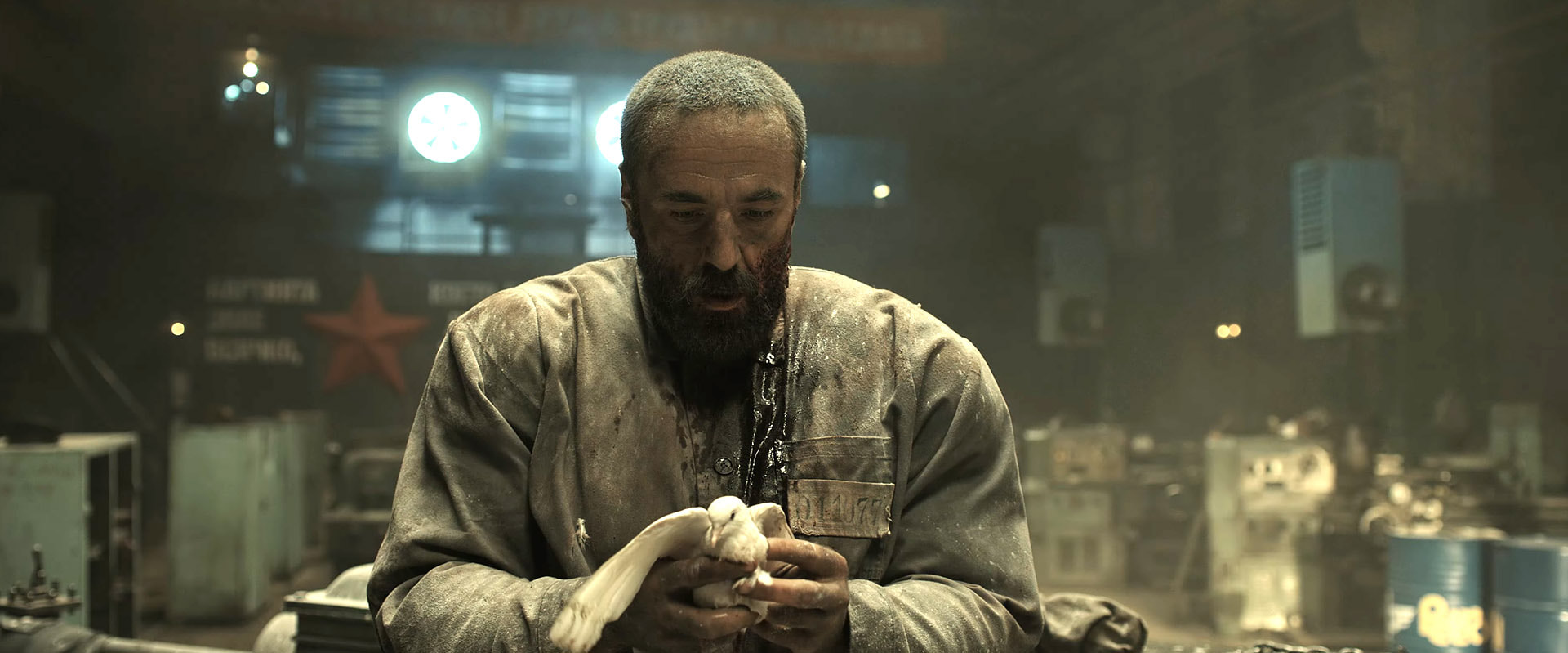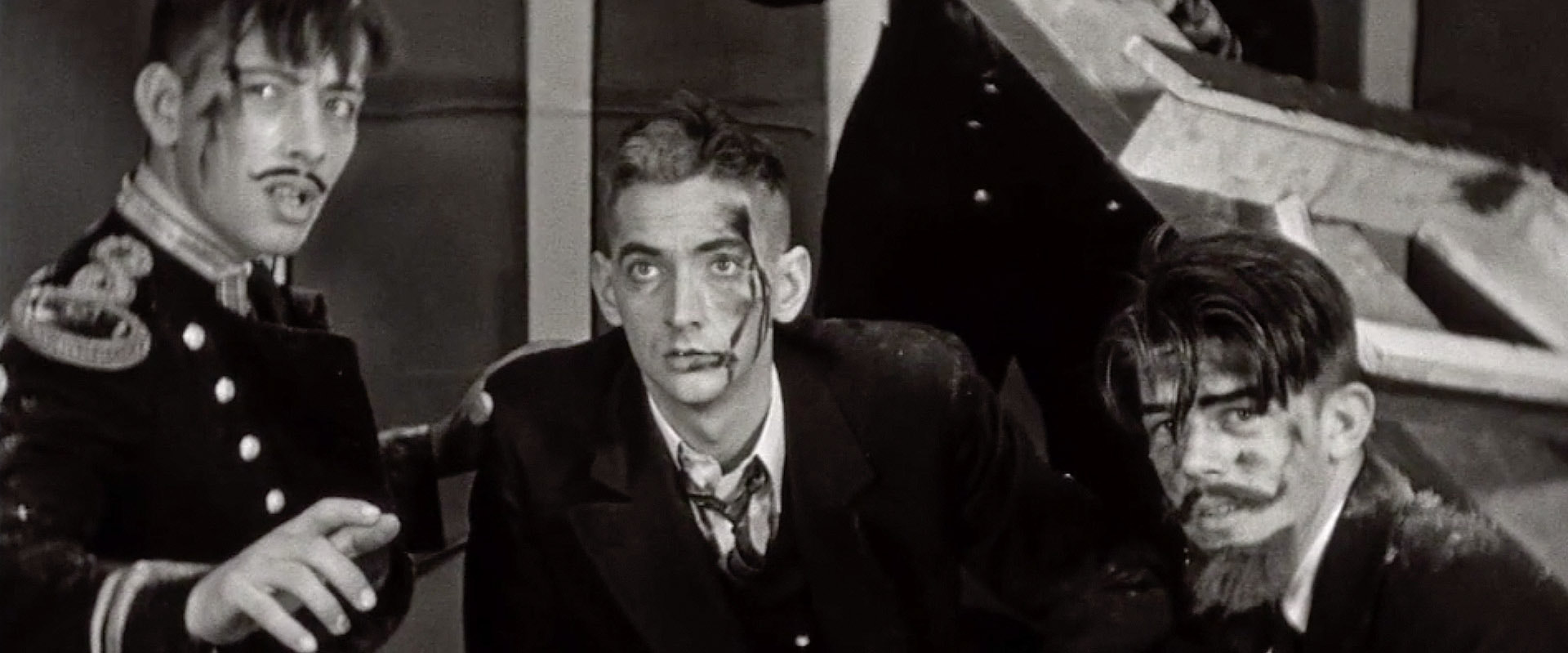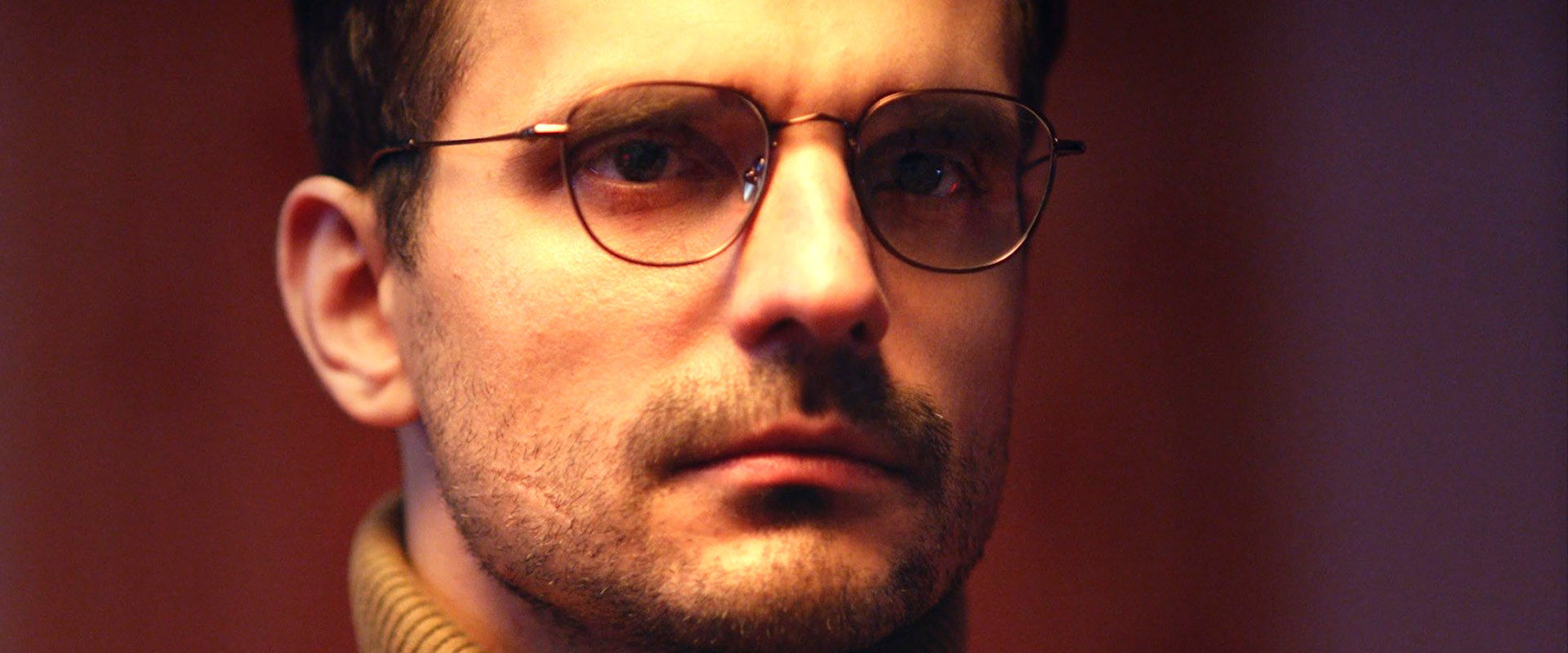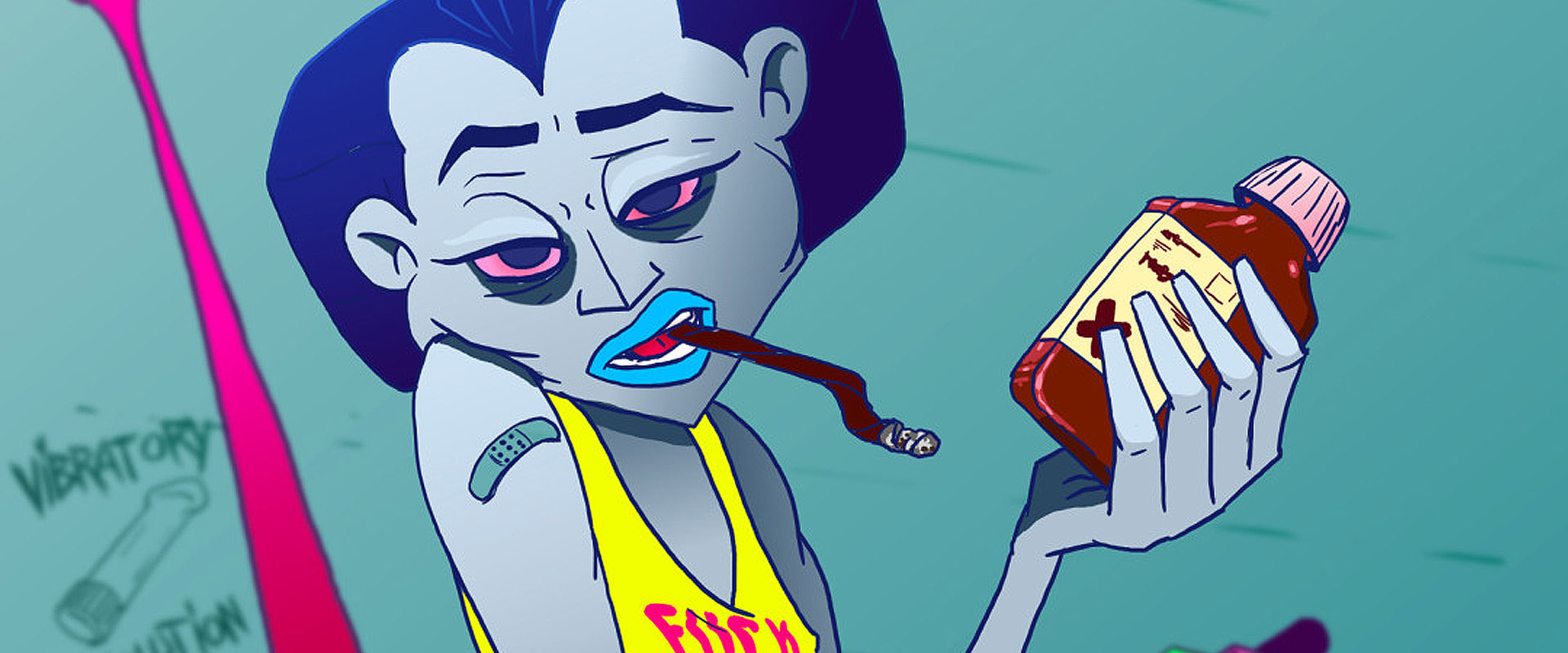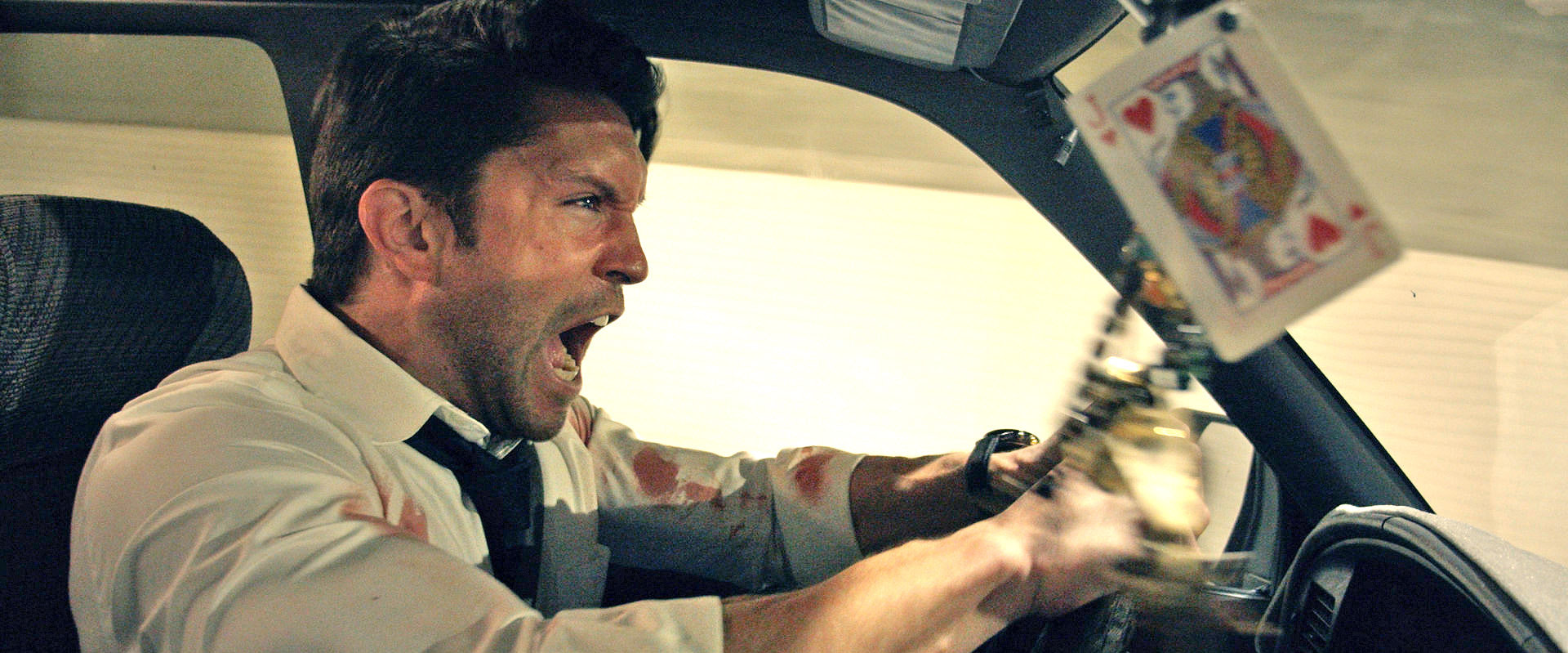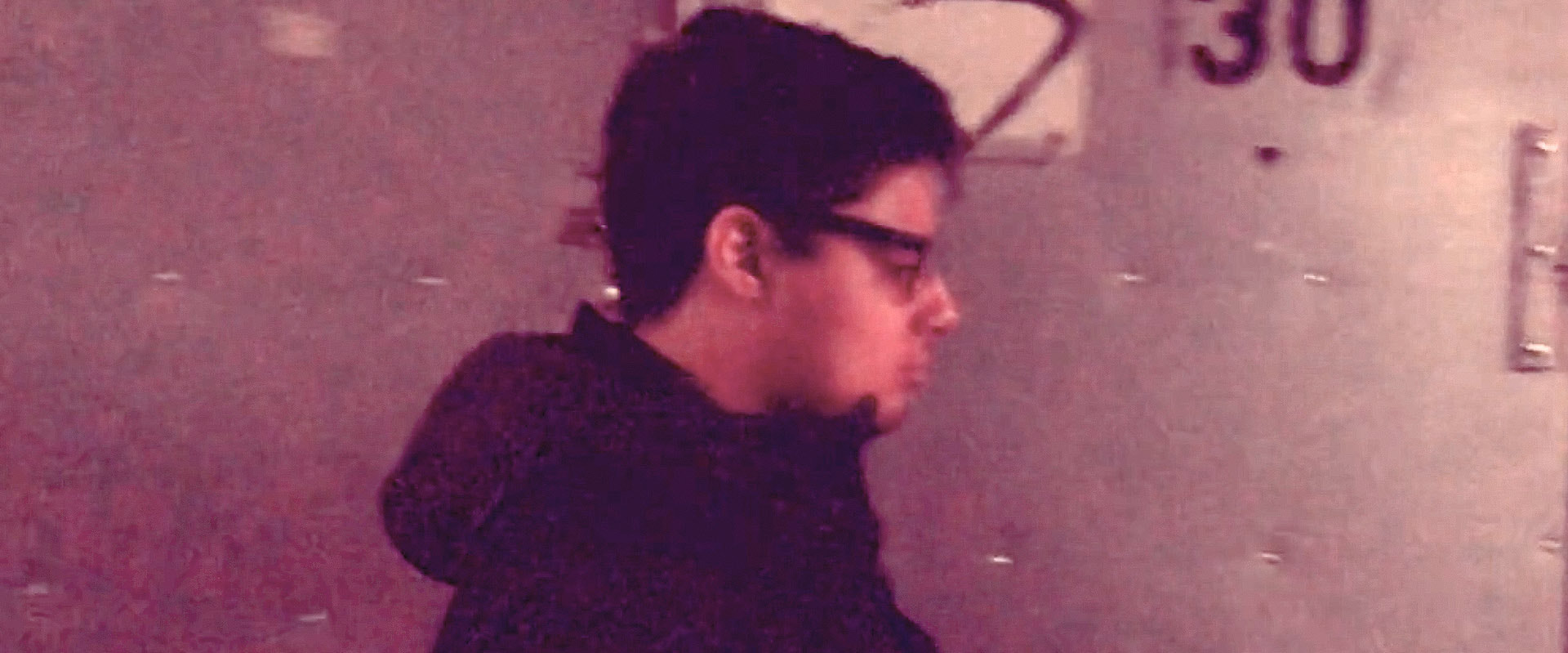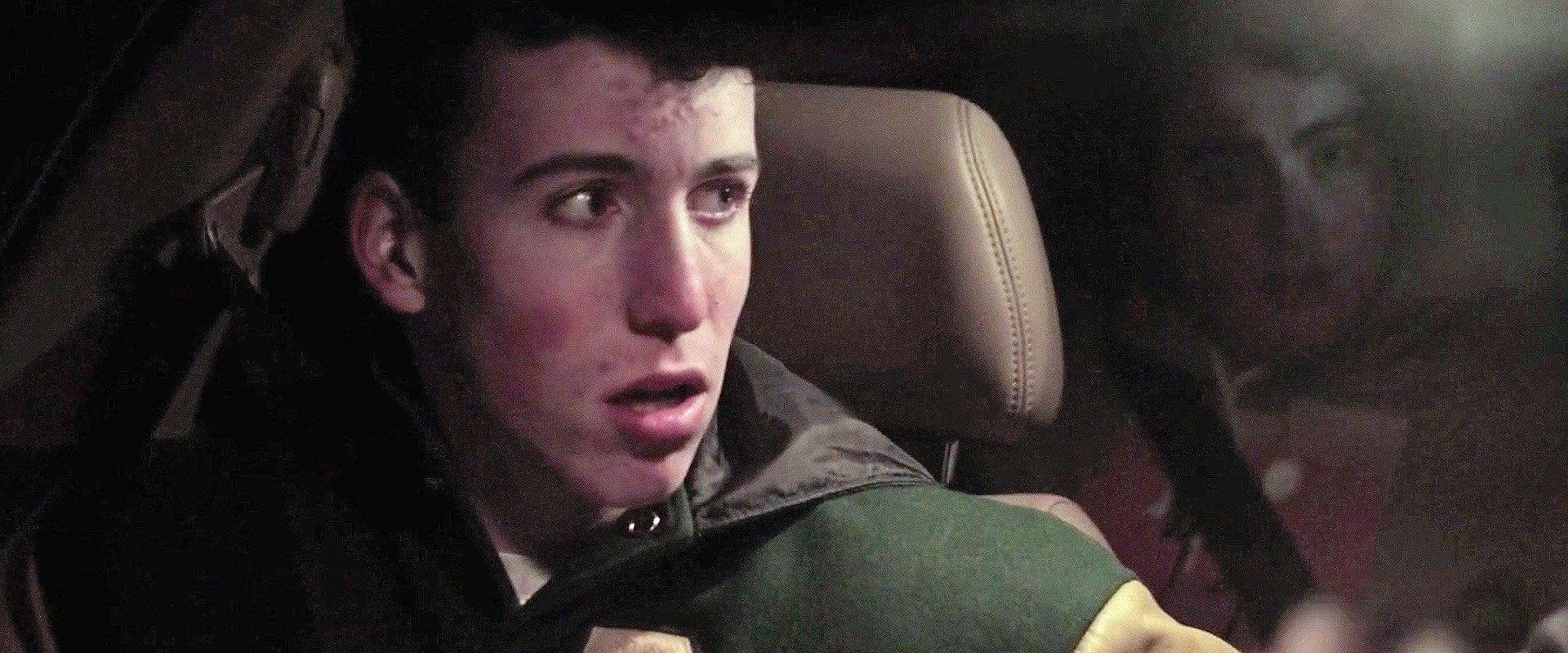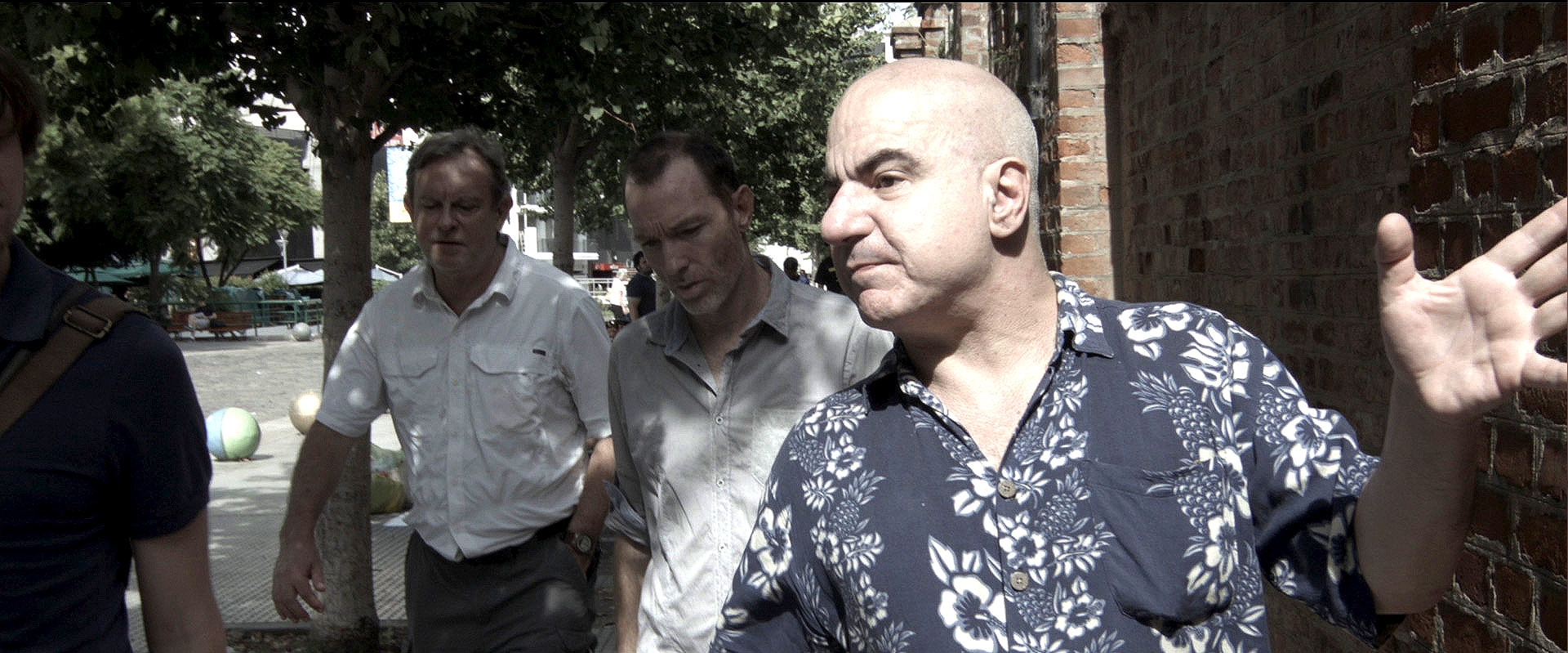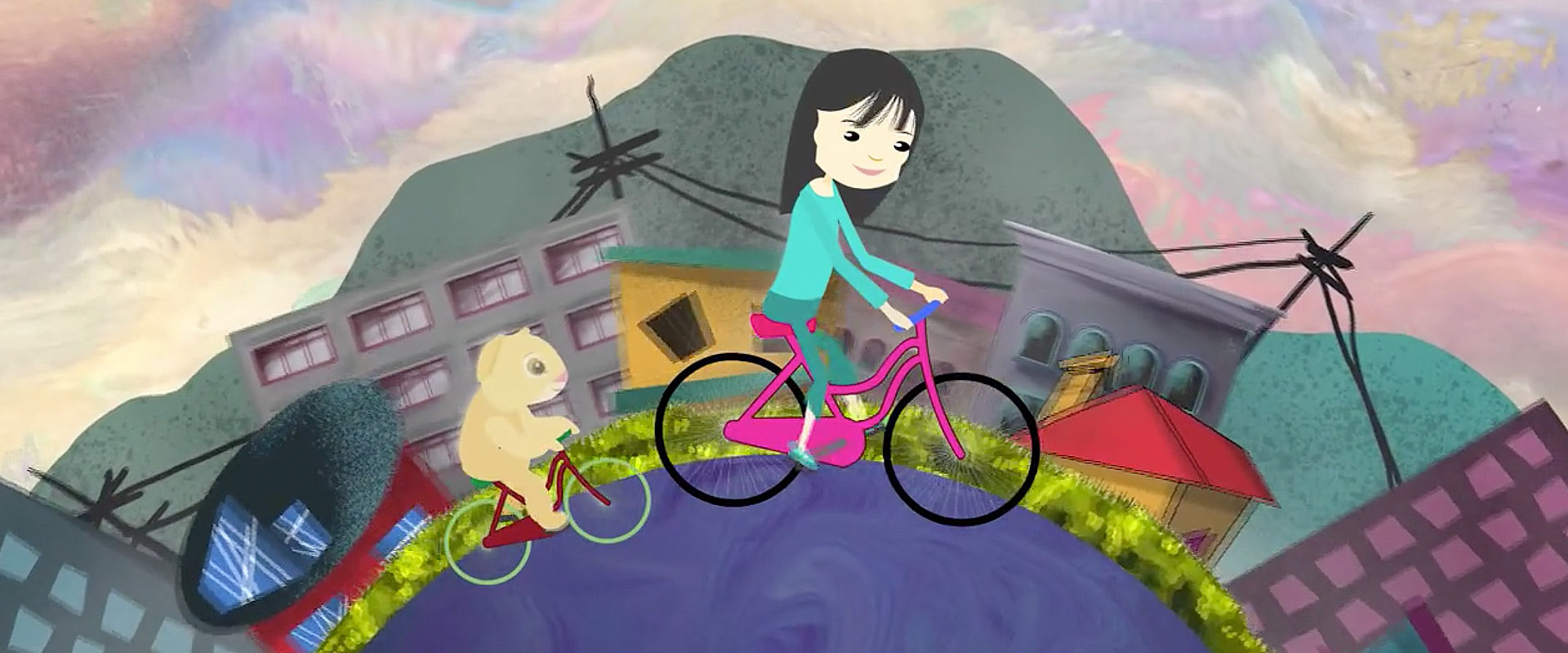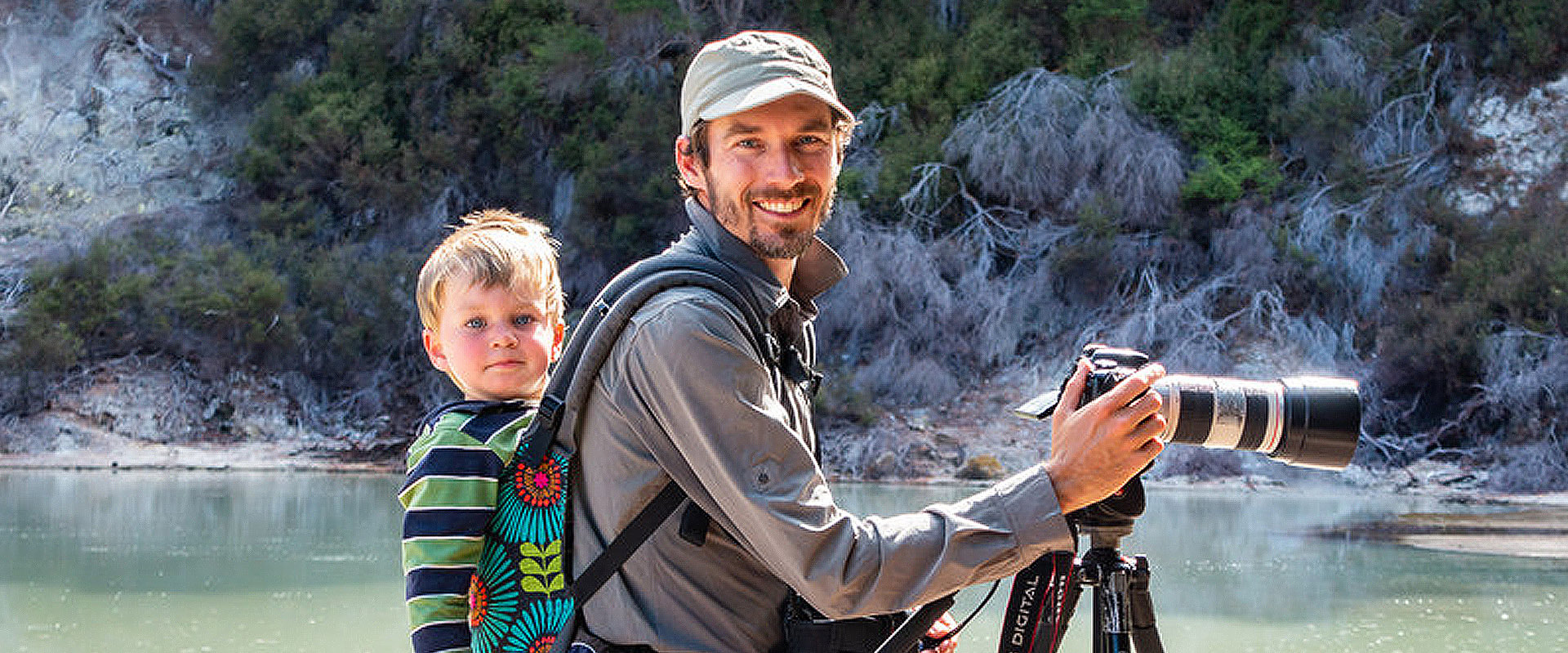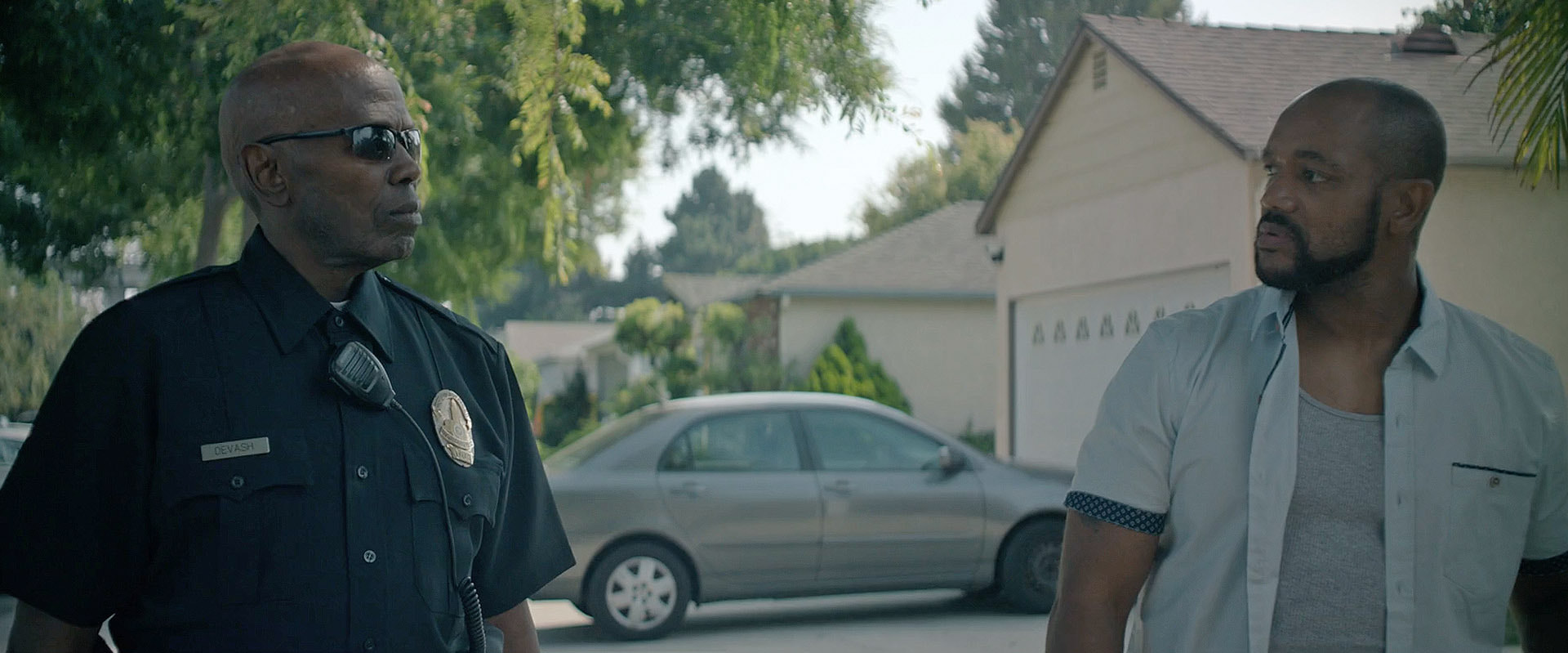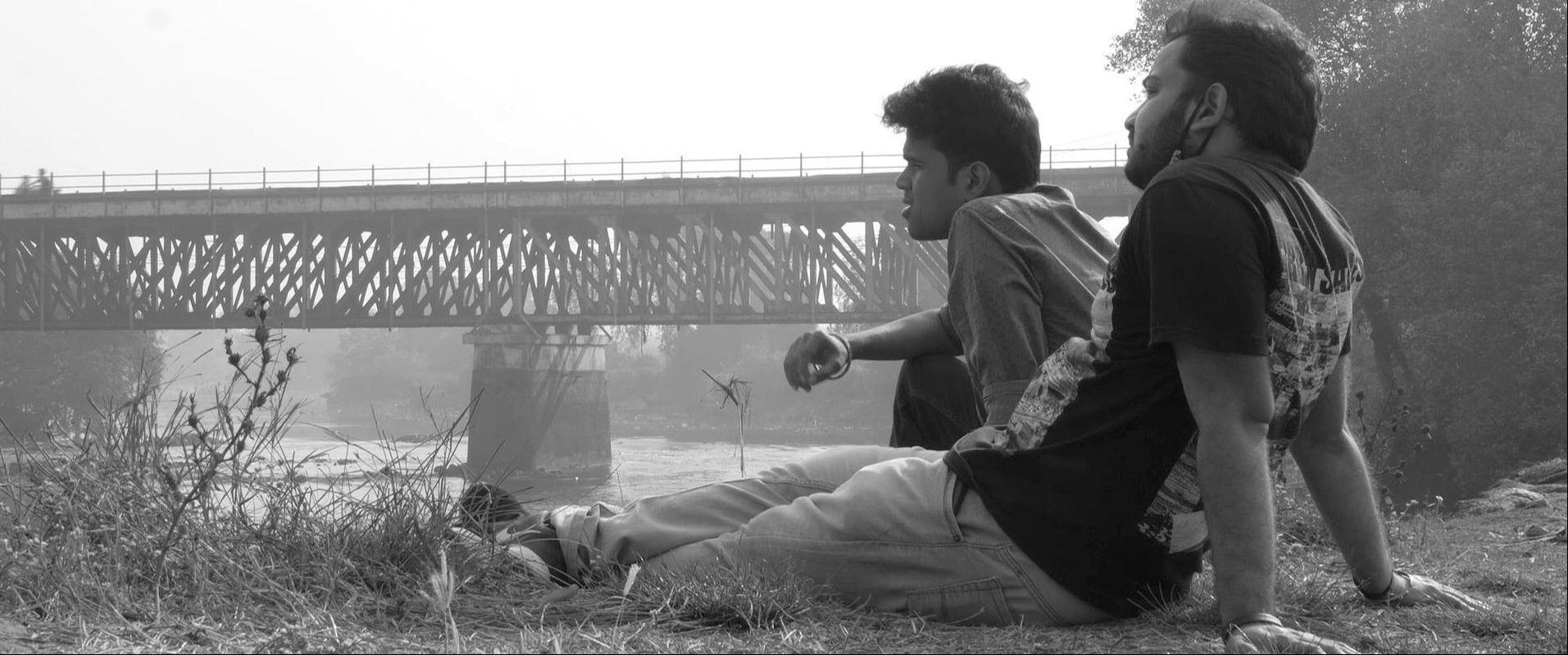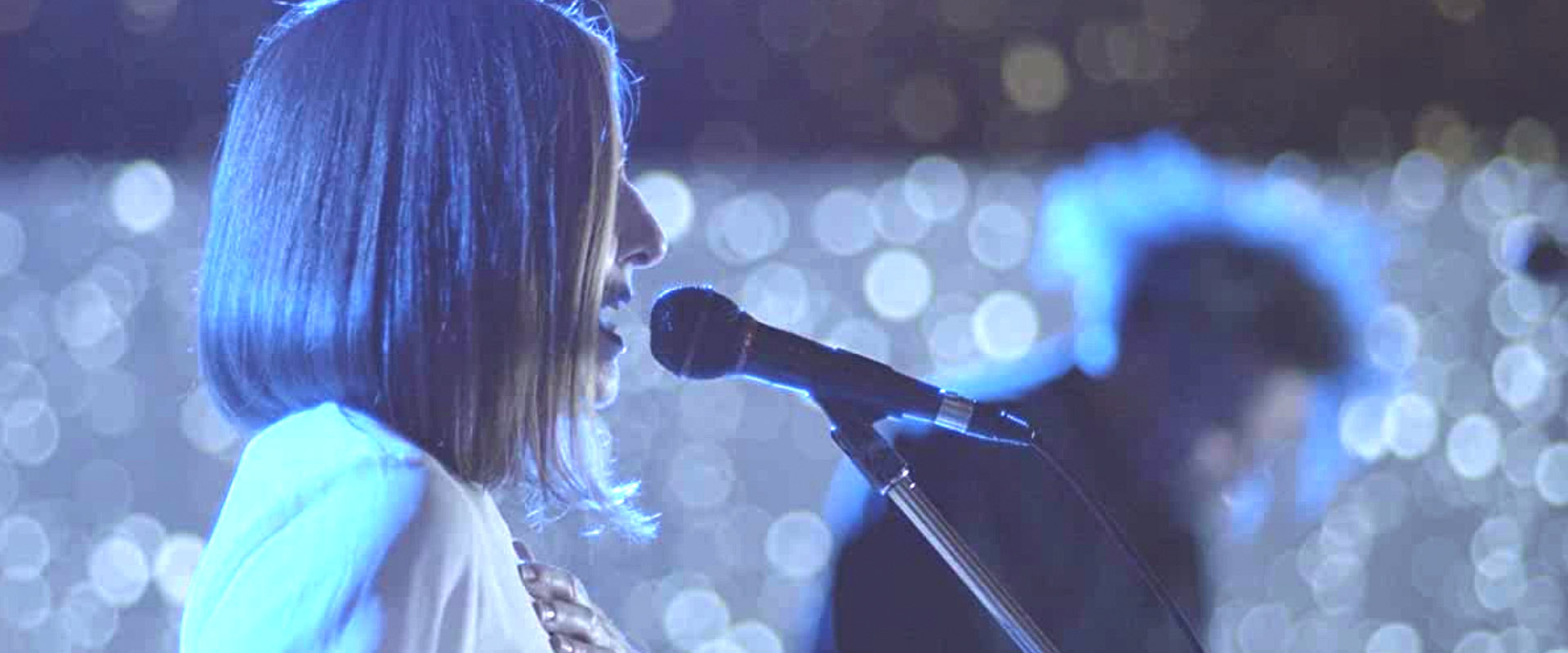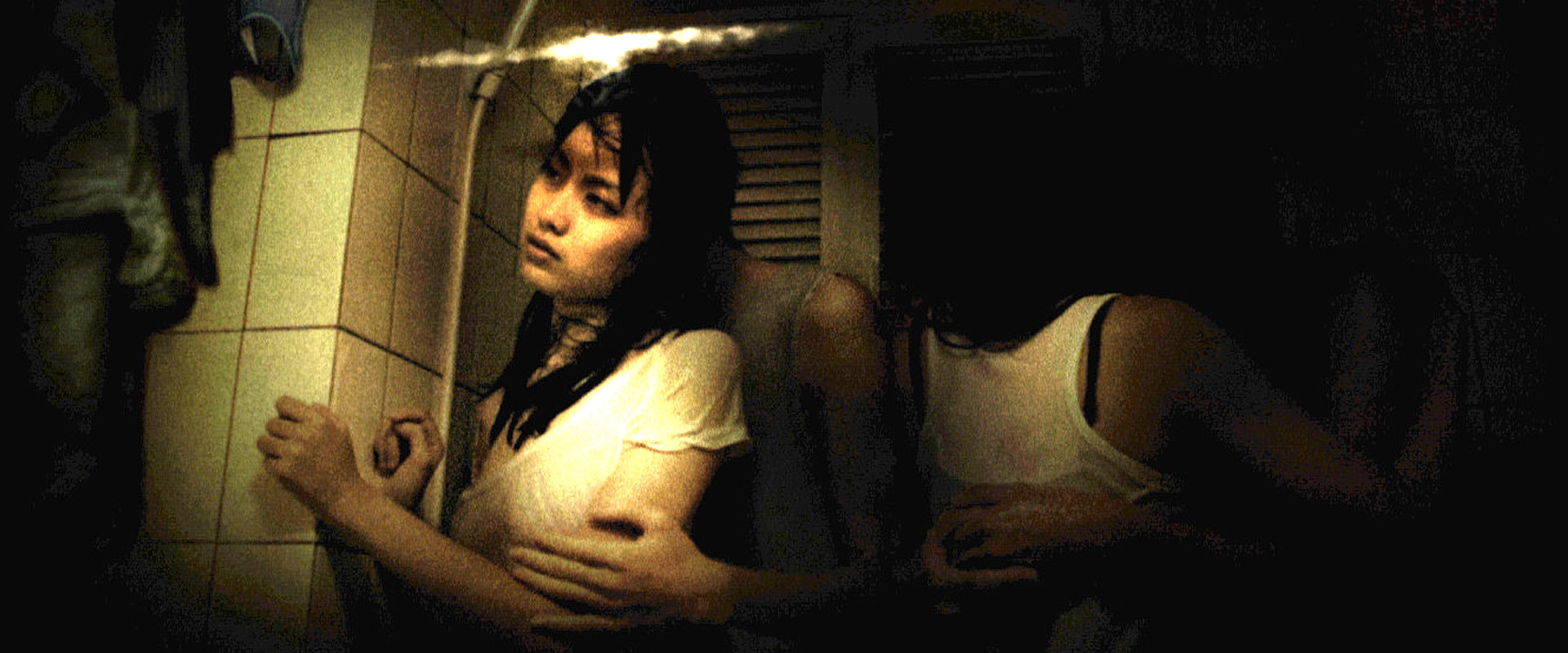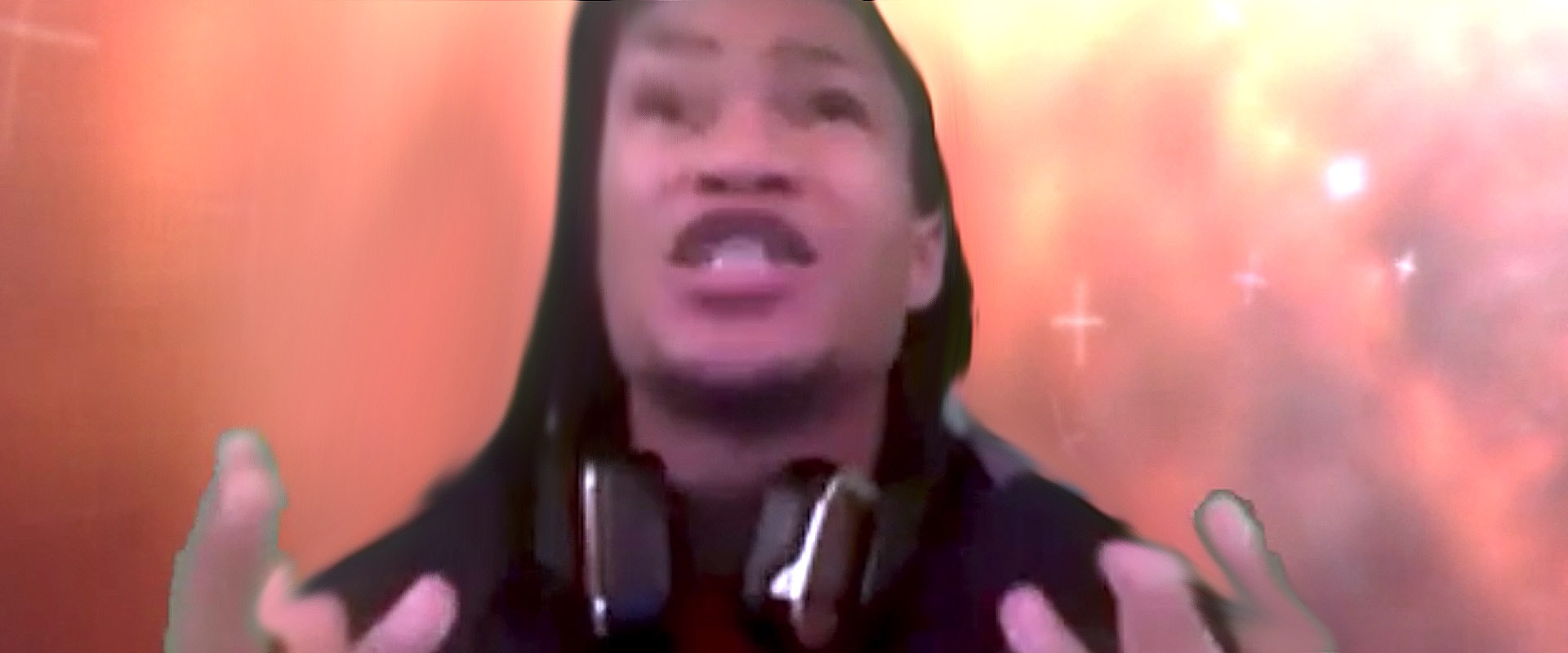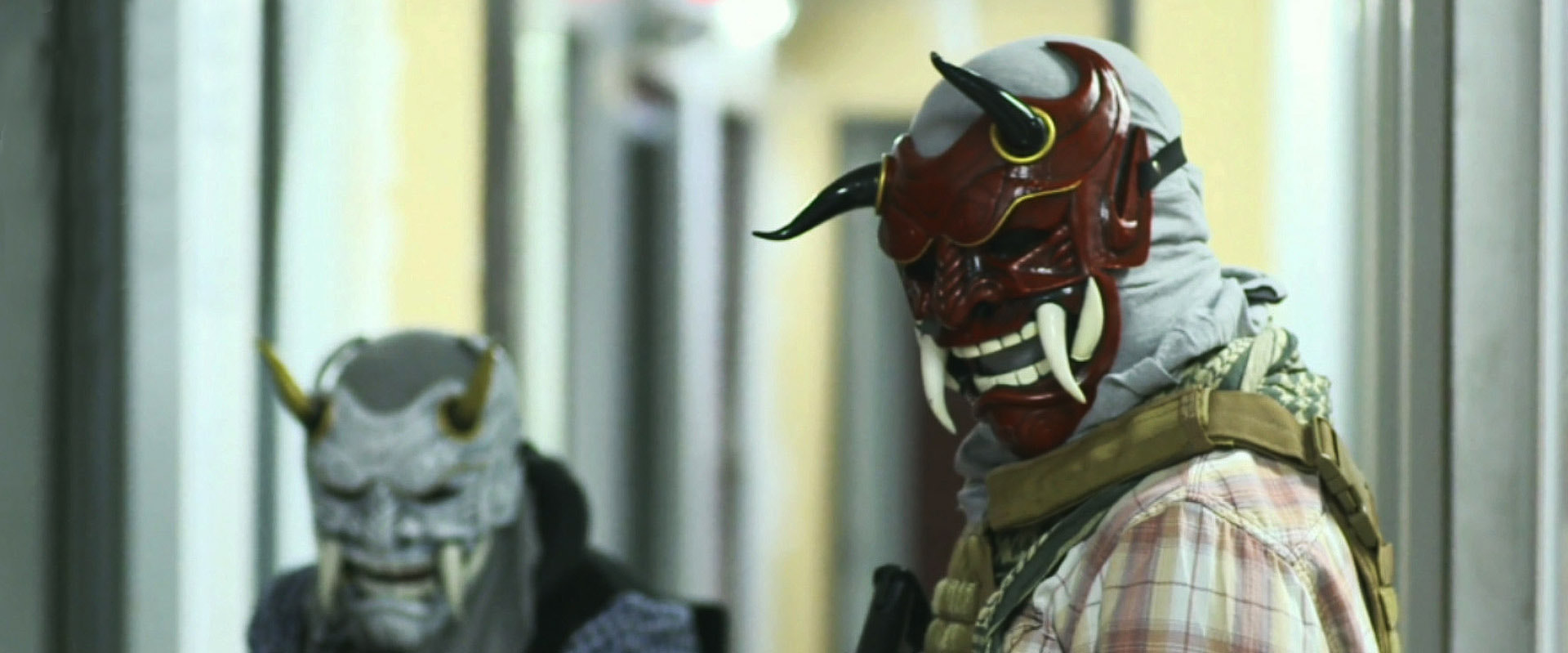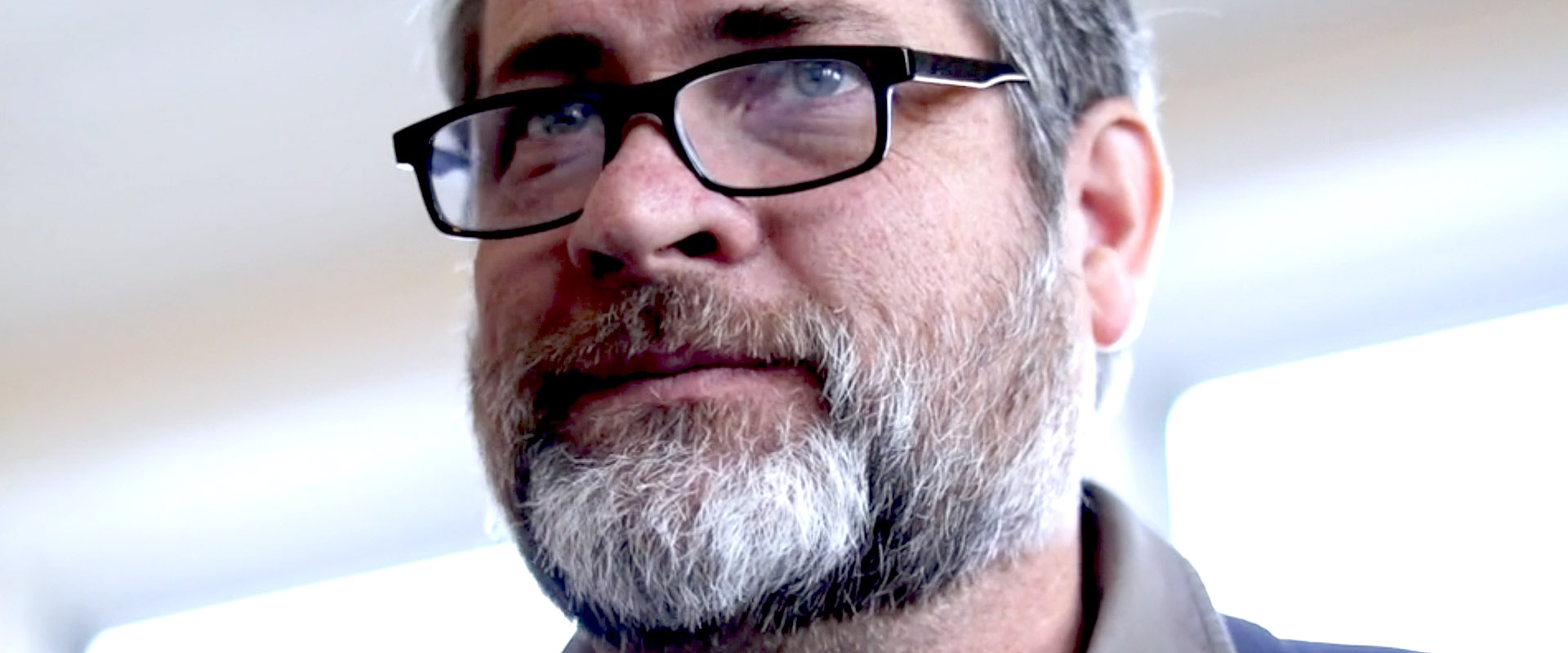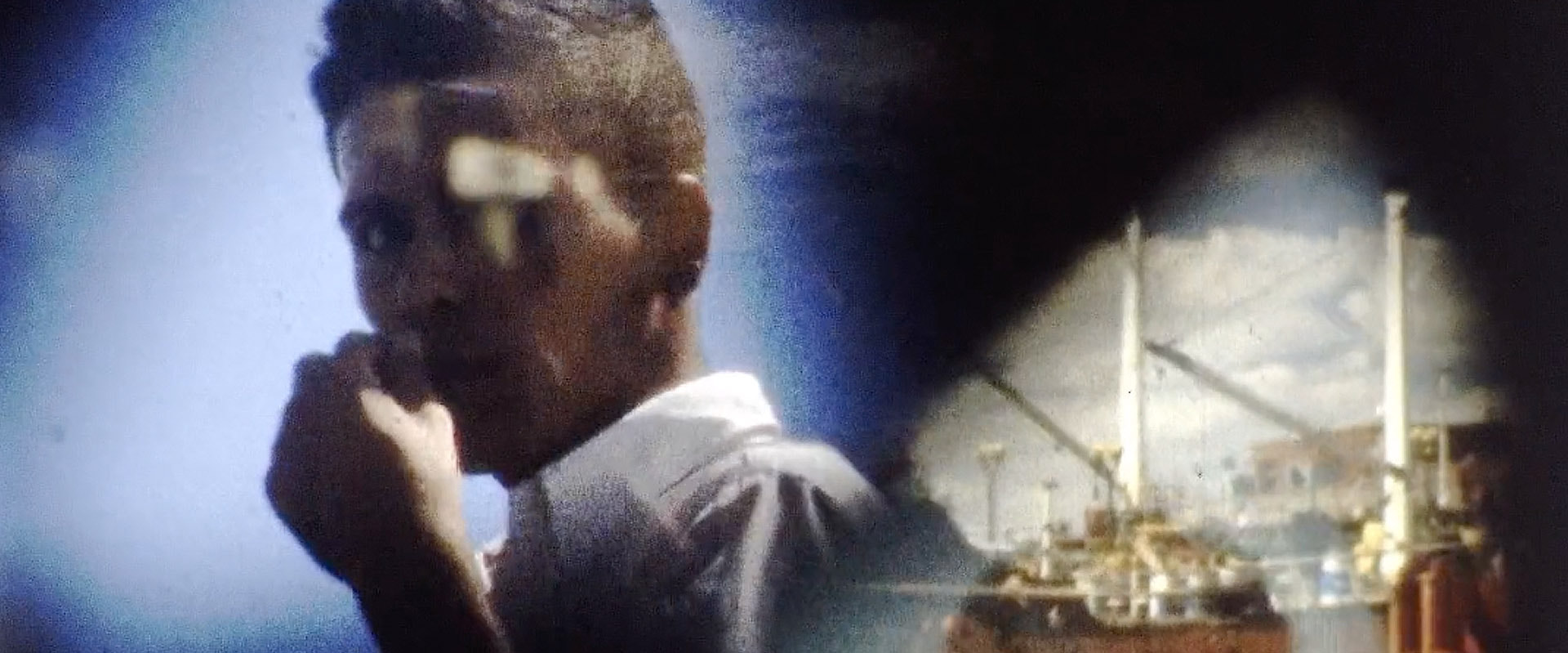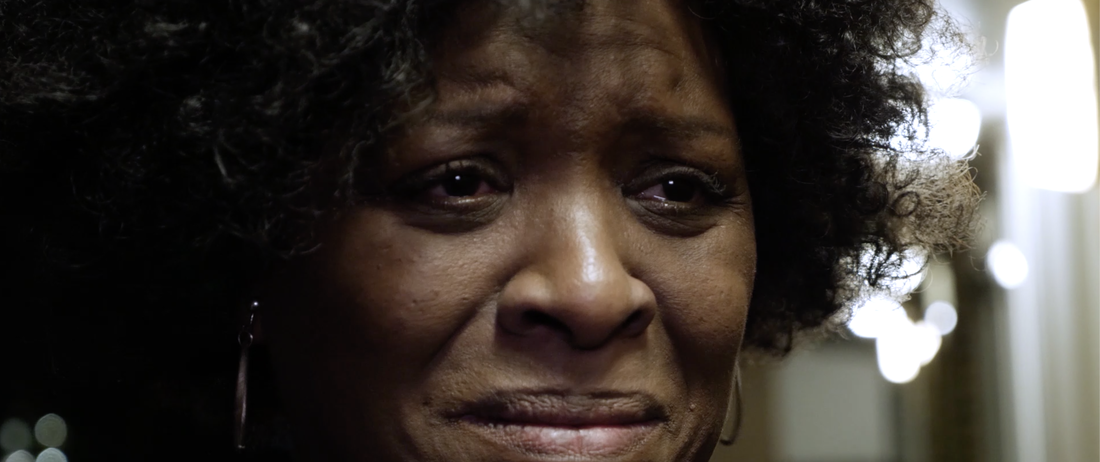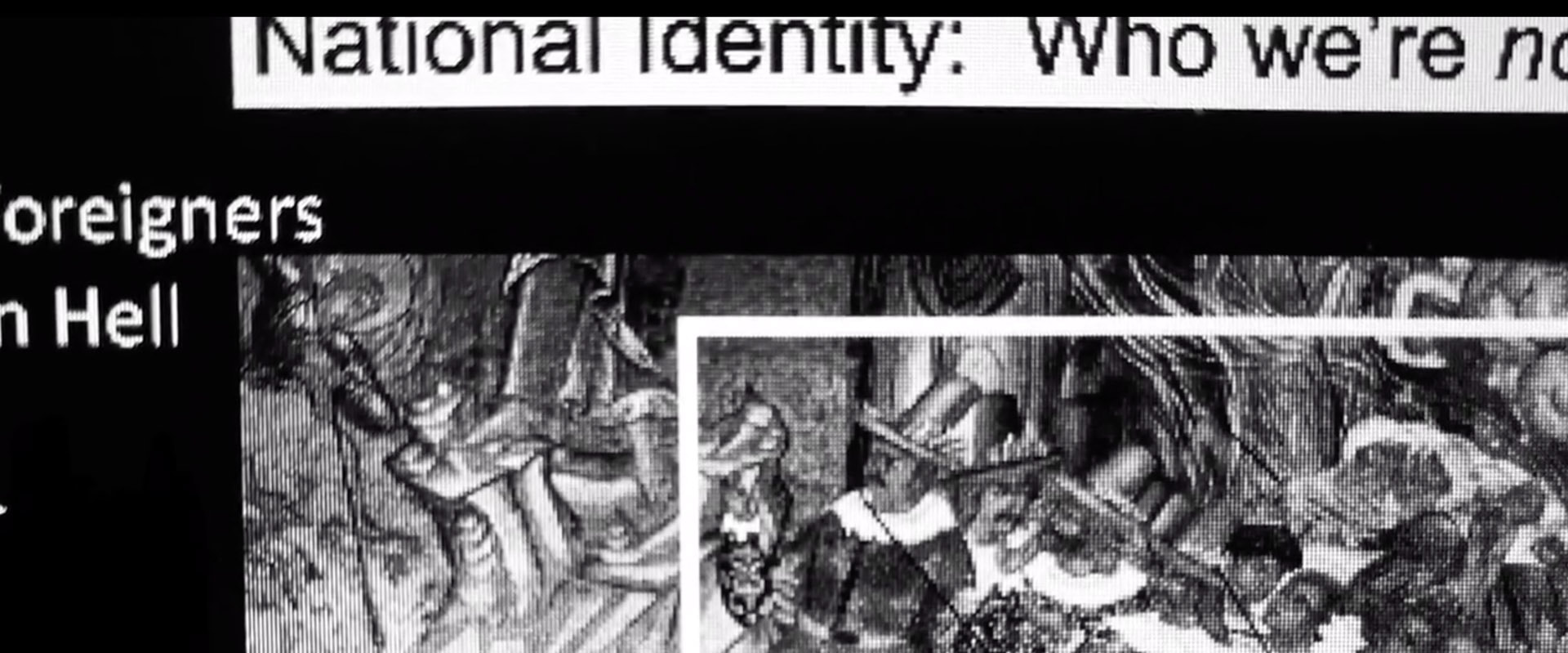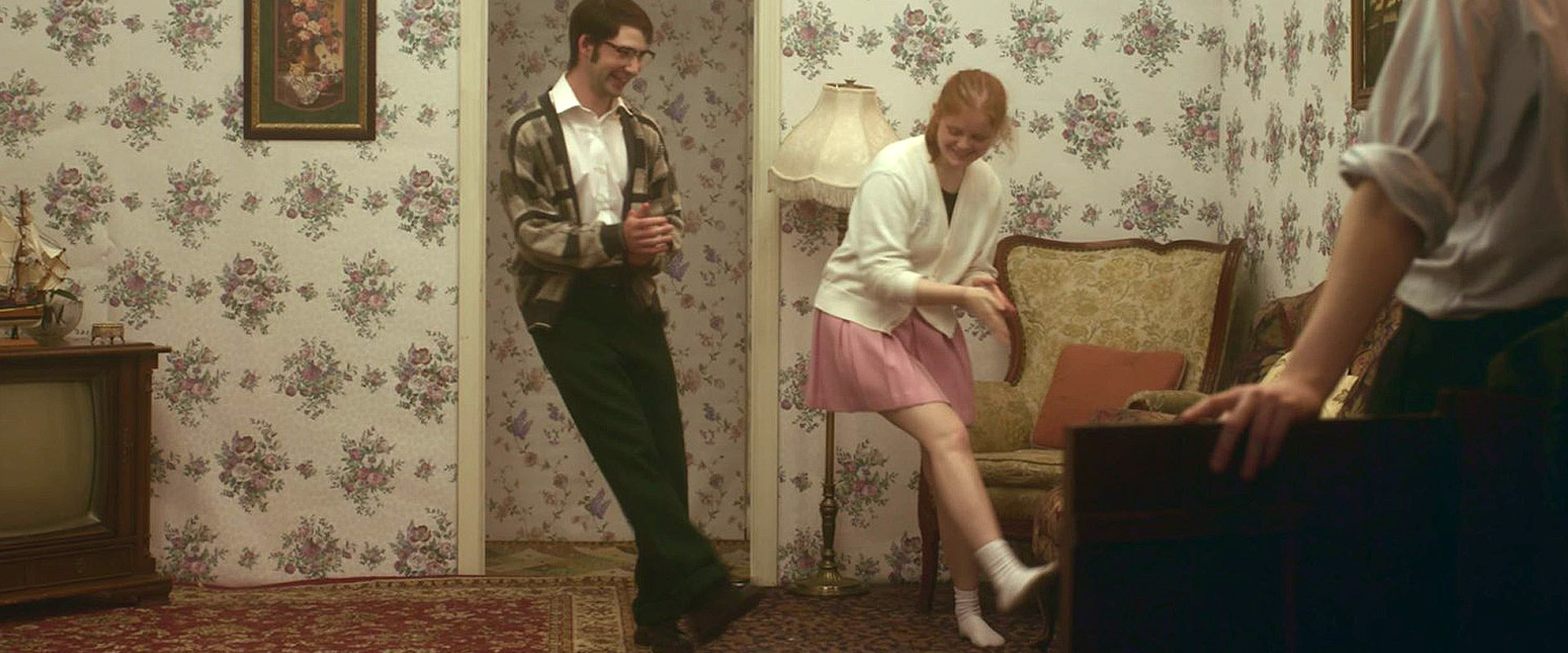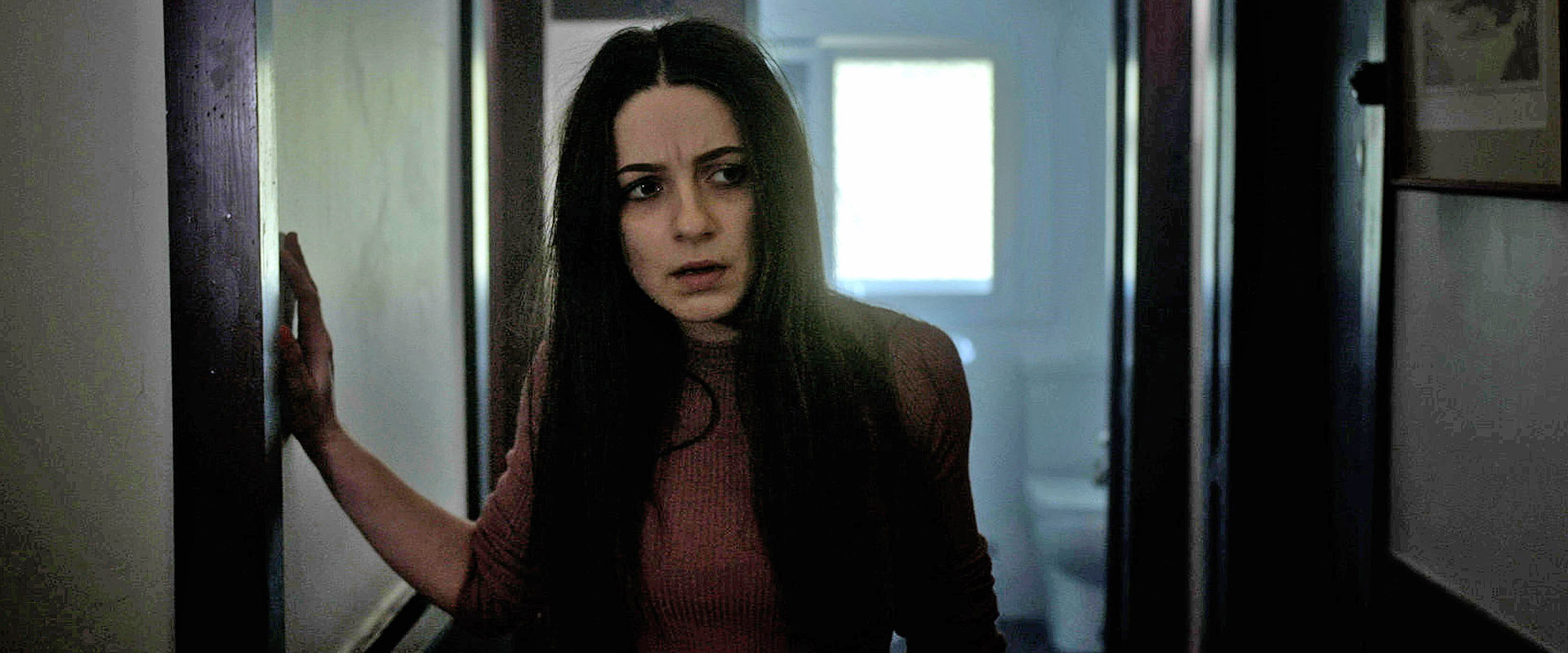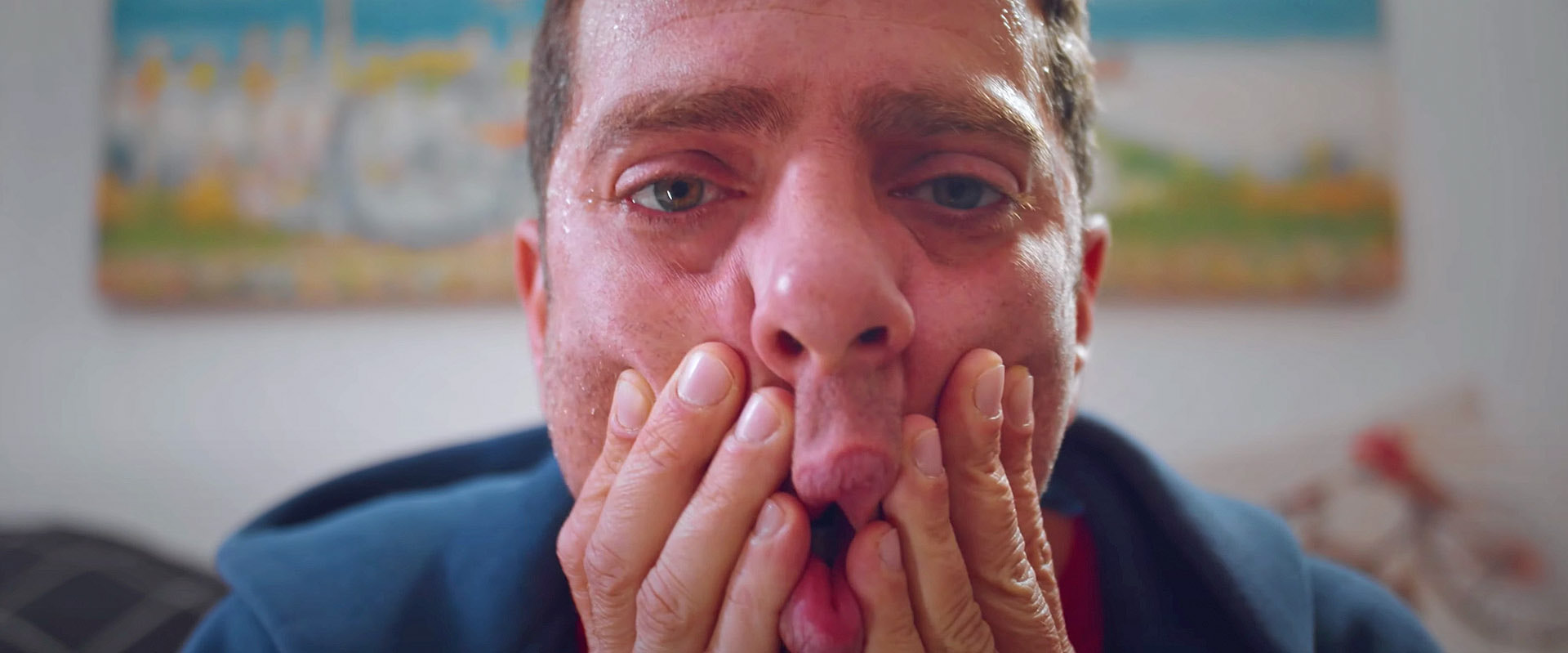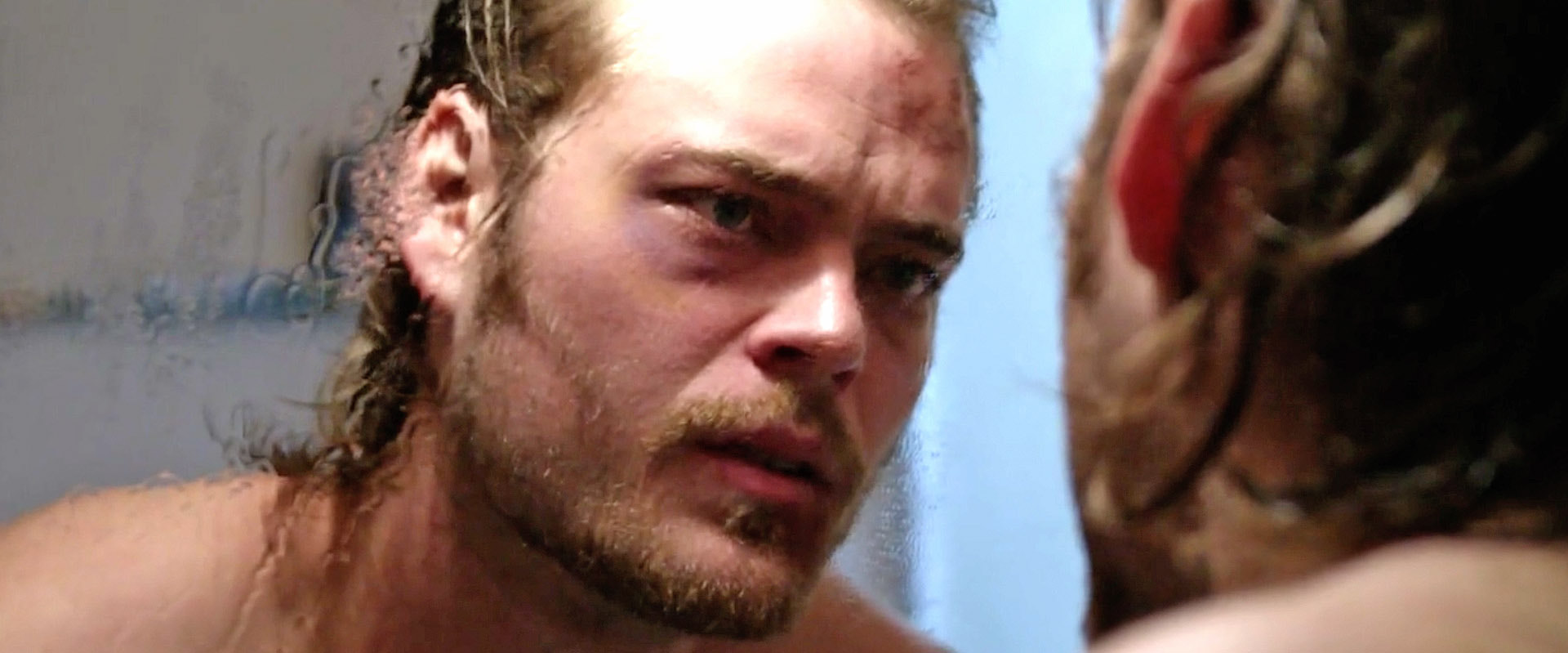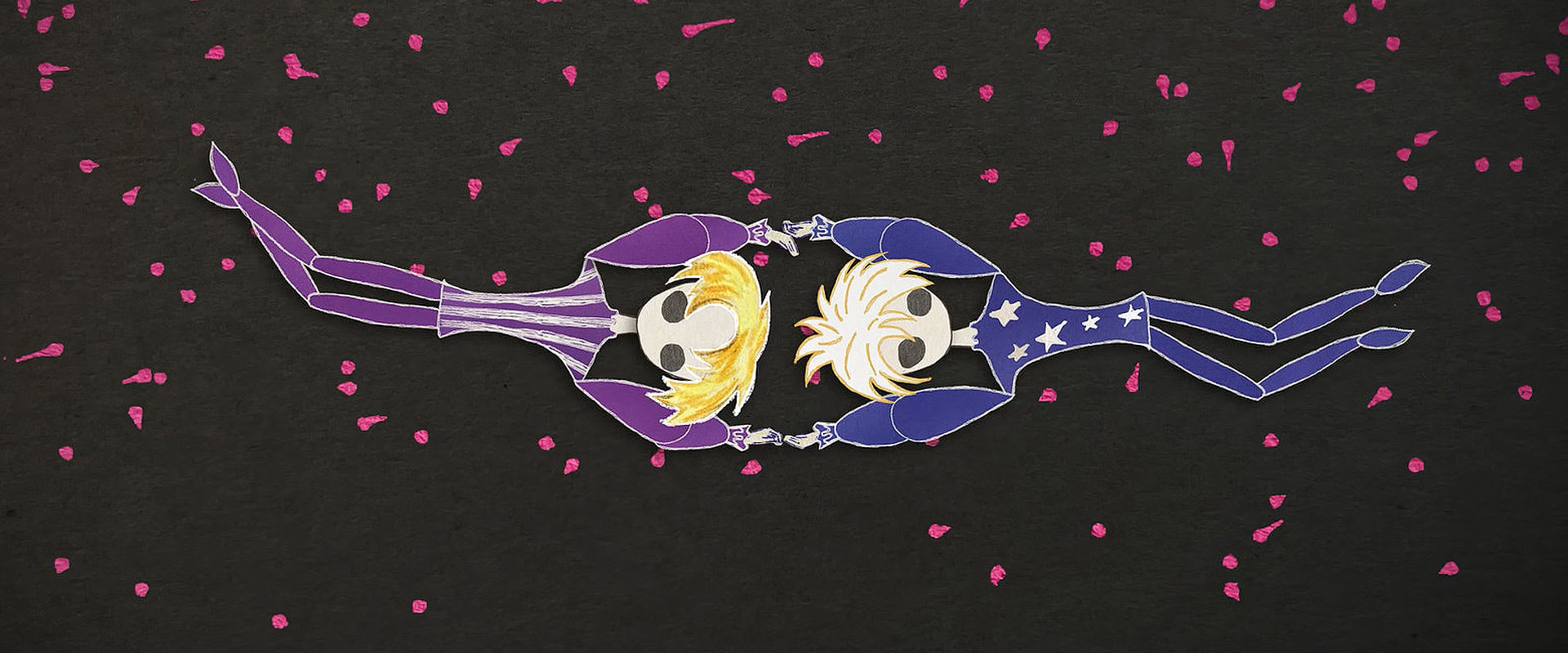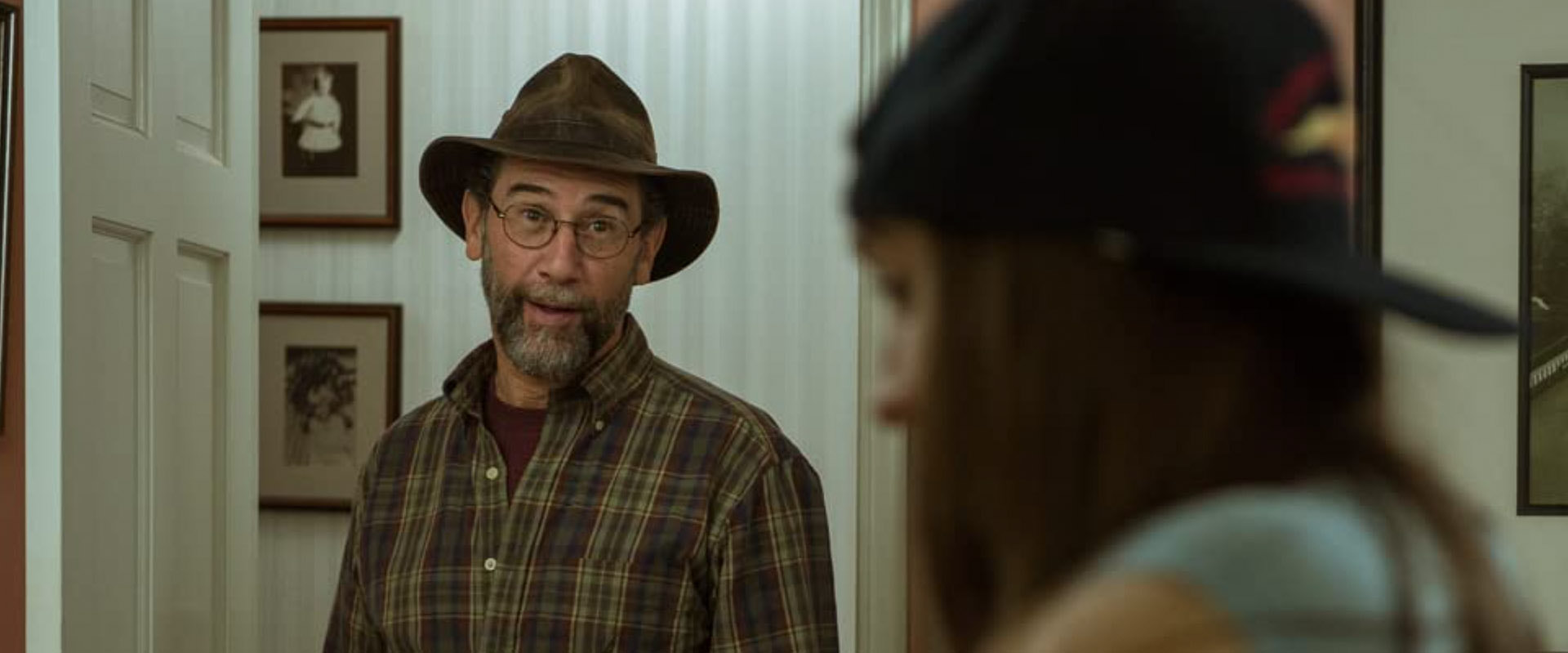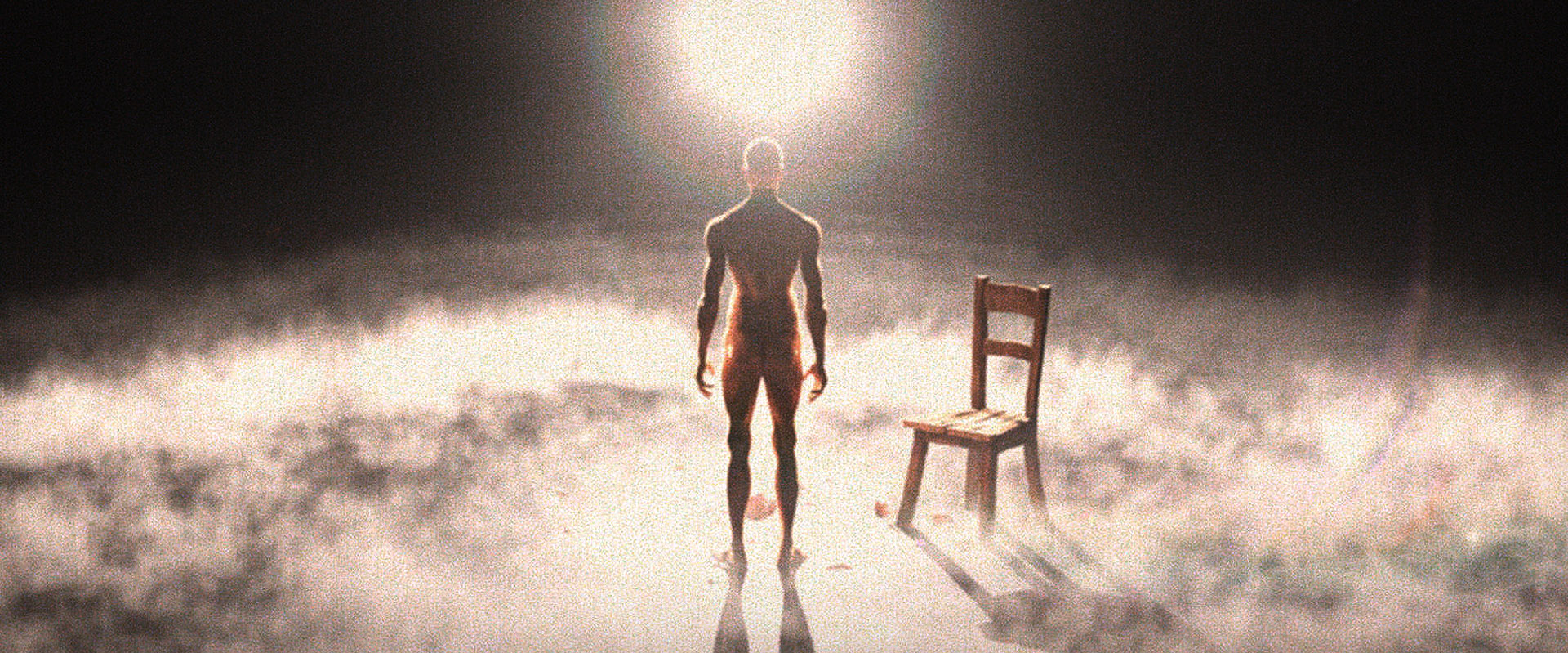|
(Dys)Functional ★★★★
By Adrian Perez Infectiously stylish and cool, Nowak's (Nie)Sprawna "(Dys)functional" redefines A.I. and camouflages sci-fi in mafia mobs, clever riddles, and power play. With predecessors such as I, Robot (2004), Ex-Machina (2014), and Blade Runner 2049 (2017), never has A.I. looked more entrancing and menacing. Nowak gifts Tomasz Sobczak and Agnieszka Kawiorska an envious performative exercise from which they deliver an irrevocable masterclass in screen acting, with Kawiorska ultimately stealing the show in her humanoid rendition. Nowak is on top-form, wrapping his psychological battlefield in an immersive wide-angle lens that exposes us, unable to hide, as much as Adrian in EVA model 9's predatorial game of cat and mouse. Cryptic, unpredictable, and striking, a must-watch. A
Abstract ★★★
By Adrian Perez When his sister becomes yet another addition to his hometown's missing people list, Kristian Martin decides to take action and go into the dark abyss of the forest to look for answers. Abstract's biggest attraction is unquestionably its solopreneurial filmmaking approach at the hands of Martin himself, who stars in, directs, shoots, and edits the whole motion picture. Such an approach remains a sign of a true cinephile, and often the very origin for masters of cinema, Martin Scorcese's The Big Start (1967) and The Blair Witch Project (1999), are formidable examples of skeleton-crew films that went onto gain significant recognition. Whilst Abstract operates within an ambitious and rewarding canvas, it never gets to exploit its true power and can feel disjointed. There's a tense coexistence between claustrophobic shots that overtly suggest first-person realism to expositional coverage that evokes dramatic tension. Had Martin opted to document his quest by addressing the camera directly, as if recording confessional diaries in the vein of Blair Witch Project, it would have scored him a home-run. That way, unpolished cinematic realism and narrative silence allow for a more cohesive and immersive spectatorial experience, where dramatic tension flows more naturally. Martin has irrevocable creative potential, and from the moment he employed it in Abstract, he began to change the world. After Party ★★★★
By Adrian Perez True Blood (2008-14) and Twilight (2008) have nothing on After Party. When After Party feels like a self-contained ambiguous short film about a wealthy narcissistic couple stumbling into a flashmob in the middle of the night, the Zarbis deliver spectatorial thrills as this clan soon turns into vampires ready to devour their expensive prey. The Zarbis maintain an air of mistrust and wariness, engulfing us in horror iconography under the dark of the moon; it's acoustically that the Zarbis finally alert our senses and switch gears for this horror musical. Intricate in every way, After Party throws intertextual connections to Michael Jackson's 1983 Thriller music video and makes a gleeful canvas soon turn into a bloodbath. Instead of taking the R-rated route into graphic violence, gore, and vampire sex, the Zarbis focus on the fun absurdity of it all and breathe new life into an exhausted genre. Perhaps it's over too soon, that may be my only criticism as everything in this cinematographic canvas is first-class—a fitting tribute, sexy, hypnotic, and savagely fabulous. An American In Europe ★★★½
By Adrian Perez I love independent cinema that preoccupies itself with innovating and experimenting beyond the omnipotent classical continuity system. Johnny Vonneumann pioneers the way for kaleidoscopic storytelling, serving what he has baptised in An American In Europe to be a new sub-genre, the "documentary opera." Near-hysteric fast-cutting, stylistic rhetoric, and symphonic richness override our senses resulting in a documentarian canvas that's perhaps too avant-garde for the restless mainstream eye to sit through and enjoy. Vonneumann's oeuvre does have a tendency to confine itself to the realms of installation art and academic research in its documentarian nature devoid of character narrative. This observation is by no means limiting, as video space art has quite the impressive price tag attached and is a curatorial priority at MoMA and Tate, to name a few. I do long to see Vonneumann's kaleidoscopic exploration take him to a larger narratorial and cinematic feature-length scale canvas. A hypnotic odyssey and great victory for experimental cinema. Anna Rosenberg ★★★★
By Adrian Perez Wow, a mind-boggling scriptural and performative odyssey, a tense and hostile one-location film where what seems like easy police questioning for Anna Rosenberg (Claudia Gerini) soon trespasses into a trap and plan for personal vendetta at the hands of Capitaine Duval (Christophe Duval), who lost much due to Rosenberg's reckless uncensored fiction which corrupted the minds of his loved ones to life-terminating consequences. Rosenberg's model citizen facade, ideals, and integrity are pulled apart in an attempt to unmask the monster ("director of conscience" as Duval calls her) within. But is Duval in the right? Is Rosenberg truly to blame for what her readers do? Lieutenant Scavino (Pasquale Greco) will find himself cornered as much as Rosenberg in Duval's cat-and-mouse game. Anna Rosenberg is a suave, more naturalistic Basic Instinct (1992), where Michaël Moscatelli's not interested in amping his film's stylistic or plot-driven thrills, but rather amps spectatorial suspense through a labyrinthine, convoluted conversational script that empowers its three leads and makes for sublime award-worthy performances. Moscatelli's canvas also comprises some of the best and most inventive close-up cinematography in quite some time. Cryptic, provocative, and murderous, this is a one-location film like we've never seen it before, where dramatic tension breathes organically, suffocating its leads to the point there's no more air in the room left to breathe. An understated triumph. Awakened ★★★½
By Adrian Perez From the get-go, it's unimaginable what could've possibly happened to Adam Race's protagonist when he wakes up disorientated and with no recollection of the last few hours in the vastness of this forest. For a directorial debut, Yulian Mateo teaches a masterclass in upholding dramatic tension as Race lures his way back into civilisation and remembrance; what appears to be a film about post-traumatic repression soon turns into a cyclical purgatory and out of body experience that isn't overtly obvious and will shock spectators in the final act. Awakened's triumph lies in its sublime depth of field cinematography and visual depiction of Race's mental subjectivity, offering an exquisite psychoanalytic exploration into the neurotic defence of cognitive defragmentation or traumatic dissociative amnesia. However, Awakened's overall impact gets lessened by a prosaic soundscape and flat narratology; this cinematographic canvas could have benefitted from a tempo-rhythmic building crescendo as memory fragments resurface, introducing higher stakes in its approximation to the truth. A formidable directorial debut. Sedating, mystifying, and ultimately jolting, get ready to swim in Mateo's optical illusion. B
Bobby ★★★★½
By Adrian Perez Wow, immediately from the get-go, we know we're in safe, sophisticated, and cinephilic hands; Bobby exhibits the highest calibre of independent cinema from its immersive soundscape, narrative silence, and editorial tempo-rhythm to its narratological competence, visual storytelling, and rising star performance. Henry Burge is the quadruple threat to beat in 2021's film festival race and does a Bradley Cooper in starring in, writing, producing, and directing his very own film. For a directorial debut, Burge masterfully rises above Bobby's story beats to encapsulate urban and human decay through Los Angeles's underground dystopia; where homelessness and drug addiction pollute the spaces Charlie (Burge) dares to enter in search of missing old friend Bobby (Siri Miller) who owes mafia boss Bill (Anthony Skordi) big time. Whether deliberate or not, Bobby opens up an intertextual realm— as well as Classical Hollywood nostalgia (through 1923 Lizzie Miles)—that's hard to ignore, in his use of car voyeurism, graphic violence and minimal dialogue (that scream Drive (2011)), to the Taxi Driver (1976) poster replica as part of the film's marketing collateral, to even a Wendy Torrance lookalike in Miller (from The Shining (1980)). Beyond Bobby's cinematographic ambition, there's an absolute cinephilic adoration that breathes intertextual life into this brutalist post-gangster canvas. Burge drives us to gritty and macabre basement suburbia in what's unquestionably one of the best independent films of the year. C
Chesca - You're My Baby ★★★★
By Adrian Perez Prepare for Chesca's unique vocal stylings and pop-infused R&B-progressive trance crossover anthem as we venture into New York megalopolis, reminiscing over a lover who fared too soon. Conjoining a Swiftian lyrical sensibility with her slow, mournful contralto vocals—that echo an exquisite Winehouse-Morisette crossover vocal--You're My Baby sees Chesca embody a pink-haired anime Carrie Bradshaw in her confessional odyssey through Manhattan bliss wrapped in Rivera's cinematographic calibre and versatility. Catchy, hypnotic, and post-modern, Rivera employs a fitting canvas through which to promote Chesca's vibe. COP DOC ★★★★
By Adrian Perez COP DOC is masterfully absurd and hysterical, and audiences will eat it up(!). Much of COP DOC's triumph lies in its clever script, expressive performances, and bonkers concept—much of which is driven by the stellar Victor Verhaeghe, who leaves an imprint on both paper and onscreen through his unique star power, physical comedy, and conceptual originality and ambition. There's little not to love about COP DOC, if anything, a little room for technical improvement. Verhaeghe and Doug Bost deliver unusual wit and trouble in Officer Doctor Leon Sullivan and first-class comedy that demands pick-up and its streaming series. COP DOC is a new breed of comedy that merges the comedy of gags with the comedy of personality. The genius physical comedy of COP DOC is hard to come by. Cuerpo Universal ★★★★½
By Adrian Perez If you're as skilled a cinematic storyteller as Liana Carbone, this canvas, if employed right, has the transcendent power to make us become one with the film, overriding our senses, making us both agent and inhabitant within the story world of your making. Cuerpo Universal flawlessly surrenders you to become one with nature, a prime exemplar of cinema's immersive power. A formidable tempo-rhythmic audiovisual synchronisation, entrancing cinematography, and subtextual richness make it hard to believe this is Carbone's directorial debut; this is poetic cinema at its finest. Jada Maya is triumphant in the role, mesmeric and bewitching to watch. Allow Carbone to take you by the hand to meet your home planet, one we so deeply neglect and are privileged to have. Cuerpo Universal is primitive whilst heavenly, entrancing whilst murderous; this is one of the most cathartic and riveting poetic odysseys of the year. D
Damned ★★★★
By Adrian Perez An amusing vignette where the first rule of customer service is compromised from the get-go, no, the customer is not always right(!). Rude, impatient, and ultimately a time-waster, Lauriane Sire plucks locksmith heavy-lifter Youssef Sahraoui's last nerve in a series of misfortunate events. Damned serves French comedy at its finest; Noam Zaffran pens a hysterical script and is able to rival it with a charismatic cast, playful score, and editorial tempo-rhythm. For a directorial debut, Zaffran exhibits a tremendous talent for directing cinematic realism. Damned quickly turns from witty to gritty, it's a short cinematographic canvas that could've benefitted from more mental subjectivity and even bonkers hysteria, but to get such a small subjective critique is as good as it gets for first-time filmmakers who are already operating at the technically competent level of metteurs-en-scène. Damned is uproariously absurd and brilliant. Detached ★★★
By Adrian Perez Detached tells adopted Jorge's (Carlos Campuzano) story, who loses his father (Jorge Ebro) at the hands of COVID-19 and his mother (Ingrid Reino) at the hands of grief's many stages, which distance him from her. George Ebro's directorial approach to his story is ambitious; though this is not a cinematographic canvas that will define him, he asserts his unquestionable potential and leaves behind unfinished business for himself. Detached serves Ebro a trial arena through which to hone his directorial chops, and whilst semi-competent in his approach falls into some rookie traps—such as breaching the rules of cinematic space. As a storyteller, Ebro does have a tendency to use all the tools at his disposal, making his work overflow with melodrama. But less is more. Actions speaker louder than words; Detached's story substance demands zero to minimal dialogue, scenes such as Jorge's first encounter with his dad after he learns the dreadful news hold enough dramatic tension. The use of too many words and a music score can easily pollute what's otherwise a potent and naturalistic scene, where toxic masculinity would impale father and son from truly breaking in front of each other when they're itching for a good hug and cry. Such miscalibrated executions lead the way for badtruth acting and vandalise the film's chance at a suspension of disbelief. As far as student film productions go, Ebro hits the mark, but in due time this newcomer will exponentially grow to find some missed opportunities here, such as a deeper exploration into the psychological aftermath of loss and the textual richness that can come from minimalism. Detached gets an A for ambition. Ebro's a Jedi in the making. Devoid ★★★★★
By Adrian Perez Devoid of many things is Monika Blaszczak’s protagonist here in Matthias Von Braun’s 2021 masterpiece; Blaszczak performs an arresting rendition of a human physical vessel lacking and awaiting to get wired with its consciousness. Just as Neo got unplugged from The Matrix (1999) and spitted out into the machine world’s drainage system, Blaszczak eloquently emerges out of a similar post-apocalyptic oil orifice into existence for the first time, making of her first movements a ballet-like choreography that soon gets glitched up by mechanical movements that override and corrupt her hardware system. Von Braun proves he lives and breathes Film. Every departmental aspect of this production feels the touch of a loyal servant of Film, who not only cares for the details and puts forth an immaculate micro-short film that showcases the highest degree of cinematographic achievement, but also impregnates a subtextual and intertextual richness that will satisfy more than one science fiction fan. If you’re the hardcore Matrix fan as I am, you’ll automatically induct Von Braun’s Devoid as an unofficial addition to the Wachowskis’ Animatrix (2003) anthology of short films that expand the world of the Matrix. Devoid’s environmental surrounding resembles a familiarity to the Matrix’s machine world, Blaszczak mimics Ridley Scott’s Titans in Prometheus (2012), and its acoustic realm pulsates an impending doom that echoes Blade Runner’s (1982) mythological and electronic Neo-noir score. Von Braun’s Devoid is both parts stylish and philosophical with every fibre of its being. This is a micro-short film about creation, or better yet, miscreation; when Blaszczak eventually retreats into the oil tank she emerges from, Von Braun suggests an existential crisis, an incompatibility, a virus attack, a corruption, toxic contamination with this uncanny mechanical world. Von Braun’s ambiguous oeuvre engulfs us into a toxic world that corrupts us to the point that his inhumane heroine would rather be replugged to the Matrix and go to sleep. Von Braun’s latest audiovisual canvas elicits a philosophical dimension that science fiction has the power to evoke. After watching Matthias Von Braun’s micro-short film Devoid you’ll be grateful you weren’t born in this dark post-apocalyptic world of his making. A harsh thesis puts forth the impotence we can come to feel if we’re not born into an untroubled utopia, then what psycho-emotional and psychosomatic repercussions can that have on us? Original, intertextual, phantasmagorical, Devoid is an absolute masterpiece; whoever says otherwise is fooling themselves. Von Braun is an original who displays an ambitious cinematographic calibre and an auteurist maturity that takes a lifetime of film education and auto-didacticism to gain. Chapó Von Braun! Distressed ★★★★
By Adrian Perez Films like Distressed are hard to come by, where a talented director retreats us to a cabin in the woods in the middle of nowhere, fully suited and suffocated, to strip us down to watch our past life burn right in front of our very eyes in a conscious decision to shift gears and strive for change. Distressed invites us to undergo a cathartic restorative process as to whether we are truly living the life we set out for ourselves or whether we got caught up in the "matrix"? Martin Sandin takes us by the hand into the woods to absorb the unflinching silence and motionless tranquility Nathan Larson (Carl Ingemarsson Stjernlöf) so desperately needed to escape to. A wreck of a father but a wiz of a businessman, Nathan finally lets his fast life come to a standstill, so he can reflect on what truly matters to him, but is it too late to recuperate his family? I applaud Sandin, the wiz behind this forestal poetic odyssey, for his methodologies in depicting Nathan's psycho-emotional realm most authentically through long takes, claustrophobic close-ups, and narrative silence, then cutting through that dramatic tension with bursts of anger and destruction. Distressed entreats us to a rare minimalistic canvas infused with the highest calibre of auteur structuralism, psychoanalytic and philosophical depth. What's most captivating from the get-go is Sandin's subtextual juxtapositional work, my favourite critical moment: the first time we see Nathan fully suited crossing the road into the forest, creating a clash and tense coexistence between orderly civilisation versus the primitive wilderness. It's Sandin's gradual blurring and breaking of these thematic dichotomies and his depiction of mental subjectivity bathed in realism and minimalism that scores him a home run. As Distressed triumphs in these arenas, its performative and scriptural counterparts follow soon after, whilst robust in their executions, they demand even more depth. Quietly hysteric, poetic, minimalistic, and ultimately cathartic, Distressed is a must-watch. Sandin is in a league of his own, operating at an ambitious and intricate directorial and cinematographic level. Dreams Of Emmett Till ★★★★
By Adrian Perez Bobby Field refines his groundbreaking zoomie canvas to make for an astutely-constructed and hard-punching theatrically abstract drama in Dreams of Emmett Till. What proved a downfall for Field's co-directed virtually staged play of Gloria J. Browne-Marshall's SHOT: Caught a Soul seems colossally polished and improved here. Everything is elevated in this virtual play, from Browne-Marshall's more tempo-rhythmic script to its intricate 1950s production design, to its more strategic multi-Zoom camera production and historical montage. A provocative, visionary account of the horrific 1955 Mississippi murder that saw 14-year-old African American Till lynched and brutally murdered after being accused of offending a white woman (Carolyn Bryant) in her family's grocery store. Sixty-five years later, justice still hasn't been served for Till's kidnapping and murder, when both Bryant's husband Roy and his half-brother, J.W. Milam, confessed to the murder. Poignant, incendiary, this elevated virtual play comprises a stellar cast with Jaiden Kwiseka playing an ascertained Till. Phantasmagorical much like Browne-Marshall's and Field's previous play, Dreams of Emmett Till goes one step further to bathe this fictional trial in realism and flashback storytelling. Setting the bar high for virtual plays, Dreams of Emmett Till captivates through its stylistic rhetoric, retaliates for Till's legacy, and reinforces why he posthumously became the icon of the civil rights movement. E
Earle Pilgrim's Boutique Films, Lt.d Outtakes ★★★★★
By Adrian Perez The Lily and Earle M. Pilgrim Art Foundation excavate and bring forth rare gems in these outtakes from Pilgrim's 1965 experimental cinema. For film historians and critics, the moment we gaze eyes on the preserved archival footage of Pilgrim's collage title and credits for Peregrinations of a Hat and other Antics (1965) holds so much splendour and historiographic richness; it situates us within a sublime preserved sequence that immaculately encapsulate Pilgrim's artistic inclinations and thematic preoccupations. Pilgrim's first series of outtakes exhibit an air of progress and personal freedom for all in America's first public botanical garden in the Boston Public Garden, where free ducks and civilians wander around the monumental commemoration of America's Revolutionary War general and first president George Washington, as well as its declarations of independence, patriotism, and stability. Pilgrim impregnates this soft canvas in the first sequence with leisure and art through magic tricks, a game of pool, and his signature art in the form of paintings, collages, and metal sculptures. His second canvas in the second sequence takes a tonal detour and proves more chaotic; he clashes peaceful Boston suburbia in the form of two African-American kids walking their dog with the industrial revolution. In clashing these two worlds to suggest societal evolution, he presents the automobile, new fashion, television, and medicine through near-hysteric hand-held cinematography. This fresh collection grants us an exclusive peek into Pilgrim's avant-garde realism; his life caught unawares bathed in auteur archeology and textual richness. Earle Pilgrim's outtakes are sublime beyond compare. Election Night ★★★★
By Adrian Perez When Election Night feels a bit directionless and agnostic in its narrative, it ensues a tonal shift in the third act that punches with a primordial activist message that much legislative work lies ahead of us. For Barbara (Sam Jackson), campaigning is all she has ever known, and it has compromised her personal life; no stable job, no house, no man. In a revelatory schpiel to newbie colleague Mahoney (Brennan Pickman-Thoon), we find her at a point of existential crisis that soon flips after Andreeson's (Karen Kahn) compelling televised campaign speech—a much-needed woman running for office. Peter Zerzan masterfully directs a building crescendo for the multitude of humanitarian causes that demand action and leaves us on a close-up that serves as a cliffhanger for just how much progress we have yet to fight for as a global village, beyond America. Though Zerzan's cinematographic canvas is technically sound, it demands stylistic ambition and more visual storytelling at the hands of scriptural economy and minimal dialogue. Putting this observation aside, this is a mic drop of a short film, a subtle protest, a call to action, a PSA film that gob-smacks and empowers. F
Felis ★★★★
By Ares Sirvent With an intimate, natural, and creative style, Joey Angerone presents his short Felis. A bizarre drama with fantastic overtones with a more than satisfactory result. The film begins with a sequence of shots, where we see the protagonists grow until they reach the trigger for the short film, the death of their father. Thus begins the journey for these children who will do everything possible to bring their father back to life, even if it means blood, sweat, and tears. Through a simple but effective script, Angerone tells us this story, developing the plot well with turning points that undoubtedly surprise the viewer and with an ending that leaves no one indifferent. However, the story is sometimes long, becoming repetitive at certain times, something that usually happens in most short films but that luckily has an easy solution. However, one thing does not take away from the other and it is worth noting the phenomenal work that its director does in most of the scenes, making it effective, entertaining, and above all, getting the best out of its very young performers who manage to convey a truly overwhelming naturalness. There's no doubt of this filmmaker's directorial ability, capable of doing really surprising things; its cinematography should be also be noted above the rest, cinematography that feels fresh and with a documentarist touch that gives verisimilitude to a story that screams for it. As for its technical facet, it is true that the film's sound design is decent, however, it can be improved. On the other hand, this film's work both in light and in colorimetry is more than remarkable, obtaining, as a result, a differential aesthetic that manages to spread a mystical atmosphere, inevitably evoking an extremely simple process of suspension of disbelief. It is a totally recommended short film for all lovers of the format, thanks to its ability to surprise us, to some luxurious performances and to a multifaceted director who manages to tell us a good story in a few minutes. Finding My Roots: Tale Of Two Carries ★★★★½
By Adrian Perez What an impeccable and feel-good short documentary powerhouse actress and stunt performer Carrie Bernans and co-director 35 Miles (Miles Wilson) have up their sleeve. Bernans serves this docu-film as an ordeal for empowerment through an exploration into your roots, so roll up your sleeves and find them; they're part of you. Bernans and 35 Miles prove King and Queen of the road, creating an intimate retrospective look at African-American history from the back of a car, with the infectiously charismatic duo in the two Carries, and through a playful Western-styled odyssey that's both gripping and exquisite to watch. Finding My Roots: Tale of Two Carries comprises the most ravishing cinematography, flawless narratology, and transfixing visual archive; this short documentarian vignette Bernans sparks a worthy format deserving of its longitudinal reality series. Simply outstanding and over too soon. Finding Ophelia ★★★★½
By Adrian Perez Stephen Rutterford delivers a Malick-esque philosophical odyssey and one of the most experimental films of the year in Finding Ophelia. Anti-narratological, Rutterford's canvas deviates from a classic storytelling style to deliver a feeling (or the numbness that comes from feeling hollow), a stream of consciousness, and substance over plot. Rutterford exhibits an authorial licence that concerns itself with psycho-emotional study, employing his cinematic canvas as a rare peek into this complex and convoluted neurotic and sensory realm through subtextual richness, narrative silence and editorial, and cinematographic depictions of Will's (Jimmy Levar) interiority and mental subjectivity. With an unparalleled psychoanalytic dimension, most captivating visual effects, and both intricate and gorgeous cinematographic treatment, Finding Ophelia is a poetic acid trip, a near-hysteric rollercoaster ride we'll struggle to come down from. Surrealistic, neurotic, nebulous, Aronofsky's Black Swan (2010) meets Malick's Tree of Life (2011) in this unforgettable and unique film that depicts our inner psyche within a quest every human can relate to through sublime supernatural horror. For a directorial debut, Rutterford is already operating at the highest calibre of cinematic storytelling possible. Fives ★★★½
By Adrian Perez Fives triumphs within the confines of its contextual realm, this is sci-fi on a string-budget student canvas, and it has never looked more raw and sinister. Alan Cameron, a USAF veteran-turned-film director, imprints his military roots through Bryant Daugherty's post-apocalyptic drifter and lone ranger. Beyond its sci-fi facade, this film is about survivorship, but not the type you'd expect, but the invisible type that occurs in one's psycho-emotional terrain. Survivor's guilt, trauma, and reclusiveness upstage its more physical threats and synthespian thrills. Cameron makes room for action and substance. Whilst Fives' overall ambition is arresting, it sporadically calls for more sophistication on a directorial, synthespian, and cinematographic front, but when you look at this production's get-go limitations, you really can't fault it but applaud it. Dystopian, bleak, and moody, Cameron asserts his arrival and is here to stay. G
Geneva Jacuzzi's Casket ★★★★★
By Adrian Perez Wow, as a film critic and scholar, one can easily get to an omnipotent position where it's hard to be surprised. Chris Friend delightfully surprises with Geneva Jacuzzi's Casket (GJC) and offers the most intricate and multidimensional of music videos I have ever seen. Friend's experimental space opera comprises the ingredients for what we critics call sublime artwork, where no matter how many repeat viewings I embark on and how hard I try to unpack all that's on display here in GJC, it's simply impossible. Four years in the making, this is a transgressive and sophisticated masterpiece that screams its longitudinal post-production process. The mainstream eye will be captivated by GJC's hypnotic rollercoaster ride through its retro-surrealistic and alien scenography and near-hysteric fast cutting. All sorts of visual cues get frantically spitted out at us. GJC's subtextual richness serves a feast for the eyes; whilst not many will comprehend it all, perhaps that's Friend's very ordeal and what makes GJC so magical. Weird is gold, and Friend amps it up in a direct invitation to follow him down the rabbit hole to this alternate punk-cybernetic universe that doesn't demand your rationality but your imagination. Friend does implant one narratorial pillar for the more logical viewers to hold onto in Geneva's mission to dissemble her BioDrone and keep her safe in her casket. The hardcore cinephiles and sci-fi enthusiasts will devour GJC's intertextual realm with suggestive hints of the Wachowski's Matrix (1999) and Ridley Scott's Alien (1979), Prometheus (2012), and Blade Runner (1982) sagas dispersed across its cinematographic, synthespian, editorial, and acoustic dimensions. Post-modern, avant-garde, and hysteric, let Friend inject a virus directly into your hardware and enjoy this cerebral and retro-futuristic ride. Gestirn ★★★★½
By Adrian Perez Gestirn will haunt you to break you. Surveying an abandoned building in search of her fugitive vagabond husband, who took off for unknown reasons, Rara (Paulina De Matteis) will come face to face with him to kill him for his betrayal. Lucas Ackermann pens a daring thriller about repressed emotional loss, and Fabio Stretcher brings this psychological battlefield of his making to life in the most sinistrous, unheimlich fashion. When we think it's Hanno's reality that will get effaced, Ackermann and Stretcher flick the switch to place Rara in the seat of neurotic defence at the hands of complicated grief syndrome and traumatic distress. Gestirn's underground labyrinth sets the stage for a study of repression, masterfully depicting concealment and revelation and bringing repressed conflicts into the conscious mind. Gestirn delivers cinema's cathartic power and helps us find ourselves personally and psychically amid our inner matrix. With its ingenious subtextual richness and psychoanalytic dimension, and De Matteis's career-defining performance, it's hard not to love this provocative, absorbing psychological spectacle that exhibits the highest calibre of cinematographic achievement. |
H
Honeymoon On Park Street ★★★½
By Adrian Perez Tensions run high for Ruvek Maharaj's love triangle; this is an exquisite drama that, whilst imperfect, serves an envious performative exercise for its leading cast and rare exploration into the psychological aftermath of infidelity. Maharaj's directorial debut radiates with thematic boldness, though missteps into melodrama at the hands of too much dialogue. Maharaj's daring intrusion into social trauma demands even more verbal minimalism; there's a rookie misconception at play that wants to saturate already tense vignettes with empty speech. The lunch scene is flawlessly architected to follow an ordeal of realism, but the first and final scenes do fall victim to melodrama. Honeymoon on Park Street isn't totally misconstructed; this is a canvas where mastery and miscalculation coexist, making Maharaj a diamond in the rough and an emerging film director to watch. Much of this short film's success lies in its cast's formidable manoeuvre of a complex indicative script, with Zach Boulton ultimately stealing the show. An overripe but arresting domestic drama and a robust directorial debut. I
IDI ★★★★
By Adrian Perez This film is high-class entertainment; get ready for the ride of your life where your oven cooker, water tap, and all sorts of home appliances decide to rebel against you. Neo Apelian does a fabulous job of keep tensions high and creating spectatorial impotence at the suffocating claustrophobic thought of not being able to leave your home at the hands of A.I. IDI is frenetic, hysterical, absorbing, and ultimately cathartic once the sirens finally come to a stop. Get ready for IDI to override your senses and send you into shutdown; this is one fun but fatiguing ride. One of the most sparkling whilst edgy short films of the year, an unorthodox recipe you'll devour and remember. Iguana Death In The American Suburbs ★★★★
By Adrian Perez Iguana Death In The American Suburbs aims to open up an infinitude of questions as opposed to answering them. Nisa Neza and Jason John Cicalese make Iguana Death an unorthodox, hypnotic, and experimental canvas where phantasmagoria intrudes on run-down suburbia. For a directorial debut, Neza brings forth an ambiguous, exotic visual storytelling style many metteurs-en-scène would dream of. Reiley Behrns and Colt Hartman also play an infectiously magnetic pair of outsiders. Charley and Echo pop in this depressed, almost abandoned town, disguised and wrapped in a zany cinematic style that The End of the F***ing World (2017-19) and Stranger Things (2016—) would be proud of. A grim but diverting short film that excels in its cinematic world-building and begs for its larger-scale feature-length canvas, so we can uncover more of the mysteries of this ghostly forest town and get to know these eccentric anti-heroes a lot more. This is a short film we don't want to see end. In Plane English ★★★½
By Adrian Perez Plonka has devoted his life's career to the study of "life caught unawares" through his corpus of visceral photojournalistic work and is very much a scholar and messiah of Vertov's methodological and philosophical approach to the cinematic apparatus. Plonka's detour into a cinematographic project exhibits both flashes of sheer originality and genius whilst also rookie filmmaking. Plonka's biomechanical approach to this micro-short film about human disconnection is avant-garde and prodigious; through a disruption in the film's visual and aural diegetic simultaneity, Plonka breathes new life into what could be deemed a series of unspectacular images by solely relying on the acoustic agent of a couple arguing for their life's disruption due to a funeral. Plonka's unspectacular cinematography evokes a heightened realism. Whilst we're dealing with pixels, blurs, and fast motion that would repel the critical eye, I can't help but applaud Plonka's ingenious protest on diegesis and simultaneity to make way for withdrawal, disconnection, and chaos, making his very choice of camera gear an ascertained decision for the desired effect. Plonka's methodological approach to his latest micro-short film presents an innovative detour, an exercise, a thesis, a protest, and above all, an uneasy coexistence between the unpolished, whilst yet, the masterful. Perhaps this is where In Plane English falls short, in that it’s so self-contained and contempt with being a mere methodological exercise. We are unquestionably in the safe hands of Vertov's modern-day messiah; Plonka is a renowned photojournalist-turned-experimental filmmaker whom I'd like to see operating on a larger narratological and cinematic scale canvas. In The Heart Of The Machine ★★★★★
By Ares Sirvent Encouraging, plain and simply, encouraging. Many critics say that cinema is dead, caput, finite, but you know what? Cinema is more alive than ever and this is what Martin Makariev shows us with his work In The Heart Of The Machine, which tells us the story of a group of prisoners who work in an iron factory and who are involved in an unfortunate event that will cause a great change in all of them. It is extremely difficult to highlight just the one thing that stands out in this film and frankly, it is because its level of execution, both technical and artistic, is simply sublime. Borislav Zahariev, offers us a memorable story, through a simple narrative, with a well-defined structure, where each scene fulfils its function perfectly and in which its director (Makariev) is able to bring out the best, both across his interpreters (among which Alexander Sano and Hristo Petkov stand out with performative work that borders on being impeccable) as well as its photography and lighting by the very talented Andrey Andreev. But, its director is not satisfied with just meeting these technical milestones, he goes much further, creating an adequate rhythm for the film that prevents it from becoming something heavy despite the lack of locations and achieves it through a music score created by Viktor Stoyanov (which we are sure that we will see in large productions in the near future because he is extremely creative) and with editorial work by Nikola Milenov, who cuts each scene with the precision of a surgeon to package us a picture that I know for sure, will give a lot to talk about in the coming months. Only one thing remains now to know, how far can this "bird" fly? Cannes? Saint Sebastian? The Oscars? It is difficult to foresee but what we are sure of is that, following the career trajectory of one of the best European independent film directors, his work will not only attract the most critical, but also the general public, offering that very same thing his film brings to its characters, hope. Is This Queensland In The 20s? ★★★½
By Adrian Perez For a directorial debut, Caroline Layt triumphs in her ambitious interview coverage, managing to land interviews with Ann-Marie Lavers-Grimm (President of Team Rainbow), Matt Hall (first openly gay AFL player in the 2000s), and Maxwell Gratton (CEO of the Melbourne Queer Film Festival), whom all join her in debating the LGBTQIA+ community's current stance in their race for equality and inclusivity through the infamous longitudinal case of Queensland's Rainbow Beach and its Rainbow Stairs. A monumental peace treaty that got hijacked by the graffitied slogan "How Good Is Living," was a public mockery and the start of a downwards spiral towards homophobia. Is This Queensland In The 20s? (ITQIT2) is a formidable debut documentary by former trans athlete turned self-made filmmaker Caroline Layt, who as well as shifting into her creative gears, also taps into much-needed activism for the LGBTQIA+ collective's fight and race is far from over, not just in Australia but all over the globe. Layt's documentary though thematically robust and operative, does feel disjointed and unpolished in its near-hysteric fast-cutting and low-cost cinematography. Ultimately ITQIT2 would benefit in the third act from a deeper exploration into the recorded homophobic attacks in Australia in the past years; Layt brushes past some striking news headlines and misses an opportunity to interconnect the localised Rainbow Stairs conflict to a broader threat and issue. What's unquestionable here is that Layt delivers a bold, informed exposé that triggers LGBTQIA+ activism. It Gets In Your Blood ★★★★★
By Adrian Perez Film historians and cinephiles will devour Ed Hartman's historical documentary It Gets In Your Blood, which chronologically takes us through some of Academy Award-winning documentarist Richard Lyford's key career beats and contributions to mainstream filmmaking as we know it today. Hartman is a titan of a solo documentarist himself, self-sufficient and triumphant in directing and editing an elegant and paceful account, accompanied by his soothing vocal narration, which makes Lyford's cinema pop and the whole documentarian piece cohesive and easy to follow. Hartman owns Lyford's film estate and brings forth his groundbreaking cinema to modern audiences with utmost care and sophistication. From chronology to cross-examination, Hartman imposes the question as to what would have happened if Walt Disney hadn't taken Lyford under his wing? Lyford was an innovative and award-winning metteur-en-scène renowned for his miniature sets and narratorial and stylistic imprint; would a career deviation allowed him the space and time to groom into a more widely-known transcendent auteur such as Orson Welles? Provocative, captivating, and irresistible—a must-watch documentary this film festival season. Italy In Bocca ★★★★½
By Ares Sirvent With unmistakable style, hilarious touches of humor, and impeccable editing, Roberto Serrini presents his particular cooking program, in which together with his charismatic companion Petter Boggia, will explore some delicious classic Italian recipes, extracted from some striking cookbooks, published more than 40 years ago! The truth is that you know that a program works when you want to see more, that simple. And that's the feeling you get when you see Italy in Bocca, you want to see this couple doing more things, whatever it is! Together they give off overwhelming chemistry and a passion that completely breaks the fourth wall and that makes an aforementioned who has never been interested in even making a fried egg, want to start cooking recipes that are possibly more than a century old. And the thing is, food is a universal theme and its director well knows that we are fed first through the eyes and how can we not feel full after such cinematographic wealth? Where each meal seems a real delicacy made by Chef Ramsay himself. This program works perfectly because its director knows whom it is aimed at, what its objective is and above all, it is made with a special ingredient that is achieved in few places: passion. It's that simple and it is evident that the couple wants each dish they make to be perfect and that manages to generate sympathy and a naturalness that is difficult to see in most cooking shows. That is why we strongly recommend that you sit down and watch this little program, if possible with your parents and that you enjoy the magic that Serrini has in telling us these recipes and then you must put them into practice, believe me, you won't regret it! J
Jestem Tu "I Am Here" ★★★★
By Adrian Perez Adam Nowak is a pioneer in science fiction drama, flipping the genre to unveil its more psychoanalytic and philosophical side. Jestem Tu "I Am Here," just like Nowak's predecessor in Nie(Sprawna) "Dys(Functional)" is concerned with blurring the difference between humanoid and human, with the latter offering an exploration on whether humanoids are dangerous. Jestem Tu renders Nowak an even more sophisticated canvas and exploration into loneliness, human sexuality, and an early peek into our future sexbot landscape (it's coming). Nowak directs Hubert Bąk's futuristic love story with finesse, rendering a confusing promiscuous encounter with dystopian beauty and elegance. Jestem Tu is the Pretty Woman (1990) of science fiction films. Neither man nor female humanoid is superior to the other; both find themselves in existential crisis, equally lost, lonely, and devoid of connection. Though Nowak steps into the future, he very much tells a story of the present; how is it that a perfectly handsome and accomplished man has to resort to a robot for company and intimacy? Technological progress continues to thrust us into an epidemic of loneliness; behind this entrancing and visionary facade lies a thought-provoking cautionary tale. Provocative, sensual, and original, everything on display here is top-notch. Juicy RnBitch - I'm The One ★★★★★
By Adrian Perez Most of us these days have the power and potential to be famous at our fingertips, but just how far would you be willing to go, and what is the price you'd be willing to pay to get there? Juicy RnBitch and Theo Eifrig infiltrate their socio-cultural critique through our very mobile devices utilising an ascertained 9:16 aspect ratio and the power of animation. The results, a raw, graphic, and immersive cautionary tale that directly addresses a millennial audience (through a familiar canvas) who have been identified as a collective to be fame-obsessed and exhibiting higher rates of narcissism, materialism, and entitlement. Joel Stein wrote a compelling piece about this Me Me Me Generation back in the May 2013 issue of TIME I'd recommend reading. I'm The One will see us follow and torment two poor ghetto girls on their journey to 4 Million daily views, and torment is an understatement. From their initial laid back too-cool-for-school attitude where weed, alcohol, and revealing clothing decorate this lead duo's musical endeavour, these girls soon get flushed down a downwards spiral of exhibitionism, self-inflicted violence, and drug abuse to reach their fame. A playful and attention-seeking animation that soon turns crude and graphic and wraps us into a world where weapons, red eyes, baseball bats, and smoke take over centre stage, where the main thematic for this artist's tour becomes suicide. Harrowing, twisted, narcotic, this striking animated music video leaves an imprint. Be safe on social media. K
Kaeru ★★★★
By Adrian Perez “Child of light that cries out for help as is struck by the relentless onslaught of a chaotic world and finds no refuge.” The subtextual and philosophical depth of Djemil’s work is truly exquisite, and Kaeru, his latest poetic canvas, is no exception. Djemil titles his art piece, Kaeru, which means “to return” in Japanese (帰る), and ultimately presents an audiovisual poem and interpretation for human resilience through our neurotic defence mechanism. Djemil not only wraps his heroine protagonist in an uncanny graffitied railway tunnel but also presents her nude and primitive, and thereof grotesque, Gollum-like. Djemil opts for this state of decay in both his protagonist and surrounding to magnify his masterful schpiel about how we get back up as life hits us hard to the ground. Hartley’s recital is post-apocalyptic, biblical and proves the most ascertained choice of narrator for this self-contained piece. Presenting Crispo’s creature character completely nude is an interesting choice in this context, as Freudian psychoanalysis would suggest the origin of trauma and defence lies in the very nature of sexuality; Djemil strips his female-Gollum down along with her defences, making her most vulnerable and exposed. Upon repeat viewings, we can unpick more and more layers to Djemil’s matrix, impregnating every frame with subtextual richness; my favourite of Djemil’s employments has to be the use of freeze-frame to follow our creature along. Djemil makes the lens’s mechanical gaze omnipresent. Whilst exerting unshakeable stylistic rhetoric to his work, these snapshots convey an impending danger and unpredictable force, this idea of a fugitive escaping from the lens or about to attack it. Djemil’s micro-short film is cryptic, poetic, sublime, unfit for the brainwashed mainstream; I add myself to Djemil’s loyal cult who will eagerly await to dissect his auteur archaeology again in his latest oeuvre. I long to see Djemil tackle a larger feature-length cinematic scale canvas. L
Life Was Wonderful ★★★★½
By Adrian Perez Toy Alan masters interiority through hallucinatory horror scenography. If Sam Raimi's Drag Me To Hell (2009) and Martin Scorsese's Shutter Island (2010) had a child, it'd be Alan's Life Was Wonderful. Alan showcases impeccability in his directorial methodology to exemplify the psychological aftermath of a traumatic event, ever-consumed by his guilt, Jason Miles's new reality after his hit-and-run is a mundane hellscape of supernatural horror. Alan employs all the right ingredients into the mix, making his directorial debut a hysteric, macabre, and iconic horror canvas that deserves a feature-length treatment. Paul Ferro's stellar performance, Kao Miyamoto's hyper-realistic special effects, and Gabriel Oliveria's cinematographic calibre help carry Alan's vision to utter transcendence. As far as psychological thrillers go, independent cinema has been blessed with a sublime entry this year. Witness the making of what will be a highly-sought out film director. M
María "Mary" ★★★★★
By Adrian Perez Irrevocably magnificent, it's hard for me to grasp how María "Mary" is Enma Brenes's directorial debut; she exhibits a level of semantic layering, subtextual depth, and richness that's hard to come by. Brenes's cinematographic canvas is an outright triumph for a homemade skeleton crew exercise with a non-actor in Brenes's mother in the role; there's nothing unpolished about this. Mayra Rivera gets directed flawlessly to evoke depth in her wandering eyes, following the sound of free birds and wishing she could fly free from her housewife chores and home-ridden life. Brenes's level of auteur archaeology is extraordinary considering she's her cinematographer, employing her mechanical gaze to find sublimity in the unspectacular, making of the interior of a fridge, a mirror, and an ironing station sinister life-threatening locales for Mary. Brenes is off the charts, unstoppable. I long for Brenes's next masterpiece, for this is a genius emerging film director who will continue to surprise and will redefine cinema. Mary offers a sinister beauty that will incarcerate your senses. Matthew Mirliani - Keep Me ★★★
By Adrian Perez Matthew Mirliani and Cesar Castillo deliver a mood in Mirliani's Keep Me music video. Marrying Mirliani's soothing vocals and electro-symphonic odyssey with this slow-moving trance-like presentation of the unspectacular scenography of Queen's more industrial state makes way for a hypnotic music video that whilst serves a mood and habitat, is missing its crucial inhabitant in Mirliani. Though featured sideways as a street wanderer, Keep Me screams for more Mirliani coverage, for that performer-audience connection and intimacy that comes from the power of the close-up and first-person direct address—a daydream of a music video. Memories Of Reality ★★★½
By Adrian Perez A lightning strike sends Jacob (Zane Zakroff) into a parallel universe, a hellscape of his neurotic defence's making, one where he can't see or communicate with his two best friends who are in the same room as him(!). What starts as a daydream coma where the only way Michael (Zach Fox) and Davis (Ernie Colquette) can get through to him is through letters and post-stick notes, which leads him to piece together his reality to the point it's so overwhelming that he attempts suicide; and if this wasn't stressful enough, this friendship trio gets hit with a global pandemic disease they must try to survive at all costs. If you think this thickens the plot, wait until the film takes a bonkers turn when the real version of Jacob's imaginary ally in the form of girlfriend Ava (Zola Feasel) during his hallucinatory coma, is the cure thief and author behind the world's impending doom. Behind Memories of Reality's science fiction facade lies a coming-of-age drama about boy-meets-girl drifts away from best friends; this is an exquisite metaphorical odyssey into the tense coexistence between relationships and friendships, where theoretically one can longitudinally rule out the other. This is ultimately Ava's vendetta story. John Christensen and Nolan Lawlor rely on an infectiously charismatic predominantly-emerging cast, a witty convoluted script, and hand-held realism to tell their far-fetched fantastical tale. For a student film production, this is a formidable entry; Christensen and Lawlor's ambitious feature-length scale believes in the ninety-minute magic rule and offers these co-directors a big canvas to hone their depiction of Jacob's mental subjectivity and manoeuvre an ensemble cast and multi-location cinematic spectacle. Though imperfect, screaming for a sharper context in less unambiguous verisimilitude, narrative silence, and more subtextual visual storytelling, Memories of Reality proves compelling and ambitious enough as we work our way in deciphering its eccentric world. Complex but uneven, exhilarating but perplexing—an outré film with a big personality. Monger ★★★★
By Ares Sirvent "I think documentary filmmaking is a braver way to make films because it's real, and you're really there." And that is what this documentary gives off, truth, what so many filmmakers dream of, transmitting truth. Monger is a documentary about so-called sex tourism, where citizens of more developed countries visit those countries with fewer resources to have sex in exchange for a ridiculous amount of money. Anyone who reads this synopsis would think that it is frankly difficult to empathize with any of the subjects that the film presents to us, but the reality is that its director Jeff Zorrilla along with the rest of the team, manage to introduce us to charismatic people whom we will not easily forget about, but not only that, Zorrilla manages to even get us to empathise with some of them and this today, in the times we live in, is tremendously difficult to achieve for obvious reasons. But the documentary gets away with it because it manages to dig into the personality of its protagonists with questions that arrow straight to the heart; in Monger, we not only see physically naked bodies, but also moral ones. Showing us that the problem of prostitution goes far beyond sexual desire. Introducing us to three people who despite being so different, share a trait that unites them all equally and is none other than loneliness. And each one of them expresses it differently and that is where the quality of this oeuvre lies, in that it manages to bear the soul of three men who began to enter that life because they feel goddamned lonely. Monger is also capable of teaching us something about the other side, that of women who are forced into prostitution because with that work they get much more money in much less time, exposing a chronic problem about a profession created ever since man was a man and that, unfortunately, hardly has a solution. However, we would have liked to know more about them, understand why they got to that situation, why they chose to become prostitutes, how this affected them in their personal and family life. As for the technical aspect of the documentary, we can only highlight good things with intricate sound design, fantastic editing, and especially, brilliant use of the close-up with which they allow you to create a bond with the girls who appear in the film and feel what they felt in each moment. Finally, it is worth noting the level of naturalism that the technical team achieves when conducting the interviews, where the protagonists say what they think without mincing words and without cracking up in the least because they have a camera in front of them, which allows them to obtain simply heartbreaking naturalism for some of the statements we hear. This, together with Zorrilla's power to transmit the truth, results in a documentary that everyone should echo to understand the magnitude of a situation whose problems are universal. My Sister ★★★
By Adrian Perez My Sister is a formidable exemplar that you should never judge a book by its cover, yes this is a zero-budget short film shot on an iPhone, but the wealth of passion and instinctive skill that goes into it is formidable. A fun, playful, and upbeat horror short film that doesn't aim to deliver horror scares but spectatorial thrills in its stylistic rhetoric and astute genre-shift into comedy; where Lily (Lily Bleu Lokoff), the younger sister of the two, pranks her older sister Taylor for trying to get rid of her on New Year's Eve. Jamie Lokoff, former actor, producer, music composer, sound engineer, and co-owner of the Grammy-nominated MilkBoy, takes a moment out of lockdown to direct for once and for all, casting his two talented daughters at the helm of his experimental supernatural horror canvas, with Lily ultimately showcasing natural flair and star power. Jamie Lokoff already uses all the tools that make an excellent visual storyteller from the device at his fingertips; it'd be promising to see him elevate his cinematographic work by directing a giant orchestra made up of an extensive crew, cast, and more expensive gear. My Sister feels self-contained in its unripe experimental exercise, but it serves the discovery of emerging new screen talent in Lily Bleu Lokoff, whom we hope to see grace the screen soon. O
Ode To An Inanimate Companion ★★★★
By Adrian Perez Much like Woody, Buzz and Andy's toys have to endure the implications that come with the passage of time as he gets older in Toy Story, Ode to an Inanimate Companion is a softer, more sophisticated look at Christina's teddy Alan and his journey from her childhood to adulthood. Dr. Susan Lim steps away from the surgery room to tap into her creative side and bring forth a story that supports her mission to create alternative methods of companionship for people through Robotics, Artificial Intelligence, and Quantum Physics. Joining forces with Dr. Christina Teenz Tan and Samundra Kajal Saikia, the three make an invincible powerhouse who embark us on an enchanting poetic odyssey through endearing animation art, a potent symphonic orchestral score, and Adrian Peacock's soothing narration. There's little to contest here; if anything, perhaps the third act feels a little repetitive and overlong. Ode to an Inanimate Companion is mesmeric and tender, an animated short film worth your time this film festival season. P
Pédaler Pour Grandir "Growing On Two Wheels" ★★★★
By Adrian Perez An autobiographical triumph. Bertrand Lemeunier and Vanessa Richard are the most fun Lonely Wolves the documentarian screen has ever laid eyes upon, with a unique way of life on the road, on two wheels, for years, each day an adventure, truly living outside of the matrix and inspiring personal freedom out of us. Pédaler Pour Grandir "Growing On Two Wheels" asides from inspiring through its cinematographic beauty and rich philosophy, evokes tremendous spectatorial gratitude for its longitudinal filmmaking. Boyhood (2014) meets Nomadland (2020) but only better, because this is real-life, and it's ravishing, magical, awe-inspiring to watch this adventure on the road unfold through its breathtaking multi-cultural odyssey, but also the growth development of its lead protagonists in Lemeunier's kids from toddler age. Through stitching personal visual archive with Richard's narratorial storytelling and philosophy, we arrive at an intensely captivating and interactive documentary that's genuine with every fibre of its being. Yes, it's unpolished on a technical front, but its substance is gigantic and its context so clear, it aggrandises its charm and validates it even more. Pédaler Pour Grandir is a documentary that will change people's lives. Persuasive ★★★½
By Adrian Perez Persuasive deserves praise for its wisdom and socio-cultural critique on how we're quick and naive to jump at conclusions and generalise an entire collective based on a lived experience, or worse, mediatic representation. For father and daughter Caleb and Ciara, our lead protagonists played by the bewitching duo in Walter Harris and Jessica Sade Ward, they'll have a hard truth to swallow in their C.J.'s murder at the hands of a prejudiced police officer. Where C.J.'s murder drives Ciara to join the force and reinforce her people's safety, Caleb gets flushed down a toxic downwards spiral, to become secluded and untrusting of anyone, especially the police. In one cataclysmic event, Caleb's limiting belief system will come under attack, restoring his faith in humanity, and for that matter, the goodness in some patrolling peacekeepers. The events of the past year have inspired an entire generation of filmmakers to create films that depict our tough quarantining sacrifices during the 2020 pandemic and the pluralised police brutality the African-American community has had to endure since the beginning of time. George Floyd's "televised" murder punched the world harder than ever before, at a time we'd all paused our lives and were forced to watch. I've seen many short films in the past year recreate Floyd's murder within narratives. I've seen filmmakers of all kinds imprint their pain and need for protest through a cinematographic canvas, but none tackle and subvert the issue at hand more maturely than J. Writer Ward. Ward's Persuasive flips the problem to remind us not to lose perspective and not let this global crime intoxicate us, to the point we create more hatred for each other. There are good, and there are bad folks out there. There's a compelling directorial critique here that will punch hurting audiences in the gut. Persuasive's maturity, cinematographic calibre, and standout performances in Harris and Ward are off the charts. I do wish Ward's editorial and acoustic decisions were better calibrated to match its more robust counterparts. Ciara and Caleb's living room argument in the first act holds enough dramatic tension that I can't help but feel gets washed down and diminished by its accompanying epic orchestral score. It can feel distracting and sabotaging of Ward's desired effect. On a narratorial level, I could also contest the need for higher stakes and a more dramatic climax, for the short film's ending does feel abrupt, creating an insatiability in the spectator once the short film's over. My critical eye warns me that Ward's Persuasive is not a home-run, but it's unquestionably solid and powerful. Ward's tenacity in using all the tools in his arsenal makes him a promising storyteller and one to watch. R
Rain Pot ★★★★½
By Adrian Perez Rain Pot's a different type of poetic odyssey for the trained eye, where Gordon Moore sculpts a polysemic spectatorial experience out of ceramic paintings and their rotational motion, and where a major tertiary partner in the film's soundscape brings his mesmerising ceramic visuals to life. Moore's experimental methodology leads him onto biomechanic meaning, deriving serenity and chaos from the same visuals via acoustic alterations. The minutiae of Rain Pot's ceramic storytelling and stop-frame animation is hypnotic, trance-like, and the film gets ultimately embellished with a philosophical dimension in its passage of time, where not only the seasons change, but also humanity's circumstances—with the ceramist eventually wearing a face mask for COVID-19 protection. Rain Pot is a great victory of a directorial debut. |
Rishi Ki Dunia ★★★½
By Adrian Perez Broke rookie filmmaker Rishi (Shanoj Subramaniam) is trying to break into mainstream cinema as well as paying the bills, alongside struggling actor, flatmate, and best friend Ajit (Pankaj Sharma). What neither of these loser friends would've counted on is in their passion film idea, The Spiderman of Jhoolpura—that they believe could take them to the big screen, making them rich—getting ripped apart at the hands of film mogul and producer Gumnaam Kapoor (Girish Kumar Nair) to become a B-grade softcore movie: Spiderman's Hot Neighbour. Deadpan dry-wit comedy, situational mumblecore drama, and high-class improvisation make up Kumar Nair's exploration into the poverty psychology of starving artists and the irreversible salvation of the adult industry. Shot in the Indian film metropolis of Mumbai, Kishi Ki Dunia is the family oddball of Indian Cinema/Bollywood, which thrives on happy, colourful musical spectacles, melodrama, and costly big set productions. Kishi Ki Dunia works within its constraints to elevate a restrained vigour; this is a grim comedy that pushes past its hysterical inciting incident and lovable cast to depict the darkest pit of depression, with Kumar Nair opening up a hallucinatory realm that pushes Rishi to the precipice of suicide. Whilst hinted at, this raw psychoanalytic dimension of the film is never graphic, Kumar Nair keeps light-hearted and dry-wit in portraying Rishi's mental subjectivity and existential crisis, with his clone ghost nagging him daily. Kishi Ki Dunia is as guerrilla and low-budget as you can get, and whilst captivating on a scriptural and performative level, a darkly-lit facade detains much of this film's substance from shining through. All the odds were against Kumar Nair from day one in the making of his first feature-length film, and whilst a contextual crisis that never seems evident in its performances or clever script, is plastered all over its cinematographic treatment. Aesthetically displeasing but a tonal and thematic triumph, this is what could in time become an irresistible cult title in the global indie film scene. Kumar Nair, much like his doomed lead protagonist, doesn't need funding to shine; he has already proved his acting and directorial chops with an exquisite instinct for narratorial tempo-rhythm. Kumar Nair now needs to believe in himself and have that resilience and optimism transcend to his cinematographic lens; an inexpensive camera doesn't mean it should doom the film's cinematic language and need for visual storytelling. What's unquestionable is that Kumar Nair is a promising new filmmaker on the block, a diamond in the rough, and whose directorial debut is amateurishly brilliant, uncanonical, and witty. S
Saintfield: Into The World ★★★½
By Ares Sirvent The neoclassical group SAINTFIELD, made up of the talented Ali Jafri and Ciara Adams, brings us by the hand of creative director Adrian Smith, their debut on the music scene with their EP: Into The World. With idyllic staging, spectacular sound, a great wealth of shots, and robust editorial tempo-rhythm, the director presents us with the group's first song, Next Full Moon. And after a brief introduction in black and white of a small rehearsal, we know the second song of the group, Into The World, with a much more dreamlike aesthetic where the use of light by Kai Masaoka plays a fundamental role when it comes to developing an aesthetic that gives the song a spiritual atmosphere that makes it possible to immerse oneself fully into each musical note. This, together with resourceful cinematography, gives the song a dynamism that prevents the theme from becoming heavy and, in turn, manages to convey the depth and meaning of its lyrics. Next, we meet, Oonagh, where the use of tighter close-ups helps to fully convey the purity with which this group transmits their songs. And their ability to transport us to another place that brings us closer to resuming contact with nature, with the help of superb cinematography by Wes Ledge. DIL KI AVAAZ is perhaps the group's most colorful song, with a good rhythm and where the melody prevails over the lyrics but, it is perhaps the one that treasures the greatest shortage of documentarian shots and this, makes it end up becoming irretrievably, a more complicated product to consume. Despite this, its director offers us especially beautiful shots like the one we see at the end of the song, where we visualise the face of a woman reflected in Ali Jafri's instrument. The recording of this EP, regrettably ends, with the use of two close-ups of the protagonists of this dreamlike piece, in black and white with a colorimetry that, although across most of the product is consistently robust, in the use of these shades, leaves much to be desired. Despite the use of this resource, one that does not work either in the beginning nor in the end, SMITH offers us a remarkable job in the realisation of these four songs, where the newcomer group will give much to talk about and praise in the musical panorama of the Neoclassical genre. Shivering Wall ★★★★
By Ares Sirvent This work transports us directly, to another reality, where its director Tseng Yu Chin, paints on a canvas, in this case, a film screen, four shots that could easily be signed by Novicio, Annigoni, or why not Kei Mieno. And it is that the seventh art consists of expressing without speaking and this oeuvre spills subtext with a sequence of fixed shots that are the cry of a trapped generation, who try to fit into any situation, without much success in the vast majority of cases. The compositional work of the young artist is brilliant, placing the actors in the most adequate positions, with a lighting style that transmits by itself what the director seeks to say. And with small details such as the cloud that hangs over our protagonists, to bring some freshness to the painting. The truth is that not many will understand this oeuvre, many will even criticise it for being too lengthy, but it is that timeframe that allows us to fully immerse ourselves in it until we reach precisely what its director wants, lose ourselves contemplating it until we separate our body from our mind. That is why we would not be surprised to see Shivering Wall in the great museums of modern art and its visitors floating hopelessly through the room, saying nothing, only allowing themselves to feel that transgressive feeling that emerges when you see the oeuvre, loneliness. SHOT: Caught A Soul ★★★
By Adrian Perez 2020 saw the rise of a new artistic canvas as many took to Zoom to creatively express themselves and put on virtual plays, or what Bobby Field and Jeffery Thompson baptised as "zoomies." Field and Thompson take Gloria J. Browne-Marshall's fantastical whilst melancholic stage play to this experimental realm. An originally corporate video-telephonic portal sets the stage for this metaphysical play about an innocent teenage kid who comes back from the dead to haunt his murderer, a white officer who wrongly finished him. Khalill Adams Pilgrim ultimately steals the show, rendering an infectiously charismatic, cheeky, and lovable Kareem who dreams of becoming a rapper and conquering his high-school crush, a necessary standout performance to gain spectatorial empathy and impotence for the murder of a perfectly harmless, youthful kid who is yet another victim of racial profiling and police brutality. Browne-Marshall's sublime script, phantasmagoria, and theatrical abstraction deliver SHOT: Caught a Soul's call to activism and justice. Whilst ambitious in its execution, we can't omit some of the many technical downfalls this limited canvas imposes on its theatrical art. Powerful performances, high-class writing, and dramatic tension seem to halt from truly transgressing past its blurry and pixelated facade. Zoom is a canvas Field and Thompson are adamant on reinvigorating, and I long to see some of these challenges surpassed to make for an unquestionably flawless masterpiece. STAND UP! Looking For Love In All The Wrong Places ★★★★½
By Adrian Perez What do you do when you have holes in your brain so big they echo? For top comedian Charlie Schwarzer (Timo Jacobs), his downward spiralling career descent at the hands of dementia crash-lands him into the existential crisis of an empty underground comedy club and empty bed after his wife walks out on him. If Charlie's life wasn't complicated enough, he becomes entangled in an art theft complot. Timo Jacobs follows in Woody Allen's footsteps and Café Society's (2016) quote that life is a comedy written by a sadistic comedy writer; Jacobs takes on the role of such sadistic writer and makes for a raw, bestial canvas in his infusion of such thematic dichotomies as comedy and dementia, there's nothing funny about this mentally deteriorating disease, and this tense coexistence makes for a hard-gripping drama that's most naturalistic, for even in the crudest of moments life can offer a little bit of sparkle and light. Jacobs's STAND UP! Looking For Love In All The Wrong Places serves plenty of deadpan comedy, and that's perhaps what's most masterful about it, to be able to make out of grim scenes outright funny vignettes, imitates life as is. Jacobs proves a quadruple threat in tackling the lead role of his written, directed, and produced feature-length cinematic canvas that's nothing short of sublime, serving a standout award-worthy performance in his broken whilst deeply charismatic Charlie and a film that showcases the highest level of cinematographic achievement. STAND OUT! is a memorable weird egg of a film that will snatch our hearts; as well as proving one of the most exciting actors of our generation, Jacobs also finds his auteurist imprint that has a sprinkle of Allen's sadistic comedy touch. T
Terminal ★★★★
By Adrian Perez Kadi Wald is an exhilarating newcomer, who just in her directorial canvas, can manoeuvre her way through subtextual visual storytelling, something that takes rookie filmmakers a few films to grasp. Wald's poetic odyssey needs no words to express humanity's negligence for earth. Who appears to be Terpsichore, the muse of dance, makes an appearance in Terminal, engaged in a sensual choreography that soon turns fatal by her polluted surrounding. We then understand this is Mother Earth presented in human form. A happy couple who are expecting a baby come running in her aid but merely stand in revulsion. Following in the steps of Beauty & The Beast, where the Enchantress (disguised as a beggar woman) casts a spell on The Prince for his arrogance, Mother Earth will go onto burn her victims, much like we'll all burn if we don't put a stop to global warming. Wald's fragile and entrancing visuals soon turn brutalist, horrifying. Here's an emerging film director who's not afraid to shift gears and go where no other creative will dare go to depict her rage and impotence for the atrocities our home planet is having to endure daily—a remarkable directorial debut. The Coffin Bound Kings ★★★
By Ares Sirvent The Coffin Bound Kings tells the story of Owen Chador (Matthew Ewald), a former military man who ends up infiltrating the mafia to end it from the inside, orchestrating a master plan with which he will be forced to give absolutely everything to try to get out alive from this complicated mission. The film begins with a monologue by its protagonist played by Ewald (who should be noted, exudes pure talent, in the interpretation of a well-built character that is difficult to play on the big screen), where he explains the hardships and dramatic experiences of the brave soldiers who manage to come home after a long time fighting the war. This soliloquy recorded in such a natural way manages to capture our attention from the get-go, generating great interest in what is to come. However, despite having a great first act, problems begin to blossom with the arrival of the second, and it's through small nuances that prevent us from completely immersing ourselves in this story. On the one hand, through its colorimetry, which changes its palette without rhyme or reason throughout the film and prevents us, as spectators, from creating an adequate imaginarium about the world in which this story is based, that is, its suspension of reality is frankly insufficient. Next, due to its excessive use of a music score, which although phenomenal, its use borders on the excessive, often becoming completely unnecessary. The truth is that in several scenes, its director together with his technical team manages to do a great job in the elaboration of the sequences but, there end up being small problems that stain the final packaging of the shots, such as the choice of costumes where some characters seem to be living in the 60s and others today. And although the choice of these gives an exotic component to the film, turning them into something new, the error lies in the lack of decision when choosing one or the other. However, the film gives off great qualities that make it an entertaining product to watch, such as its good humour touches that make the general public laugh on more than one occasion, its ingenious shots, or its rich dialogue, which stimulate reflection on the audience's part on more than one occasion. Things that, unfortunately, are stained by a sound design that needs to be reviewed again by its director to be able to correct small errors, which would raise the quality of the film to another level, such as the use of foleys that come to be heard as caricaturist instead of realistic, or shots with absolute silence due to the lack of ambient sound that creates a feeling of there lacking a technical consciousness in the film. Despite this, we are sure that a good director is hiding, that he will smooth out these small roughnesses and that, he will end up surprising us in his next films, not only will we hear news from him on a filmmaker level, but also on an actor level, which he has already shown to be at a high exceptional level in this film. The Crow And The Pitcher ★★★★
By Adrian Perez Pearce presents in The Crow And The Pitcher an exquisite 2D-3D crossover animation whose simplicity perhaps makes for its redundancy. Pearce opts for a suave micro-short film in his formal, entrusting narrator, and chilled Oriental-Western crossover score to depict the Crow’s standoff with a pitcher to sip the water it holds. Pearce’s very construction obstructs this vignette from ever truly imposing a high-stakes buildup. I can’t help but wonder if there was a missed opportunity here, to shift gears the moment the Crow’s quest begins, to make for a bonkers surrealistic cinematic panorama; think Salvador Dali’s The Resistance of Memory (1931) or any of Joseba Elorza’s surreal collages, or even Mamos Beer’s 2019 collage animation campaign. Collage art serves as inspiration for Pearce’s intricate 2D-3D animation, and I wonder if surrealism and pop art could have jumped on this bandwagon to amp this canvas’s hypnotic appeal. Solely judging The Crow And The Pitcher as a cinematic piece, I can’t help but feel it’s missing drama, action, and surrealism to make for the rollercoaster ride that can come from a cinematic spectacle. It’s on an advertorial level that I feel Pearce’s micro-short film soars and proves a home run. Across all fronts, Pearce wraps this easy point A to B story in a whimsical and relaxing world that makes way for a charming Aperol Spritz ad (if the water were to be replaced!); it fits perfectly in that commercial sphere, so quick Pearce, pitch it and sell it. Animation at its most gallant splendour. The Dance ★★★
By Ares Sirvent This short film, directed by experienced director A.J. Ciccotelli, tells us the story of Oliver Boltzman; a playwright who after twenty years decides to find the courage to be able to finish a play that is based on his first love, which will lead him to remember difficult moments that will abruptly complicate his work. The Dance promises to be an intimate short film, with which to reflect from the get-go on something with which everyone has ever experienced: first love. However, that is perhaps its biggest flaw, because despite having such a universal thematic idea, its lack of originality makes it a short film that despite having such a talented director at the helm of it could have been much greater. Let's be honest, Ciccoteli brings us a well-cared picture by Eric Hackler and lighting that brings a lot of naturalism to each scene but, when the problem is structural, little can be done. And, most of the scenes despite being well-executed, with good direction of actors and Doug Bollinger's wonderful interpretation, suffer from a lack of creativity and originality in them, the film has a tendency to lack rhythm and feel monotonous. If we add to this the excessive use of music in most scenes and a sound design that could be improved, it gives us an artificial short film that, unfortunately, only manages to catch us when it is about to end. Despite this, there is no doubt that Cicotteli is a master at creating characters with whom he manages to show very human qualities to a great extent, thus allowing him to empathise with them effectively and immediately. However, knowing the qualities that the Thai director treasures, we would have loved it if he had tried to surprise us more with his story because we are sure that, this together with his talent for creating characters and his effectiveness in directing actors, would have resulted in an oeuvre that would not have left anyone indifferent. The Impossible Flowers ★★★★½
By Adrian Perez Multi-language, multi-cultural philosophy flashes before our eyes in this entrancing and exquisite kaleidoscopic visual roulette that proves one of the most experimental cinematographic exercises of the year. Is Jeff Zorrilla in a league of his own, operating in an advanced cinematic language not many of us have a good domain on? Precisely so. Zorrilla proves a pioneer, an auteur, a loyal servant of the medium, one who's innovating visual storytelling and leaving an investigative imprint, but whom mainstream audiences will shy away from. Zorrilla's cinema is as indie as you can, intricately architected to be sub-textually rich and polysemic, with an inciting philosophical dimension that makes us wonder, is Zorrilla's presentation what it feels like to die? To have those most precious moments, audiovisual memories, projected right before our very eyes, a souveniristic abstract odyssey before we go. The baby muttering at the end suggests a rebirth; is Zorrilla suggesting we meet reincarnation at the end of the tunnel, a continuum, a cycle? The Impossible Flowers is masterful beyond belief, avant-garde without question, and opens up a million questions—a flash of cinematic genius. The Last Breath ★★★★
By Adrian Perez Colossal achievement, yes, cracks in The Last Breath deceive it to be an amateur film—most notably on an auditorial front, but this is the hardest-hitting drama of 2021's film festival season and one of the most promising directorial debuts of quite some time. Former actor and screenwriter Anthony Cox serves one tough act to swallow and an envious performative exercise for him and his cast, with captivating performances all around and the rawest, most gut-wrenching turn from Joyce Grey-Carter since Mo'Nique's 2009 Academy Award-winning Precious performance. Cox employs hand-held realism, narrative silence, and editorial interiority to manoeuvre his way through his brutalist exploration into London's street gang violence, knife crime, and cyclical trauma through to Rorschach vigilante justice; ultimately creating an infernal odyssey that will impale you long after viewing. Cox manages to slash his way through the screen and serve a visceral spectatorial experience. Harsh, primitive, scarring, you'll struggle to catch your breath. The Meeting (The Interpreter) ★★★
By Adrian Perez Everything that makes Catherine Gropper feel alive seems threatened by an Exorcist-esque orchestral score and near-hysteric fast-cutting. Gropper's The Meeting (The Interpreter) is a piece of a broader puzzle and draws much of its attention to its constructionist approach, whose assemblage of information feels like clues as to a murder mystery. At first, Gropper's montage film feels like a slideshow of personal memories, but a catapulting of symbology and journalistic prose accompanied by a harrowing orchestral score situate us directly from a detective's lens in the solving of a case. Gropper's work catapults intel at us through hyper-montage and realism, a highly semiological canvas with unquestionable stylistic rhetoric that makes it so avant-garde and complex that many film scholars and critics will struggle to decipher it. The Meeting (The Interpreter)'s anatomy is an avant-garde protest; whilst it instigates new narratological techniques, it's ultimately so convoluted and intricate that it repels a mainstream audience. Gropper's in a league of her own. The Same Story ★★★★
By Adrian Perez Alice Airoldi summons us to join the draft riots of the 1960s, where glimpses of light and innocence try to break their way through this sombre coming-of-age drama. Madeline's (Madeline Logan) friendship trio gets threatened when one trespasses one step too far into violence and kills an innocent person during an anti-war protest. The Same Story takes place at Frederick's trial (Ari Miller) through Madeline's lens, which brings us on a trip down memory lane to trace back the root of Frederick's corruption. Airoldi's non-linear narratology allows for infectiously youthful, platonic, and delightful vignettes, and it's in the impending doom that awaits us at the end of Madeline's memory recollection tunnel that builds an impeccable spectatorial dramatic tension. For a student film entry, it doesn't get much better than this. Airoldi calls out all the right shots, from her dazzling cast and stellar Logan carrying the film, to intricate production design and ambitious cinematography. Poignant, menacing, honest, this is a rare exploration into hinog sa pilit (forced maturity), what happens when we grow up too fast, and the consequence of one's actions and inactions. There's No Hell Like Home ★★★★
By Adrian Perez Russell Southam loves to deliver a good twist, shifting away ever so slightly from his crime thriller roots to psychological horror. There's No Hell Like Home (TNHLH) propels you to look very closely at its details to want to then shut your eyes in disbelief at the gore you're watching in the third act. Behind its horror facade, Southam calls for a close look under the magnifying glass at just how little has been done in aid of people's mental health ever since 2020's global COVID-19 pandemic, the film's very title will resonate with more than one spectator, Home has become Hell for many of us. In our many precautions to stop the spread of COVID-19, we've set a declaration of war against our personal freedom, and ultimately our mental health. TNHLH's horror brutalism is the perfect canvas to satirise the repercussions global governmental action has had on our psycho-emotional infrastructure. A much-awaited entry after the triumphant Black Heart, Red Hands, Southam doesn't disappoint in this more silent spectacle that offers a different type of labyrinthine narrative that takes place in a more dangerous battlefield within. Neurotic, macabre, scarring, Southam amps his creative impulses for auteur archaeology and graphic violence, in turn making one of the best independent horror short films of 2021. Third Time Ice-Cream ★★★★½
By Adrian Perez About a year ago, Oshri Cohen's short film would seem so dystopian it'd be laughable, but after the COVID-19 quarantine efforts we've had to endure as a global village, what would otherwise seem like a comedy, is now a horror. Cohen's Third Time Ice-Cream comically satirises our current cyclical quarantine purgatory in vivid rainbow multi-colour and sprinkles it with the anxiety hysteria that comes from sleep deprivation and claustrophobia and forced authoritarianism against personal freedom. Cohen's triumphant recipe dips Jonathan's (Moshe Ashkenzai) mental subjectivity into realism, infiltrating us into our lead protagonist's deteriorating mental health through melting walls, her neighbour's weird faces, and all sorts of hallucinations. Cohen showcases directorial tenacity and fervour, merged with a flawless script and Ashkenzai's stellar performance; this is a must-watch this film festival season. Deliciously disturbing, frenetic, and all too real. Absolutely exquisite. Three Days Gone: Based On The Life Of Lucas Snow ★★★½
By Ares Sirvent This story tells us a chapter in the dramatic life of Lucas Snow, a man who cannot escape from a life of crime he has chosen for himself and who is forced to do anything and everything in order to survive, but will he be able to achieve just that? This story is directed by the talented Scott McCullough, where he offers us a thriller with Nolian overtones, in which when you think the story takes you in one direction, it ends up sending you right the other way, which manages to surprise you a lot of times, despite its short duration. Regarding its technical quality, the film stands out for having remarkable sound design, a simple but well-executed cinematography and above all for ingenious editing, which helps to set the tone of the short film. In most short-form movies, you have the feeling that they could have done it in less time. However, in Three Days Gone, we wish they had allowed themselves to be extended further as the end of the film looks hasty and certainly rushed. Something that, we are sure they would have been able to solve organically if they had had more footage. This is perhaps the short's biggest downfall, along with a cinematography that we would have liked to be somewhat more risky that although, as we have mentioned previously, does not contain technical flaws, it would have been more enjoyable if, like its story, it had contributed to us something new, either in its characters or in its narrative, where the theme of revenge, with a character smarter than the others, begins to become a cliché. Despite this, we admire McCullough's commendable work, with each of his actors who manage to turn-in extraordinary performances, highlighting an actor for whom we predict a bright future Patrick J. Adams. We recommend viewing Three Days Gone, not only to enjoy its extraordinary performances but also to feel entertained and surprised in equal measure in the viewing of this ambitious short film. Titi Woo - The Last Night Of July ★★★★
By Adrian Perez Full-hearted, enchanting, Titi Woo's The Last Night of July presents a canvas that emits a tragic Romeo & Juliet love story between two boys, but we soon find out this is not eros love, but philia love between two twin brothers. Titi Woo (Jody Levi) pours his heart in this soulful indie track, and Anastasia Miasnikova brings forth her artistic gaze to bring Jody's real-life story to life, the results: this discretely piercing and momentous music video that will make David very proud. Influenced by the deep soulful music of placebo and R.E.M, Jody is (in my opinion) a more progressive and daring Sondre Lerche ready to take the world by storm. Touch & Go ★★★★
By Adrian Perez A gruesome real-life story, so unorthodox in its setting, it delivers a real punch, for Touch & Go is unlike anything you've ever seen before. Aspiring teenage pilot Haley Thompson (Lydia Meredith) is obsessed with flying, but soon her safe space is threatened by her flight instructor's perverted agenda; trespassing one step too far, Haley will find herself in a fight-or-flight mode as they come crashing down. Heather Hutton exhibits directorial mastery in her depiction of Haley's interiority at crisis point. At this key moment, a sublime piano rendition of Cyndi Lauper's 1986 True Colours contradictorily informs the juxtaposition between Haley suffering on the flight and then struggling to rise to the surface in her home swimming pool. Drowning, crashing, we experience Haley's traumatic moment that swallows her up, but survival kicks in to save herself, but many will never comprehend that Haley died up there and that this traumatic event sucked the life out of her. Hutton so magnificently depicts this through visual storytelling, subtextual richness, and dramatic irony through an acoustic tertiary agent. A rare exploration into survival, childhood sexual abuse, and psychological trauma, Touch & Go is raw, unexpected, and traumatising in every way, haunting beyond belief. U
Upcode ★★★★
By Adrian Perez Jerry Topitzer's Upcode is outrageously hysterical and satirical from the get-go. Still, I can't help but feel Topitzer would have dug gold in this goldmine of an idea had he opted for realism, that way catching the spectator off guard and infiltrating satire and laugh-out-loud comedy through the power of unexpectancy that comes from employing these two brush strokes in one single canvas, it's the type of sitcom realism that made Ricky Gervais's The Office (2005-13) global. I can't help but feel this directorial approach would have enabled Topitzer's televisual series a more significant punch, ultimately shifting gears in shocking spectators when Dr. Fritz's moral and ethical code gets effaced by a corrupt system that encourages him towards saving his private practice by committing fraudulent medical billing through "upcoding." Upcode at all points wants you to know it's an animated sitcom, and perhaps that's its one downfall, that it intends to transgress in making a point beyond the ugly cackles it evokes but settles within its fantastical realm. The Good Doctor (2017–) meets My Name Is Earl (2005-9) in this bonkers trip to the doctor, where the underbelly of medicine gets scooped out for examination. From hilarious patient visits to wide-eyed demented private insurers, Upcode presents an exquisite script and most charismatic ensemble cast, a series with formidable comedic-timing. Topitzer is a self-made multi-faceted creative practitioner who digests his past corporate Wall St. life through the medical health care industry. Topitzer has a unique viewpoint and expression on the world and is only getting started; some post-production refinements (notably the need for sound engineering and a snappier tempo-rhythmic editorial construction) would help elevate Upcode, allowing him to penetrate some of the tougher film festival arenas and funding. Ending on a cliffhanger, Upcode is deliciously freaky, riotous, and outstanding. V
Vacuidad "Emptiness" ★★★★★
By Adrian Perez The level of artistry Eduardo Gallardo exhibits in Vacuidad "Emptiness" is unparalleled; this is an animated short film canvas that at first seems preoccupied with depicting memory repression as a neurotic defence mechanism in the face of adversity and emotional loss, as a man takes off a mask and a glitch in his system seems to remove some precious memories. After a short burst of laughter, the man becomes sad again. The removal of a second mask goes onto impale his system into shutdown, with flowers growing out of his stitched eyes and mouth and our man taking on a dormant vegetative state. Then bells ring, sending him into an epileptic seizure and final harmonious moment where he stares into an omnipotent light and evaporates into thin air (like half of the world's population did in Avengers: Endgame). Is this what happens when we die? Vacuidad exhibits a directorial maturity, subtextual richness, and theatrical abstraction, unlike anything I've ever seen. Despite repeat viewing, we'd be unable to decipher Vacuidad's mysteries completely. What's unquestionable is that Gallardo's animation art is of the highest calibre and will transcend beyond its cinematic canvas due to its irresistible philosophical dimension. A new all-time classic and victory for independent cinema this 2021. Z
Zeda Vânătorul's "Zeda The Hunter" ★★★★½
By Adrian Perez Much of Zeda Vânătorul's ("Zeda The Hunter") triumph is due in large part to Alexandru Ranta's scriptural mastery in purely visual storytelling and a transgression past minimalist dialogue into the psychoanalytic and anthropological dimensions only metaphorical moments and auteur archaeology can offer. As we venture with Dave into the depths of this montane forest, this hunting playground soon turns into a forestal hellscape where hunter becomes hunted, where Dave's compromised primitive drives at the hands of civilised society resurface, where the mystery of his human existence and identity collides with the socio-cultural anthropological and mythological backdrop of Native American tribes. Ranta's sub-textually rich screenplay fuels a promising multi-award winning short film if executed flawlessly, Ranta leads way for an enigmatic, fantastical and ultimately cathartic audiovisual canvas that begs for the same level of captivating hyper-realism and graphic violence of Alejandro G. Iñarritu's The Revenant (2015) and Joe Carnahan's The Grey (2011). Nearly perfect, Ranta's screenwriting is so infectiously passionate, it has a tendency to get novelistic and descriptive when the format inflicts sharp conciseness, nothing a McKee book read-over can't solve. Ultimately, Ranta operates within a genre of uncertainty, opening up more questions as opposed to answering them, a short screenplay that truly champions the putative supremacy of American film and ferments the artistic-political polemic that calls for the 'true' art of cinema. |
- About
-
News Journal
- Press Releases >
- Film Reviews >
- Screenplay Feedback
-
Interviews
>
-
| 2023 |
>
-
SPRING CLASSIFIERS (28 APR)
>
- A SPECIAL BREAKFAST (Germany) · Savo Cubrilovic, Sarah Timm
- MAHOGANY (USA) · Allana De'nai
- THE STORY OF TITUBA: HAPPY 4 U (Sweden) · Jayce Landberg
- WE THE PEOPLE? (USA) · Sai Man (Simon) Zhao
- WHEN BUYING A FINE MURDER (Italy) · Gabriele Tacchi
- DON'T CRY (Germany) · Hisham Zreiq
- TROLLED (USA) · John F. Uranday
-
SPRING CLASSIFIERS (28 APR)
>
- | 2022 | >
-
| 2023 |
>
-
Competition Results
- | 2023 |
- WINTER CLASSIFIERS (21 DEC) >
- SUMMER CLASSIFIERS (31 JUL) >
- SPRING CLASSIFIERS (28 APR) >
- | 2022 |
- WINTER FEST (23-31 Dec) >
- SUMMER FEST (10-14 AUG) - ALL FINALISTS
- SPRING FEST (29 APR-7 MAY) - ALL FINALISTS
- | 2021 |
- WINTER FEST (16-26 DEC) - ALL FINALISTS
- SUMMER FEST (30 JUL-8 AUG) - ALL FINALISTS
- SPRING FEST (27 MAR-4 APR) - ALL FINALISTS
- | 2020 |
- WINTER 2020 FEST (15-31 DEC) - ALL FINALISTS
- AUTUMN 2020 FEST (30 SEP-4 OCT) - ALL FINALISTS
- SUMMER 2020 FEST (22-26 JUL) - ALL FINALISTS
-
Digital Cinema
- | 2023 |
- WINTER FEST (21-31 Dec)
- | 2022 |
- 🔒 WINTER FEST (23-31 Dec)
- 🔒 SUMMER FEST (10-14 AUG)
- 🔒 SPRING FEST (29 APR-7 MAY)
- | 2021 |
- 🔒 WINTER FEST (16-26 DEC)
- 🔒 SUMMER FEST (30 JUL-8 AUG)
- 🔒 SPRING FEST (27 MAR-4 APR)
- | 2020 |
- 🔒 WINTER 2020 FEST (15-31 DEC)
- 🔒 AUTUMN 2020 FEST (30 SEP-4 OCT)
- 🔒 SUMMER 2020 FEST (22-26 JUL)
- SUBMIT NOW
|
© 2020 Lonely Wolf, member of FILMFINITY SL. All Rights Reserved.
|
